Thomas Mann House Events Archive
2024
Opera and Democracy: Concert & Panel Discussion with Daniela Smolov Levy, Kira Thurman, Alex Ross, Jan Vogler & Kai Hinrich Müller
Los Angeles

Information
This series commemorates the centenary of the reopening of Berlin's legendary Krolloper in 1924, one of the leading opera houses of the interwar period and today a symbol of both the renewal of opera in the 20th century and the struggle for democratic values in times of crisis. To honor this anniversary, panel discussions with international scholars and artists will explore the multifaceted history of this important institution and delve into the complex relationship between opera and democracy today. The focus will be on the democratic potential of opera and its possible contributions to a diverse and inclusive society. Topics range from aspects of the democratization of opera, to questions of power and representation, new formats, casting and programming policies, audience expectations as well as to academic challenges and opera's ability to amplify the voices of silenced or persecuted artists. Each conversation will be accompanied by concerts, sometimes world premieres, that present excerpts from rarely performed stage works, among them works by persecuted artists discovered in archives.
On January 20, 2024, the series will start with an event at the Thomas Mann House: two concerts, a keynote address, and a panel discussion will focus on the democratic potential of opera. The concerts will highlight works by Kurt Weill, Lily Reiff, Richard Wagner, and Edmond Dédé, performed by the Kaleidoscope Chamber Orchestra and acclaimed cellist Jan Vogler. The panel discussion will feature Alex Ross, Kira Thurman and Daniela Solomon Levy, three renowned intellectuals in the international opera discourse. The program will be complemented by a keynote speech on an operatic history of diversity by Michael Steinberg, an expert of U.S. musicology.
Program
Part I
Welcome Address & Introduction
Introduction by Joy H. Calico
The Yes-Sayer, Piano Opera by Kurt Weill performed by Kaleidoscope Chamber Orchestra
Kurt Weill's school opera The Yes-Sayer premiered at the Krolloper in Berlin in 1930: composer Kurt Weill and poet Bertolt Brecht explored the relationship between the individual and society (and vice versa) and the idea of an "agreement," which they place at the center of the plot. In the end, the protagonist, a boy, decides to say "yes" and sacrifice himself for the community. The music will be presented in a concert with the Kaleidoscope Chamber Orchestra.
Part II
Saying Yes? Opera and Democracy in the 21st Century, Panel Discussion with Alex Ross, Kira Thurman, Daniela Smolov Levy, moderated by Kai Hinrich Müller
Taking its cue from Kurt Weill's The Yes-Sayer, the panel discussion will examine the political voices of opera makers in public discourse, as well as the "yes" to the institution of opera itself. Together with Kai Hinrich Müller, Alex Ross, Kira Thurman, and Daniela Smolov Levy will discuss the democratization of music theater, accessibility, diversity and community engagement, as well as the responsibility of opera in terms of a political mandate for the arts. How can opera companies and artists contribute to the strengthening of democratic values, and how can the institution of opera itself become more democratic in its programs, narratives, structures and decision-making processes?
Part III
The Operatic History of Diversity, Keynote by Michael Steinberg
Salon Concert with works by Richard Wagner, Lily Reiff, Edmond Dédé performed by Jan Vogler & Friends
Michael Steinberg introduces the salon concert with an examination of one of the most important aspects of the relationship between opera and democracy: diversity, which must also be reflected at various levels in the institution of opera. The concert with Jan Vogler, one of the world's leading cellists and director of the Dresden Music Festival, presents music by Richard Wagner, Lily Reiff and Edmond Dédé. While the former is probably the best-known composer of political operas, the latter two are largely forgotten today. Lilly Reiff hosted an important salon in Zurich—Thomas Mann was one of her guests and dedicated a section in his Doctor Faustus to her–, but also composed. Excerpts from her opera Puck's Love Song will be performed for the very first time in the United States. Similarly, African-American composer Edmond Dédé had an impressive, almost impossible musical career despite severe racial discrimination. Born in 1823 in New Orleans, he moved to France, where he enjoyed great success as a conductor and composer. This concert features a selection of his works.
Participants
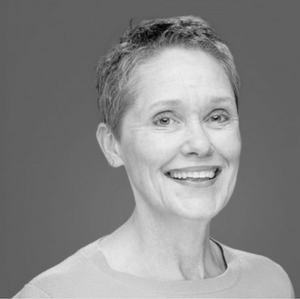
Joy H. Calico joined the faculty at UCLA in August 2023, where she is Professor of Musicology at the Herb Alpert School of Music and affiliated faculty in Jewish Studies. She has published monographs on two luminaries of the Austro-German diaspora in Los Angeles: Bertolt Brecht at the Opera (2008) and Arnold Schoenberg’s A Survivor from Warsaw in Postwar Europe (2014), both with University of California Press. Her scholarship has been supported by fellowships and grants from the American Academy in Berlin, the DAAD, the ACLS, and the NEH, among others. She is a member of the international working team of the Black Opera Research Network (BORN). Her current projects include a book about operatic scene types in 20th- and 21st-century opera based on Kaija Saariaho’s L’amour de loin, and a co-edited volume entitled Childhood and the Operatic Imaginary since 1900.
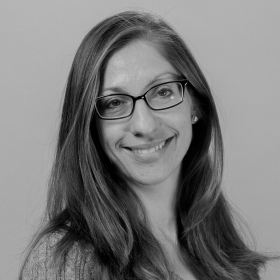
Daniela Smolov Levy studies the democratization of opera in American society, including opera’s presence in early twentieth-century Yiddish theater and Yiddish speakers’ involvement with the broader American opera scene. Daniela holds a doctorate in Musicology from Stanford University, a Master’s degree in Piano Performance from New York University, and a Bachelor’s degree in Comparative Literature and Music from Princeton University. She has presented her work at both national and local chapter meetings of the American Musicological Society and has given invited talks in Los Angeles & New York. Her article Parsifal in Yiddish? Why Not? was published in the Musical Quarterly.

Kai Hinrich Müller, 2023 Thomas Mann Fellow, studied musicology, business administration and law at the Rheinische Friedrich-Wilhelms-Universität Bonn and received his doctorate in 2013 with a thesis on the history of the early music movement. His habilitation followed in 2022. In his research, he deals with Richard Wagner and his reception in the Bayreuth circle as well as the so-called völkische Bewegung (nationalist movement), forms of anti-Semitism in music history, musical life in the interwar and especially Nazi period, as well as transatlantic opera history with a special focus on U.S. exile. He teaches at the Cologne University of Music and Dance, directs projects in Germany and abroad, and is the academic and artistic director of the Terezín Music Academy in the former Theresienstadt ghetto and the Bauhaus Music Weekend.

Alex Ross has been the music critic of The New Yorker since 1996. His first book, The Rest Is Noise: Listening to the Twentieth Century, won a National Book Critics Circle Award and was a finalist for the Pulitzer Prize. His second book, Listen to This, is a collection of essays. His latest book is Wagnerism: Art and Politics in the Shadow of Music, an account of Wagner’s vast cultural impact. He has written often about Thomas Mann and the émigré community in L.A. for The New Yorker. He was awarded with a MacArthur Fellowship and the Belmont Prize.

Michael P. Steinberg is the Barnaby Conrad and Mary Critchfield Keeney Professor of History, and Professor of Music and German Studies at Brown University in Providence, Rhode Island, USA. From 2016 to 2018 he served as president of the American Academy in Berlin. At Brown he served as the founding director of the Cogut Center for the Humanities (2005-2015), as Vice Provost for the Arts (2015-16), and on the Academic Priorities Committee in 2019-20. He is the recipient of fellowships from the John Simon Guggenheim Foundation, the American Council of Learned Societies, and the National Endowment for the Humanities. Steinbergs books include The Afterlife of Moses: Exile, Democracy, Renewal (Stanford, 2022), The Trouble with Wagner (Chicago, 2018) as well as the edited volume Makers of Jewish Modernity (Princeton, 2016; winner of the National Jewish Book Award for non-fiction).
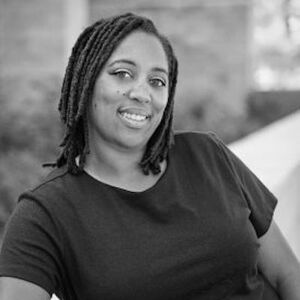
Kira Thurman is an award-winning historian and musicologist. A classically-trained pianist who grew up in Vienna, Austria, Thurman earned her PhD in history from the University of Rochester with a minor field in musicology from the Eastman School of Music. Her book, Singing Like Germans: Black Musicians in the Land of Bach, Beethoven and Brahms (Cornell University Press, 2021), traces the history of Black classical musicians in German-speaking Europe across the nineteenth and twentieth centuries. Thurman has written for outlets such as the New York Times, The New Yorker, and Frieze Magazine, and has appeared on PBS documentaries and public radio programs in Germany and the United States.
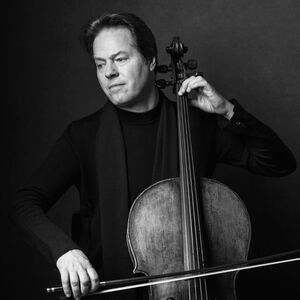
Jan Vogler is a renowned German-born classical cellist. Vogler’s distinguished career has brought him together with renowned conductors and internationally acclaimed orchestras around the world, such as New York Philharmonic, Leipzig Gewandhaus Orchestra, Deutsches Symphonie-Orchester Berlin and London Philharmonic Orchestra. His great ability allowed him to explore the sound boundaries of the cello and to establish an intensive dialogue with contemporary composers and artists. This includes regular world premieres, including works by Tigran Mansurian (with WDR Symphony Orchestra conducted by Semyon Bychkov), John Harbison (with Mira Wang and the Boston Symphony Orchestra), and many more.
Partners
An event by Thomas Mann House Los Angeles and the Kaleidoscope Chamber Orchestra

Student Council on "Democracy and Vulnerability" – with Sophie-Charlotte Opitz
Online
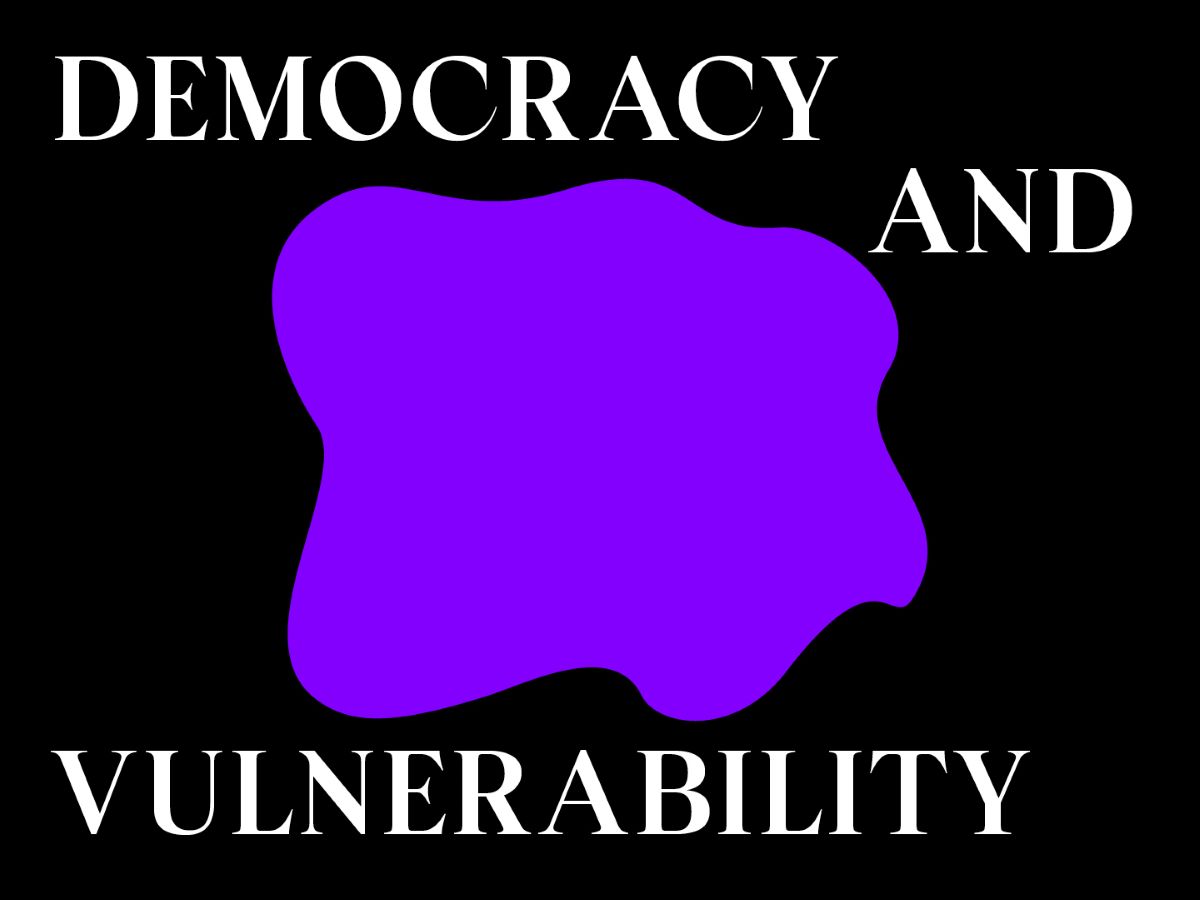
Information
The Student Council consists of a team of highly engaged, talented, and diverse high school, undergraduate, and graduate students who invite prominent guest speakers to discuss topics relating to art, culture, politics, and society. In conversation with academics, journalists, politicians, and artists, the students will explore the various threats to democratic institutions and principles worldwide, as well as strategies to potentially overcome these threats. The series focuses on the new annual topic of the Thomas Mann House, “Democracy & Vulnerability:" Democratic processes are dynamic, inclusive, and human-centered but at times also messy, arbitrary, and even contrary to democracy itself. How should a democracy deal with its own vulnerabilities? What are the responsibilities of a democracy toward the most vulnerable in its populace? How do democracies need to evolve to deal successfully with increasing global levels of ecological, geo-political, and economic precarity? How much vulnerability can a democracy endure?
The first guest for the 2024 council will be Thomas Mann Fellow, Media Studies Scholar & Curator Sophie-Charlotte Opitz, whose work focuses on the relationship of protest movements, image strategies and artificial intelligence.
Participant
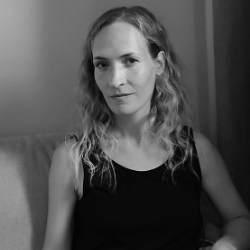
Sophie-Charlotte Opitz is a media and memory studies scholar and curator. She studied philosophy and art education at Goethe University Frankfurt and subsequently completed her doctorate. In 2019 she began her curatorial practice as a fellow at the Akademie Schloss Solitude in Stuttgart and afterwards worked internationally as a curator and director in museums in Germany, Switzerland, and England. In addition to her monograph „Bilderregungen. Die Produktionsmechanismen zeitgenössischer Kriegsfotografie“, she regularly publishes in academic journals, exhibition catalogues, and photography books, especially on aspects of collective memory cultures and global image politics. She is a 2023 Thomas Mann Fellow. In her project, she is researching new forms of protest which strengthen political visibility during critical times.
Meet the 2024 Student Council
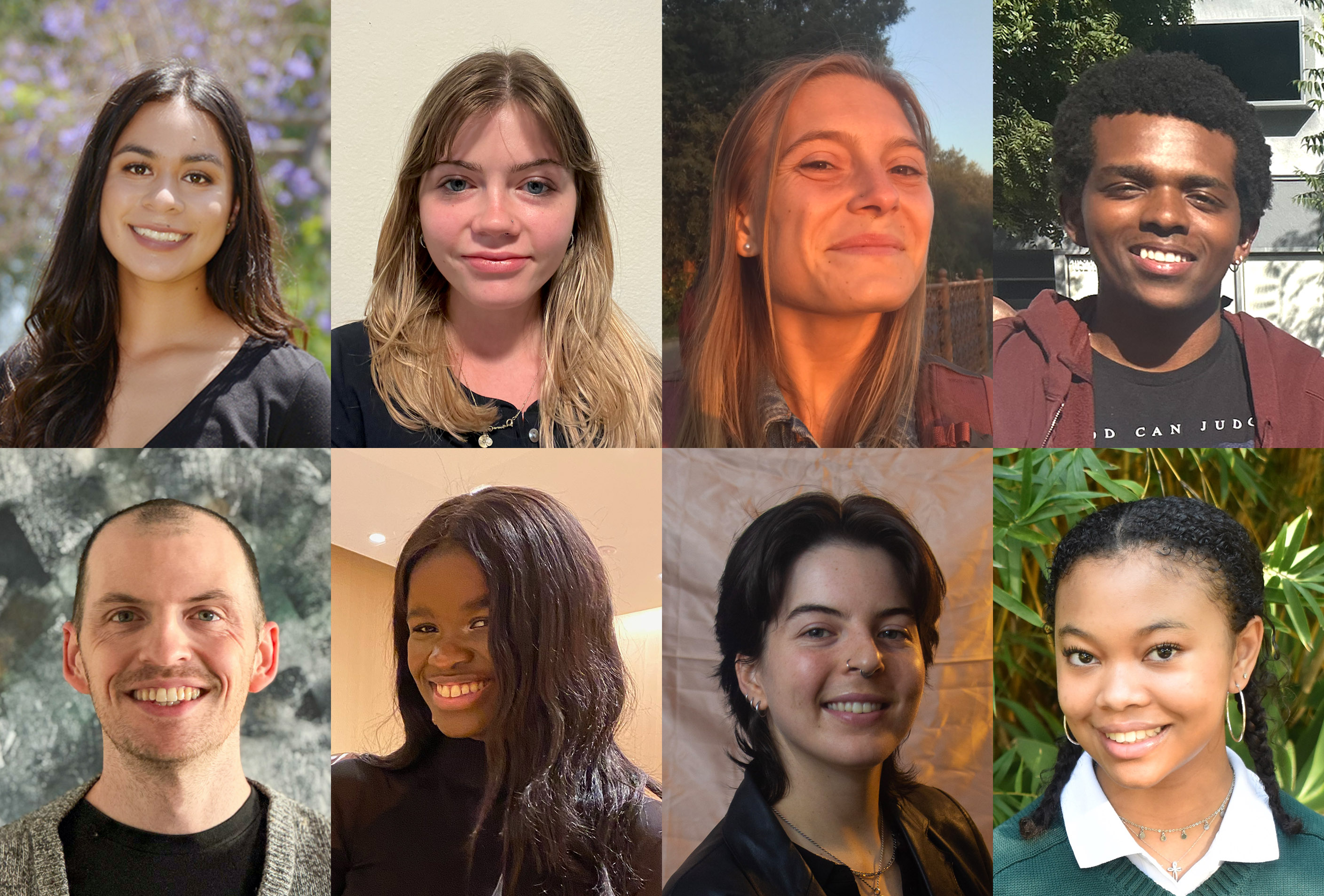
Sara Abrahamsson is a fourth-year student at UCLA studying Art History and French. As a culmination of her artistic and academic interest in political graphics, Sara is currently writing her senior thesis paper on the internationalist poster art of post-revolutionary Cuba. Upon graduating, she plans to continue working in museums before pursuing graduate studies in Art History or Art Conservation.
Amy Cabrales is a First-Generation fourth-year undergraduate student at UCLA, studying Sociology and the Russian Language. She is a Mexican-American, Los Angeles native born in Lynwood, California. Her career interests include cross-cultural education via museum work or language instruction and immigrant resettlement, while her academic interests include immigrant integration and self-identity across immigrant generations. She is anticipating returning to Almaty, Kazakhstan for the 2024-25 academic year to inform these interests and advance her Russian proficiency.
Elsa Coony is a fourth-year student at the University of California, Los Angeles double majoring in Global Studies and German. She has previously worked at the United States Holocaust Memorial Museum as both a docent and translator and is excited to join this year's council. In the future, she hopes to pursue a career in international development.
Biruke Dix is currently a 2nd year student at UCLA studying Applied Mathematics. He joined the Wende Student Council in 2024 and is deeply invested in the ever-changing properties of art as well as social habits. He hopes that he can create language and conversation that promotes the spread of cultural shifts and social justice.
Matthew Jones is a third-year PhD student in Claremont Graduate University’s Cultural Studies and Museum Studies program. His research currently explores how sites connected to authoritarian regimes function as pilgrimage destinations and what strategies states and institutions employ to reduce extremist attachment at these sites. He is thrilled to continue his training with the Wende Museum through this collaboration with the Thomas Mann House.
Emma Larson is a master's student at Columbia University's Harriman Institute of Russian, Eurasian, and Eastern European Studies. There, she focuses on the gender, social, and political history of Central Asia. Before starting at Columbia, Emma taught English in Kazakhstan with the Fulbright Program. She graduated from Williams College with degrees in History and Russian in 2021.
Zora Nelson is a current undergraduate student at New York University, where she is studying Harp Performance and Media, Culture, and Communication. As an east coaster born and raised in Philadelphia, Pennsylvania, she discovered the Wende Museum in the summer of 2022 and is honored to be a part of the council. With a passion for writing, Zora sees a future in storytelling to promote social justice.
Lexi Tooley is a current sophomore at the University of Pennsylvania majoring in Political Science and Art History, minoring in Chinese Language and Culture. She is originally from Los Angeles, California, and attended the Archer School for Girls. Lexi has been working with the Wende Museum for the past 2 years. She looks forward to continuing the search for truth and examining the vulnerability of democracy through this program!
Partners
The event series is a collaboration with the Wende Museum Culver City, dublab and the Thomas Mann House Los Angeles.
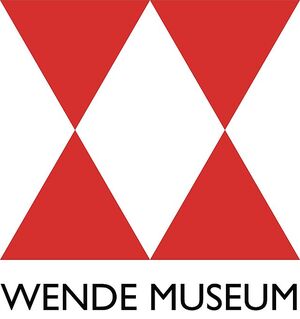

Coalition in Distress? The Rise of the Far Right in Germany and its Potential Consequences for the State Elections in 2024 – Lecture & Conversation with Andrea Römmele & Bruce Bimber
Los Angeles
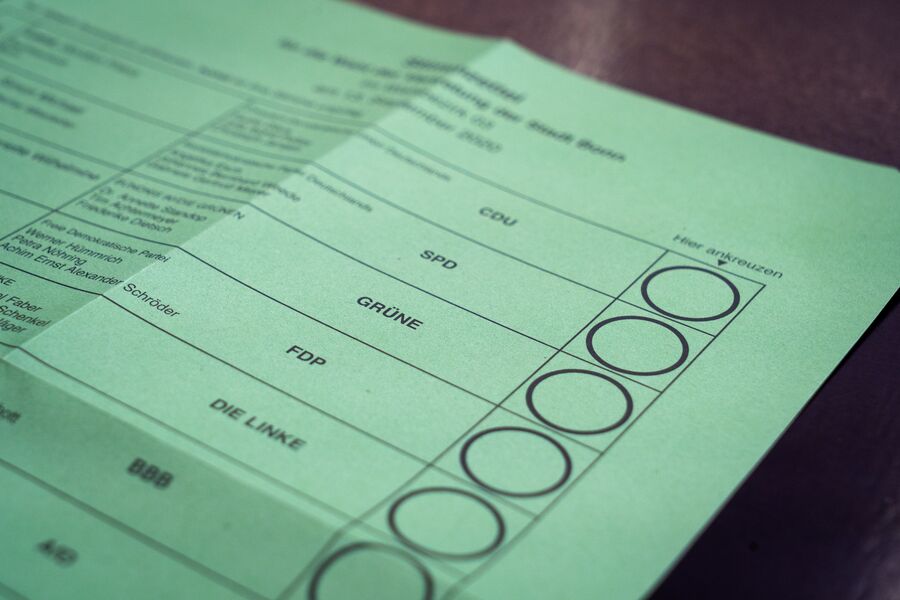
Information
Fall 2023 marks the midterm of the German "traffic light“ coalition, named after the parties' traditional colors: the Social Democratic Party of Germany (SPD), the Free Democratic Party (FDP) and Alliance 90/The Greens. After presenting a progressive reform agenda in December of 2021, the Russian attack on the Ukraine has challenged the German government, among others, resulting in a so-called Zeitenwende, a historic turning point, that is supposed to unify the country. However, transformation is not progressing. Internal struggles characterize the administration of chancellor Olaf Scholz. The support of the far right-party (AfD) is rising to record highs. The state elections in the fall of 2024 in the federal states of the former East will serve as a critical bench mark for future developments in Germay’s political landscape.
In her presentation, Andrea Römmele will evaluate the government’s performance and discuss potential future scenarios for Germany and beyond. Afterwards, Andrea Römmele will engage in a conversation about the topic with Bruce Bimber, Distinguished Professor of Political Science at UC Santa Barbara, who will be comparing populist trends in campaigns in the U.S and Germany from a transatlantic perspective.
During her time at the Thomas Mann House, Andrea Römmele explores the impact that major societal megatrends – such as technology and AI, urbanization, demographic and social change, climate change and resource scarcity, or global growth markets – have on democracies. How do different systemic and societal structures in Germany and the U.S. affect these developments?
The event will take place at the Thomas Mann House (1550 N San Remo Drive, Pacific Palisades) on Thursday, January 25 at 7 pm.
Participants
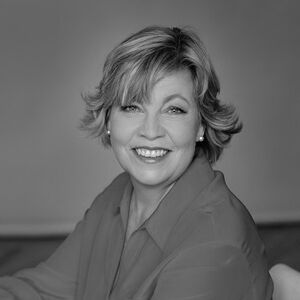
Andrea Römmele is Professor of Political Communication and Dean and Vice President at the Hertie School in Berlin. She holds a master’s degree from San Francisco State University, a doctorate from the University of Heidelberg, and a habilitation from Freie Universität Berlin. Römmele’s research interests include digital democracy, elections, and electoral campaigns and parties. For Römmele, a central issue is mediating between science and practice. One of her current projects is the “Democracy Report,” developed jointly with ARD, which she moderates herself.

Bruce Bimber is Professor of Political Science. He works closely with the Center for Information Technology and Society, which he founded in 1999. He is also affiliated with the Department of Communication. He studies political communication, with a focus on the relationship between digital media and patterns in human behavior, especially in the domains of political organization and collective action. Professor Bimber s a Fellow of the American Association for the Advancement of Science, a Fellow of the International Communication Association, and a past Fellow of the Center for Advanced Study in the Behavioral Sciences.
"Trust in Museums" – Presentation & Workshop with Sunhild Kleingärtner & Guests
Thomas Mann House
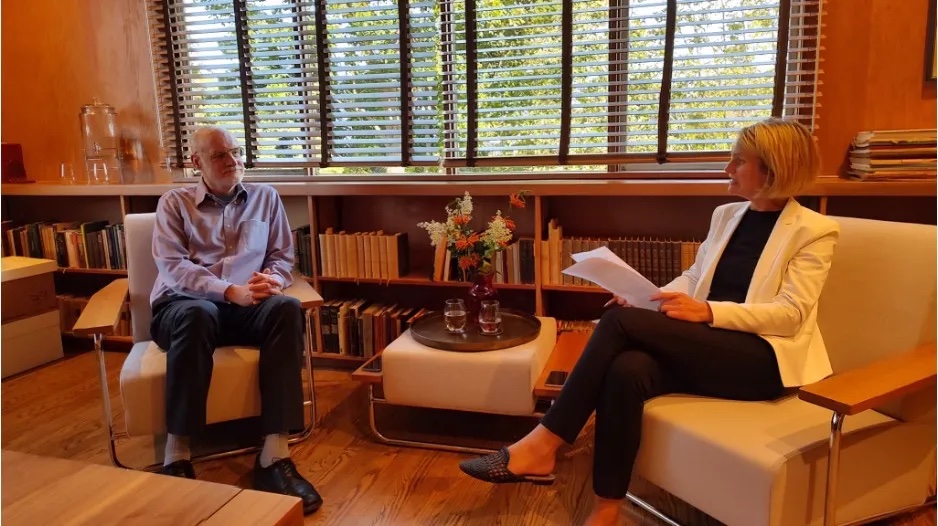
Information
Museums as public institutions play an important role in the presenting, conserving, and shaping of cultural narratives. In today’s politically charged times, it is not easy for museums to navigate the political discourses that are quickly and constantly changing. At the same time, due to a focus on transparent provenance, research and educational programs, museums still enjoy a great deal of public trust today according to a recent study by the American Alliance of Museums. During her Fellowship, Sunhild Kleingärtner, an archaeologist with museum-based expertise, conducted interviews with experts in the USA and Germany, exploring political issues pertinent to the question of museums as trusted institutions. Is it even possible to think of museums as inherently nonpolitical? What are key factors that foster trust in museums?
On February 1, Kleingärtner will visit Los Angeles again to present and discuss the results of her project, followed by a conversation with colleagues and students at the Thomas Mann House.
By Invitation Only.
Participant

Sunhild Kleingärtner is a German historian and archaeologist. From 2013 to 2021 she was Director of the German Maritime Museum Bremerhaven and Professor of Maritime History and Maritime Archaeology at the University of Bremen. In 2022, she was a Fellow at the Thomas Mann House in Los Angeles, working on trust in museums and how museums can actively contribute to a resilient society. Since 2022 she is the Director of the Deutsches Bergbau-Museum Bochum and holds a professorship in archaeology with a focus on museum-related transfer.
The Power of Protest: Nalleli Cobo & Friedemann Karig in Conversation
Los Angeles
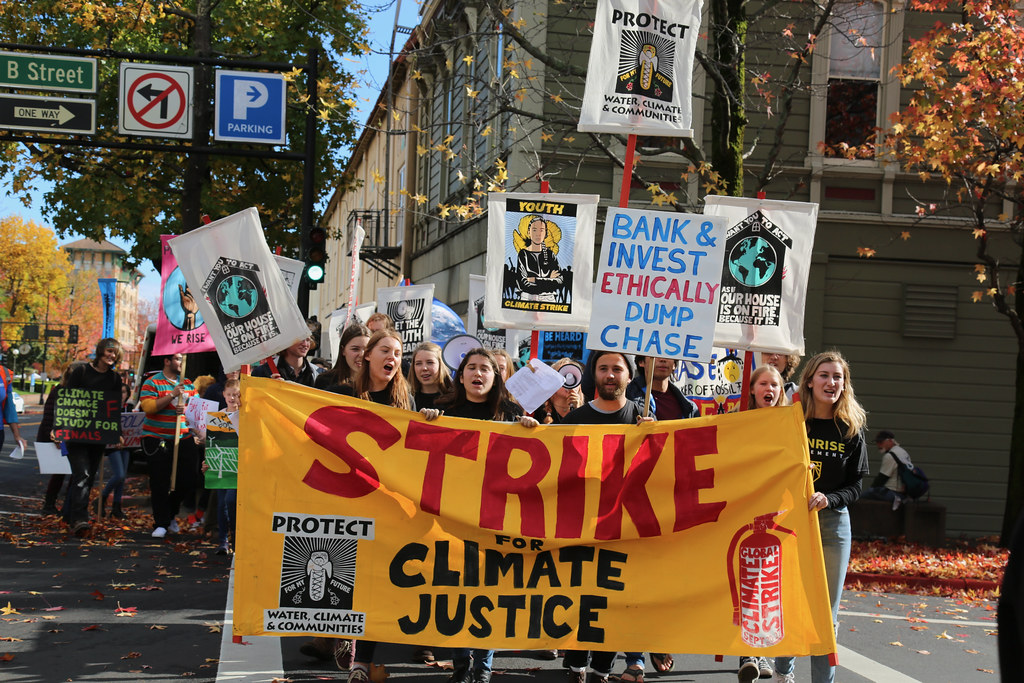
Informationn
With the rise of rightwing populism in Western democracies, the question of efficient and sustainable forms of protest is more relevant than ever. What kind of instruments, methods and structures are useful for which specific struggle? In an attempt to bring protest theory and practice in conversation and to bring about to new ideas and synergies, our fellow Friedemann Karig and environmental activist Nalleli Cobo will talk about protest cultures not as a sudden emotional outburst, but as a cool-headed political strategy. What are differences between the U.S. and Germany when it comes to protest movements and how they influence political discourse via civil disobedience? What are the important protest groups in the years to come? What can we learn from successful protests in Germany and the U.S. over the past years and what makes a protest actually successful?
After two short presentations from a German and an U.S. perspective, Friedemann will engage in a conversation with Nalleli Cobo, followed by a Q&A with the audience.
During his fellowship, Friedemann Karig will examine protest cultures in the United States. Through the lens of Henry David Thoreau’s term “civil disobedience,” he will explore movements such as the Civil Rights Movement, Black Lives Matter, and others.
The event will take place at the Thomas Mann House on February 15.
Participants

Nalleli Cobo led a grassroots campaign to permanently shut down a toxic oil well in her community. Cobo, 22, grew up in South Los Angeles and started engaging in activism at age 9. Over the years, she endured headaches, nosebleeds and heart palpitations caused by pollution from the well in her community. She gave her first public speech at age 10. Even as a child, her skills as an orator caught others’ attention and paved the way for her to eventually become the leading spokesperson for banning oil extraction in Los Angeles. She co-founded People Not Pozos, an organization that aims to secure a safe and healthy neighborhood, and the South Central Youth Leadership Coalition, which focuses on ending environmental racism in Los Angeles. In March 2020, her organizing culminated in the definitive closure of the AllenCo drilling site across the street from her childhood home. She was diagnosed with cancer at the age of 19. After three surgeries and medical treatment, she was declared cancer-free. Her story and leadership also inspired the enactment of SB 1137, which bans all new oil wells within 3200 feet of communities in California. She won the 2022 Goldman Environmental Prize and was named on the 2022 Time 100 Next list.
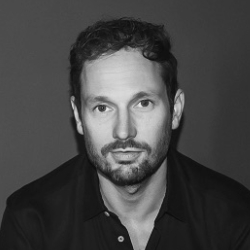
Friedemann Karig is a journalist, author, and moderator from Berlin. He studied media science, politics, and economics and has written for Süddeutsche Zeitung, Die Zeit, Spiegel Online, and Deutschlandfunk, among others. His nonfiction book Wie wir lieben (How We Love) was published by Blumenbar in 2017, followed by his debut novel Dschungel (Ullstein, 2019) and the nonfiction bestseller Erzählende Affen: Mythen, Lügen, Utopien – Wie Geschichten unser Leben bestimmen (Narrating Apes: Myths, Lies and Utopias - How Stories Determine Our Lives) (Ullstein, 2021). His novel Die Lügnerin (The Lyer) was be published in September 2023 by Ullstein. During his fellowship, Friedemann Karig will examine protest cultures in the United States. Taking as his starting point Henry David Thoreau’s term "civil disobedience," he will look at the civil rights movement and Black Lives Matter, among other movements.
East-German Artistic Networks of the 1980s: Lecture & Conversation with Stephanie Barron, Constanze Fritzsch, and Isotta Poggi
Thomas Mann House

Information
In the last decade of the East German regime, artists wove dynamic networks to exchange art and ideas. They built alternative communication channels through artists’ books and magazines that together are a remarkable memory of the spirit of the time. Most of these publications (called samizdat for “self-published” in Russian) are collaborative projects of artists’ groups or collectives who produced small editions to circumvent censorship, while also to celebrate mutual friendship and solidarity in a playful atmosphere of experimentation.
On the fifth anniversary of Edition Augenweide, Jörg Kowalski wrote that it was not so much political ambitions that inspired the making of the first book, but rather the longing for that atmosphere of openness and trust that is necessary for art to flourish. This group’s aim was to draw on book art traditions of the twenties while finding an innovative synthesis between literary content and art design. These artistic and literary projects provided a forum outside of the official discourse of the GDR and developed a new literary and visual language that would defy artistic dogmas.
These rare editions, combining a variety of original graphic media on paper and vintage photographs with poetry and prose, offer an opportunity for interdisciplinary dialogue on a period of transformation and reform that ended with a peaceful revolution and the fall of the Berlin wall in November 1989.
As part of the Thomas Mann House annual topic "Democracy & Vulnerability," it is crucial to revisit and reconsider these artists. The independent artistic and cultural networks resonate with the debates of writers and artists in the Thomas Mann House who sought creative spaces while in exile and means of creating art outside of censorship. Los Angeles hosted the innovative exhibition “Art of Two Germanys ” organized by LACMA in 2009 and is home to the Wende Museum, which focuses on Cold War history. These resources provide an opportunity for dialogue on the past and the present about the artistic and existential debates that contributed to and shaped a period of historical reform and transformation. They can shed new light on East Germany’s forgotten (or ignored) history.
Join acclaimed curators and art historians Stephanie Barron, Constanze Fritzsch, and Isotta Poggi for a conversation on how these materials are vibrant witnesses of a generation who made art to find a voice.
Participants
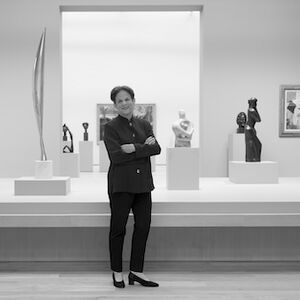
Stephanie Barron is Senior Curator and Modern Art Department Head at LACMA. Among her exhibitions and publications over the past 40 years are The Russian Avant- Garde: 1910-1930: New Perspectives; German Expressionist Sculpture; ’Degenerate Art’: The Fate of the Avant-Garde in Nazi Germany; Exiles + Émigrés- The Flight of European Artists from Hitler; Art of Two Germanys/Cold War Cultures, New Objectivity: Modern German Art in the Weimar Republic, 1919-1933, and exhibitions of Alexander Calder, Marc Chagall, Frank Gehry, David Hockney, Ed Kienholz, Sharon Lockhart, John McLaughlin, Rene Magritte, and Ken Price. She has received the Order of Merit, First Class and the Commander’s Cross from the German government in recognition of her work in the field of modern German art. Her exhibitions and publications have five times been voted the best in the United States by the International Art Critics Association, three times by the Art Museum Curators Association, and she has twice received the College Art Association’s Alfred H. Barr Jr. Award for best museum catalog. A long standing member of the Art Advisory Panel of the IRS, she is a fellow of the Academy of Arts and Sciences, and trustee of the John Baldessari Foundation, past chair of the Mike Kelley Foundation, and serves on the board of The Industry Los Angeles.
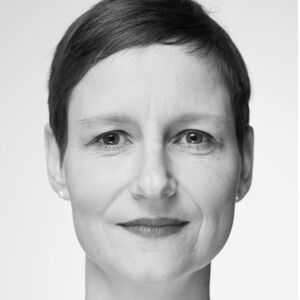
Constanze Fritzsch is a Fulbright Fellow at the GRI. She holds a doctorate from the Catholic University in Eichstätt-Ingolstadt after getting her MA in art history from the University Paris Nanterre and her BA in art history from University Paris 1 Panthéon-Sorbonne. She got a fellowship of the ENS de Paris as a foreign exchange student. She is a former member of the “Á chacun son reel” research project run by the German Forum for Art History in Paris and worked as an assistant curator at the Staatliche Kunstsammlungen Dresden. She has been on the academic staff at the Bauhaus University in Weimar, the Academy of Fine Arts in Dresden and the University of Leipzig and Dresden, and worked as a student assistant at the Institut National d’Histoire de l’Art in Paris.
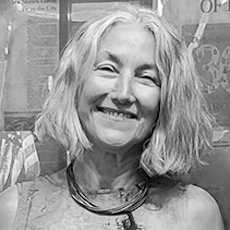
Isotta Poggi is associate curator of photographs at the Getty Research Institute in Los Angeles. Her collecting interests focus on the cultural history of photography from the nineteenth century through contemporary, as a medium for documentary and artistic practice, and as a narrative tool in albums, photobooks, and artists’ books. In 2018 she co-curated the exhibition Promote, Tolerate, Ban: Art and Culture in Cold War Hungary at the Wende Museum, and co-edited the accompanying volume. Drawing on the extensive archival holdings and special collections of the Getty Research Institute, she is currently directing the research project “On the Eve of Revolution: The East German Artist in the 1980s.”
Partners
This event is a collaboration between the Getty Research Institute and Villa Aurora & Thomas Mann House.


Student Council on "Democracy and Vulnerability" – with Friedemann Karig
Online

Information
Join the Wende Museum, the Thomas Mann House, and dublab radio for the second program in the series on the current state of democracies. How should a democracy deal with its own vulnerabilities? How do democracies need to evolve to deal successfully with increasing global levels of ecological crisis, geopolitical tensions, economic disparities, and culture wars? How much vulnerability can a democracy endure? The Student Council consists of a team of highly engaged, talented, and diverse undergraduate and graduate students who invite prominent guest speakers to discuss topics relating to society, politics, culture, and art. In conversation with academics, journalists, politicians, and artists, the students will explore the various threats to democratic institutions and principles worldwide, as well as strategies to potentially overcome these threats.
Participant
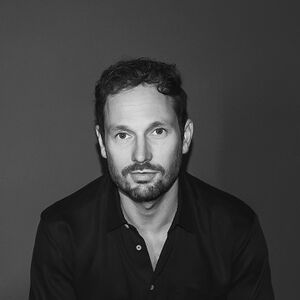
The guest speaker for our February program is Friedemann Karig, journalist, author, and moderator from Berlin. He has written for several leading German newspapers and magazines, including Süddeutsche Zeitung, Die Zeit, and Spiegel Online, among others. His nonfiction book Wie wir lieben (The Way We Love) was published in 2017, followed by his debut novel Dschungel (Jungle, 2019) and the nonfiction bestseller Erzählende Affen: Mythen, Lügen, Utopien – Wie Geschichten unser Leben bestimmen (Talking Monkeys: Myths, Lies, Utopias – How Stories Determine Our Lives, 2021). His most recent novel, Die Lügnerin (The (Female), Liar) was published in September 2023. Karig is a 2024 Thomas Mann House Fellow. During his fellowship in Los Angeles, he will examine protest cultures in the United States. Taking as his starting point Henry David Thoreau’s term “civil disobedience,” he will look at the civil rights movement and Black Lives Matter, among other protest movements.
Watch our January interview with Thomas Mann Fellow, curator, and media studies scholar Sophie-Charlotte Opitz!
You can watch previous episodes on YouTube, listen to the recordings on dublab radio, or read our students' recap on the Thomas Mann House blog.
Meet the 2024 Student Council

Sara Abrahamsson is a fourth-year student at UCLA studying Art History and French. As a culmination of her artistic and academic interest in political graphics, Sara is currently writing her senior thesis paper on the internationalist poster art of post-revolutionary Cuba. Upon graduating, she plans to continue working in museums before pursuing graduate studies in Art History or Art Conservation.
Amy Cabrales is a First-Generation fourth-year undergraduate student at UCLA, studying Sociology and the Russian Language. She is a Mexican-American, Los Angeles native born in Lynwood, California. Her career interests include cross-cultural education via museum work or language instruction and immigrant resettlement, while her academic interests include immigrant integration and self-identity across immigrant generations. She is anticipating returning to Almaty, Kazakhstan for the 2024-25 academic year to inform these interests and advance her Russian proficiency.
Elsa Coony is a fourth-year student at the University of California, Los Angeles double majoring in Global Studies and German. She has previously worked at the United States Holocaust Memorial Museum as both a docent and translator and is excited to join this year's council. In the future, she hopes to pursue a career in international development.
Biruke Dix is currently a 2nd year student at UCLA studying Applied Mathematics. He joined the Wende Student Council in 2024 and is deeply invested in the ever-changing properties of art as well as social habits. He hopes that he can create language and conversation that promotes the spread of cultural shifts and social justice.
Matthew Jones is a third-year PhD student in Claremont Graduate University’s Cultural Studies and Museum Studies program. His research currently explores how sites connected to authoritarian regimes function as pilgrimage destinations and what strategies states and institutions employ to reduce extremist attachment at these sites. He is thrilled to continue his training with the Wende Museum through this collaboration with the Thomas Mann House.
Emma Larson is a master's student at Columbia University's Harriman Institute of Russian, Eurasian, and Eastern European Studies. There, she focuses on the gender, social, and political history of Central Asia. Before starting at Columbia, Emma taught English in Kazakhstan with the Fulbright Program. She graduated from Williams College with degrees in History and Russian in 2021.
Zora Nelson is a current undergraduate student at New York University, where she is studying Harp Performance and Media, Culture, and Communication. As an east coaster born and raised in Philadelphia, Pennsylvania, she discovered the Wende Museum in the summer of 2022 and is honored to be a part of the council. With a passion for writing, Zora sees a future in storytelling to promote social justice.
Lexi Tooley is a current sophomore at the University of Pennsylvania majoring in Political Science and Art History, minoring in Chinese Language and Culture. She is originally from Los Angeles, California, and attended the Archer School for Girls. Lexi has been working with the Wende Museum for the past 2 years. She looks forward to continuing the search for truth and examining the vulnerability of democracy through this program!
Partners
The event series is a collaboration with the Wende Museum Culver City, dublab and the Thomas Mann House Los Angeles.
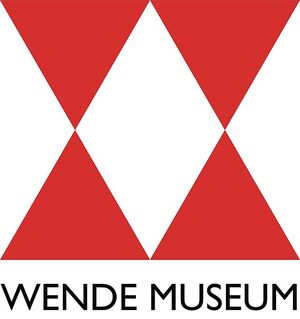


Czech Painters of California: Presentation with Consul General Jaroslav Olša, Jr.
Thomas Mann House

Information
"Even more do I owe thanks to the Republic of Czechoslovakia, which most generously made a gift of its citizenship to me who was robbed of my German nationality. Especially at this moment, when the heavens of central Europe are darkening so threateningly, it is a heartfelt necessity to give expression to my faithful loyalty to this courageous and lovable democratic republic,“ wrote Thomas Mann in his lecture The Coming Victory of Democracy in 1938, publicly expressing his gratitude to Czechoslovakia. But also beyond Mann’s personal friendship with former Czechoslovakian President Edvard Beneš, many refugees from Czechoslovakia were an integral part of the émigré community of German-speaking exiles in 1930s and 1940s Los Angeles. Jaroslav Olša, Jr., Consul General of the Czech Republic in Los Angeles, will present on the recent publication and exhibition Czech Painters of California and excavate artworks and interwoven histories. After the presentation there will be time for a conversation and a light reception. With opening remarks by the Thomas Mann House.
Participant

Jaroslav Olša Jr. is a Czech diplomat whose posts include those of Ambassador to Zimbabwe (2000–2006), South Korea (2008–2014) and the Philippines (2014–2018), and Consul General in Los Angeles (2020–current); author of books on history, art and literature of Asia and Africa. He is also science fiction editor, translator and bibliographer. He is also the author of books and articles on history, culture and literature of Asia and Africa and historical relations of the non-European countries with the Czech Lands. He has also widely published about science fiction and edited over a dozen anthologies of Czech and international science fiction. He has published in a wide-range of publications such as Czech edition of National Geographic, Nový Orient (New Orient), Světová literatura (World Literature), Mezinárodní politika (Foreign Policy), Mezinárodní vztahy (International Relations). Contributor to various Czech and foreign-language encyclopedias. He was also a curator of art exhibitions, member of the jury of 2011 Bucheon International Fantastic Film Festival, and initiated numerous cultural exchanges and activities.
Partners
This event is a collaboration between the Consulate General of the Czech Republic in Los Angeles & the Thomas Mann House Los Angeles.


"Opera & Democracy: Den gewaltsam Verstummten zuhören …" : Music and conversations about composers murdered during the nazi era
Bayerische Akademie der Schönen Künste, Munich
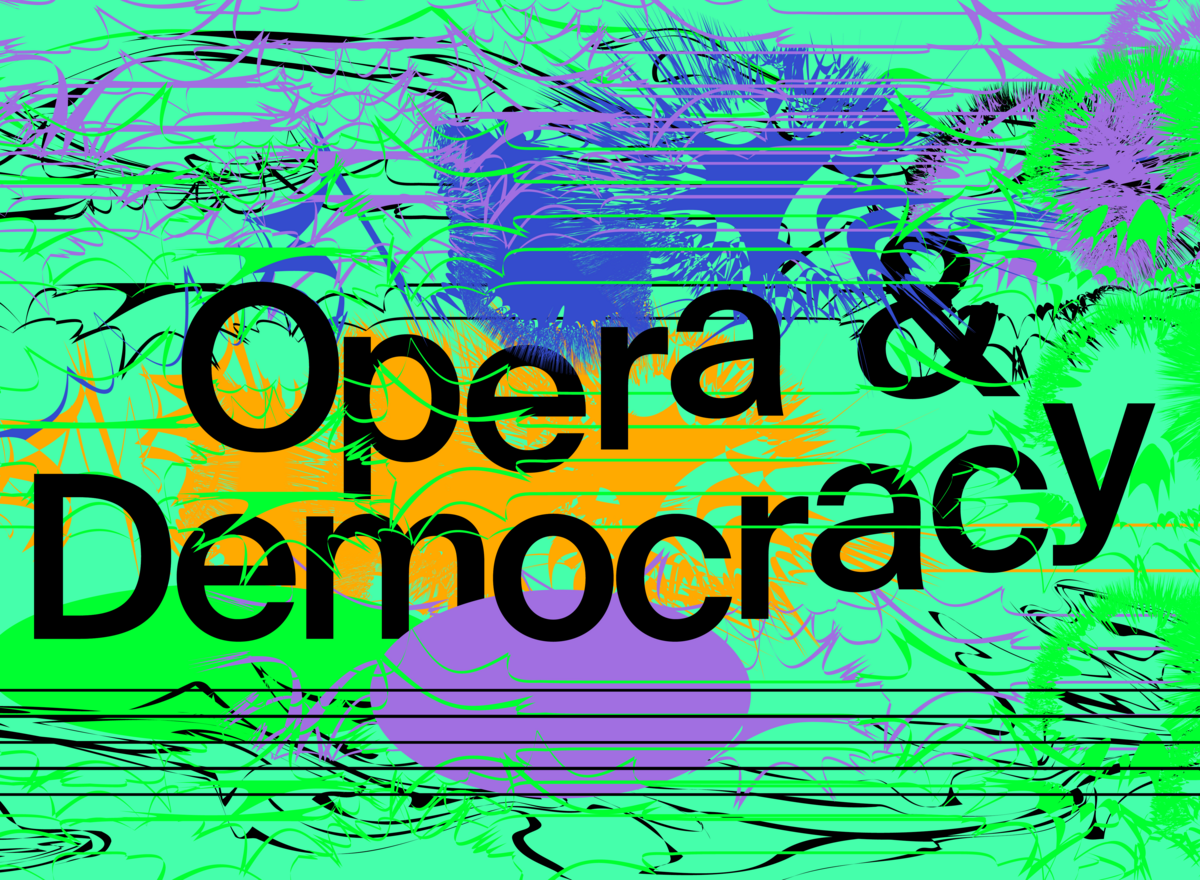
Information
The event commemorates three artists who were forcibly silenced. The composer, répétiteur and conductor Viktor Ullmann was deported to the Theresienstadt ghetto in 1942 and murdered in the Auschwitz-Birkenau concentration camp on October 18, 1944. Gideon Klein, composer and pianist, was also taken to Theresienstadt in 1941; he was murdered in Auschwitz-Birkenau in 1944. Both composers created a great deal of music in Theresienstadt, including an opera. The Czechoslovakian German-language writer Ilse Weber was taken to Auschwitz after her internment in Theresienstadt. Before the outbreak of war, she was a successful artist and had been published several times. In the camp, Weber worked as a nurse in the children's hospital, read and sang for the little ones and tried to give them hope with her texts. Her texts and songs were presumably widely distributed in the camp, smuggled out of the ghetto and subsequently written down from memory by survivors. Some were probably accompanied on the guitar by Weber herself. Ilse Weber was killed in the gas chamber in 1944 along with her son and other children she was caring for.
In two discussions, the biographies and circumstances in Theresienstadt will be examined in more detail based on the sounds of the works. They will also discuss what we can do as a society in the 21st century to make silenced voices audible, where the democratic potential of music and opera can be found, and what contribution they can make to a diverse and inclusive society. Christopher Warmuth.
Program
Gideon Klein (1919–1945)
Streichtrio
für Violine, Viola und Violoncello (1944)
Viktor Ullmann (1898–1944)
Die Weise von Liebe und Tod des Cornets Christoph Rilke
12 Stücke aus der Dichtung Rainer Maria Rilkes für Sprecher und Klavier (1944)
Drei Lieder (Herbst / Lieder der Tröstung) für mittlere Singstimme und Streichtrio (1943)
I. Georg Trakl: „Herbst“
II. Albert Steffen: „Lieder der Tröstung“:
1. „Tote wollen nicht verweilen“
2. „Erwachen zu Weihnachten"
Participants
Moderation: Andrea Thilo
Speakers: Lydia Grün, Vladimir Jurowski, Tomáš Kraus, Kai Hinrich Müller
Violine: Susanne Gargerle
Viola: Tilo Widenmeyer
Violincello: Allan Bergius
Alt: Noa Beinart
Recitation: Robert Dölle
Piano: Vladimir Jurowski
Tickets
Partners
An event of the Bayerische Staatsoper in cooperation with the Thomas Mann House in Los Angeles and in collaboration with the Bayerische Akademie der Schönen Künste.



100 years of "The Magic Mountain:" Conversation & Concert with Samantha Rose Hill, Paul Holdengräber & David Kaplan
Los Angeles
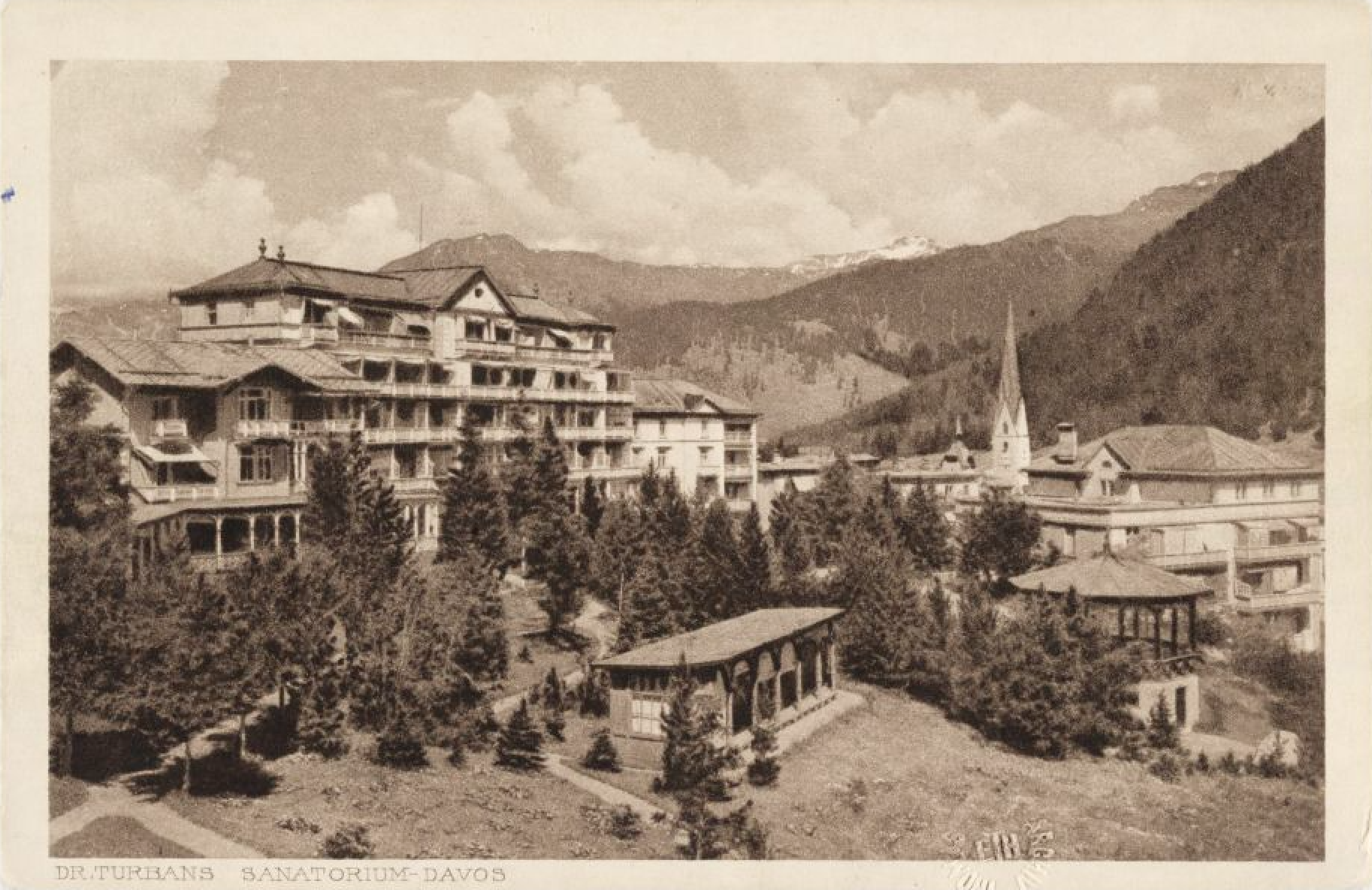
Information
Published in Germany in 1924, Thomas Mann’s The Magic Mountain tells the story of Hans Castorp, an ordinary young man who goes to visit his cousin Joachim in a Swiss tuberculosis sanatorium for three weeks and ends up staying for seven years. Set on the precipice of World War One, the novel captures the spirit of prewar Europe and the ailments of the modern world: isolation, mass epidemics, the plight of progress and industrial alienation. Mann’s ever-timely novel offers meditations on love, loss, time, what it means to become a person in the world, and what it means to face death.
To mark the 100th anniversary of Mann’s modernist masterpiece, we cordially invite you to the living room of the writer's home in exile for a conversation on pilgrimage between author and scholar Samantha Rose Hill and curator and interviewer Paul Holdengräber. What does it mean to leave the world of everyday life and undertake a journey? How does travel inform one’s perception of text, artwork, love, loss? In what ways does one’s experience of time change when one finds oneself perpetually caught in between the longing for home and flight of adventure? Can Mann’s work help us to think about our world today, a world defined by a sense of displacement, longing, loneliness, and war? Is it the x-ray we need to help us see more clearly right now?
Before and after the conversation, acclaimed pianist David Kaplan and students from the UCLA Herb Alpert School of Music will perform pieces by Claude Debussy and Franz Schubert on Thomas Mann’s historical piano: Singer Andres Delgado accompanies Kaplan in Die Post, Einsamkeit, and Der Lindenbaum from Schubert’s song cycle Winterreise; and pianists Alexandre Tchaykov and Biguo Xing will play Debussy’s Prélude à l'après-midi d’un faune, a favorite piece of music of Hans Castorp in the novel.
This event is part of a seminar on The Magic Mountain offered by the Brooklyn Institute for Social Research & the Japanese American Cultural & Community Center. Led by Samantha Rose Hill, this course reads the entirety of The Magic Mountain alongside short selections from medical journals, critical reviews, Mann’s correspondence, and lectures, while asking: What does it mean to be healthy? How does modernity change our conception of time? How might we think about enchantment in the modern world? Learn more here.
Participants

Samantha Rose Hill is the author of the critically acclaimed book Hannah Arendt (2021) and the editor and translator of What Remains: The Collected Poems of Hannah Arendt (2017). She is associate faculty at the Brooklyn Institute for Social Research in New York City. Her work has appeared in the Los Angeles Review of Books, LitHub, OpenDemocracy, and the journals Public Seminar, Contemporary Political Theory, and Theory & Event.
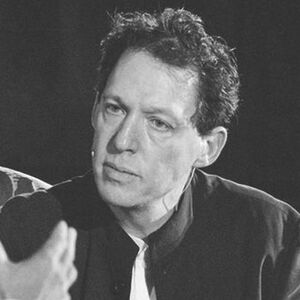
Paul Holdengräber is an interviewer, curator of public curiosity, and was the Founding Executive Director of Onassis Los Angeles (OLA). Prior he was Founder and Director of The New York Public Library’s LIVE from the NYPL cultural series where he interviewed and hosted over 600 events, including interviews with Patti Smith, Wes Anderson, Mike Tyson, Werner Herzog and many more. Before his tenure at the library, he was the Founder and Director of The Institute for Art & Cultures at the LACMA. He holds a Ph.D. in comparative literature from Princeton University. In 2003, the French Government named him Chevalier des Arts et des Lettres, and then promoted him in 2012 to the rank of Commandeur des Arts et des Lettres. In 2010, The President of Austria awarded him the Austrian Cross of Honor for Science and Art.

David Kaplan, pianist, has been called “excellent and adventurous” by The New York Times, and praised by the Boston Globe for “grace and fire” at the keyboard. He has appeared as soloist with numerous orchestras, including the Britten Sinfonia and Das Sinfonie Orchester Berlin. Known for diverse and creative recital programs, he has appeared at the Ravinia Festival, Washington’s National Gallery, Strathmore, and Bargemusic. Kaplan’s New Dances of the League of David, mixing Schumann with 16 new works, was cited in the “Best Classical Music of 2015” by The New York Times.
Partners
This event is a collaboration between the Japanese American Cultural & Community Center, the Brooklyn Institute for Social Research, UCLA Herb Alpert School of Music, and the Thomas Mann House Los Angeles.
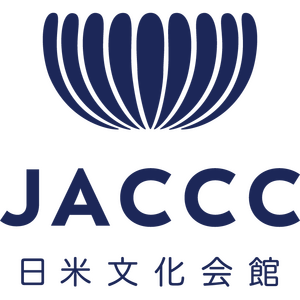


Rethinking Democracy – How Megatrends Shape Our Future: Talk by Andrea Römmele
Online

Information
Andrea Römmele, Professor of Political Communication, Dean and Vice President at the Hertie School in Berlin, researches the impact that major societal 'megatrends' – such as technology and AI, urbanization, demographic and social change, climate change and resource scarcity, or global growth markets – have on Western democracies.
How do different systemic and societal structures in Germany and the U.S. affect these developments? She is currently a Fellow at the Thomas Mann House in Los Angeles, a residency center and space for transatlantic debate in the former exile home of the German Nobel-laureate Thomas Mann. During her residency in Los Angeles, she explores the consequences of these megatrends for democracy from a transatlantic perspective: How can democratic systems shape these consequences? How can we overthink traditional political approaches and implement political systems that not only administer but lead the way into a visionary future?
Participant

Andrea Römmele holds a master’s degree from San Francisco State University, a doctorate from the University of Heidelberg, and a habilitation from Freie Universität Berlin. Römmele’s research interests include digital democracy, elections, and electoral campaigns and parties. For Römmele, a central issue is mediating between science and practice. One of her current projects is the “Democracy Report,” developed jointly with German TV station ARD, which she moderates herself.
Partners
An event by the Department of Political Science at the University of New Mexico in collaboration with the Thomas Mann House, Los Angeles.


Student Council on "Democracy and Vulnerability" – with Triston Ezidore
Online
Information
Join the Wende Museum, the Thomas Mann House, and dublab radio for the second program in the series on the current state of democracies. How should a democracy deal with its own vulnerabilities? How do democracies need to evolve to deal successfully with increasing global levels of ecological crisis, geopolitical tensions, economic disparities, and culture wars? How much vulnerability can a democracy endure? The Student Council consists of a team of highly engaged, talented, and diverse undergraduate and graduate students who invite prominent guest speakers to discuss topics relating to society, politics, culture, and art. In conversation with academics, journalists, politicians, and artists, the students will explore the various threats to democratic institutions and principles worldwide, as well as strategies to potentially overcome these threats.
Participant

At 19 years old, Board Member Triston Ezidore made history as the youngest elected official in the history of Los Angeles County and the first black male to serve on Culver City Unified Board of Education. As a recent high school graduate, Board Member Ezidore is a staunch advocate in building a school district in which all students can thrive. He currently works as a Youth Employment Manager with the Housing Authority of the City of LA, and has served his community as an Equity Specialist, Legislative Organizer, and committee member on the District’s Equity Advisory Committee, Restorative Practice’s Committee, Positive Behavior and Intervention’s Support Committee, and the Sexual Assault and Misconduct Reform Committee.
Watch our February interview with Thomas Mann Fellow, author, and journalist Friedemann Karig!
You can watch previous episodes on YouTube, listen to the recordings on dublab radio, or read our students' recap on the Thomas Mann House blog.
Meet the 2024 Student Council

Sara Abrahamsson is a fourth-year student at UCLA studying Art History and French. As a culmination of her artistic and academic interest in political graphics, Sara is currently writing her senior thesis paper on the internationalist poster art of post-revolutionary Cuba. Upon graduating, she plans to continue working in museums before pursuing graduate studies in Art History or Art Conservation.
Amy Cabrales is a First-Generation fourth-year undergraduate student at UCLA, studying Sociology and the Russian Language. She is a Mexican-American, Los Angeles native born in Lynwood, California. Her career interests include cross-cultural education via museum work or language instruction and immigrant resettlement, while her academic interests include immigrant integration and self-identity across immigrant generations. She is anticipating returning to Almaty, Kazakhstan for the 2024-25 academic year to inform these interests and advance her Russian proficiency.
Elsa Coony is a fourth-year student at the University of California, Los Angeles double majoring in Global Studies and German. She has previously worked at the United States Holocaust Memorial Museum as both a docent and translator and is excited to join this year's council. In the future, she hopes to pursue a career in international development.
Biruke Dix is currently a 2nd year student at UCLA studying Applied Mathematics. He joined the Wende Student Council in 2024 and is deeply invested in the ever-changing properties of art as well as social habits. He hopes that he can create language and conversation that promotes the spread of cultural shifts and social justice.
Matthew Jones is a third-year PhD student in Claremont Graduate University’s Cultural Studies and Museum Studies program. His research currently explores how sites connected to authoritarian regimes function as pilgrimage destinations and what strategies states and institutions employ to reduce extremist attachment at these sites. He is thrilled to continue his training with the Wende Museum through this collaboration with the Thomas Mann House.
Emma Larson is a master's student at Columbia University's Harriman Institute of Russian, Eurasian, and Eastern European Studies. There, she focuses on the gender, social, and political history of Central Asia. Before starting at Columbia, Emma taught English in Kazakhstan with the Fulbright Program. She graduated from Williams College with degrees in History and Russian in 2021.
Zora Nelson is a current undergraduate student at New York University, where she is studying Harp Performance and Media, Culture, and Communication. As an east coaster born and raised in Philadelphia, Pennsylvania, she discovered the Wende Museum in the summer of 2022 and is honored to be a part of the council. With a passion for writing, Zora sees a future in storytelling to promote social justice.
Lexi Tooley is a current sophomore at the University of Pennsylvania majoring in Political Science and Art History, minoring in Chinese Language and Culture. She is originally from Los Angeles, California, and attended the Archer School for Girls. Lexi has been working with the Wende Museum for the past 2 years. She looks forward to continuing the search for truth and examining the vulnerability of democracy through this program!
Partners
The event series is a collaboration with the Wende Museum Culver City, dublab and the Thomas Mann House Los Angeles.


The Art of Living Together – Democracy & Solidarity: A Workshop Convened by Susanne Baer, Sabine_ Hark & Rahel Jaeggi with Karen Mack, David D. Kim, Jordan Wynne, and Stephen Gardbaum
Los Angeles
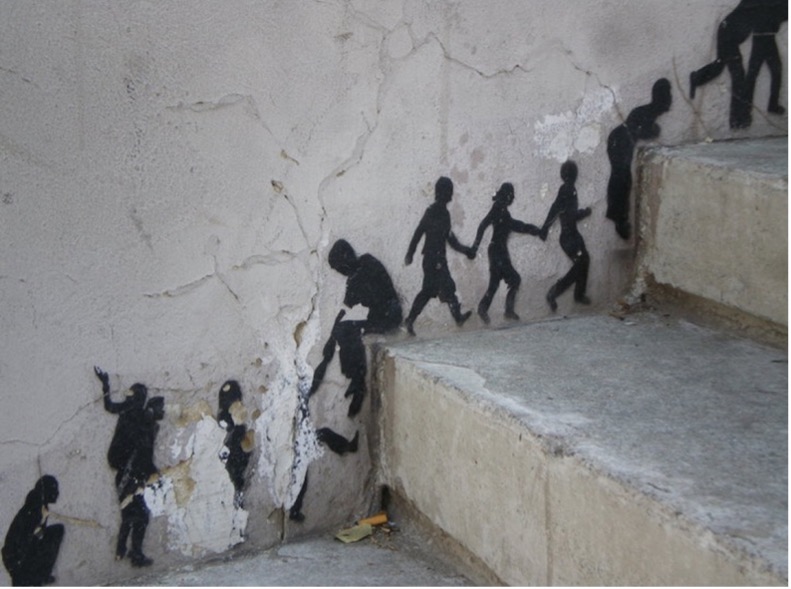
Information
What kind of solidarity does a functioning democracy need? Can practices of solidarity replace welfare state arrangements? What is the difference between solidarity and charity? And what is the role of institutions versus individual activists or non-profit organizations?
During their time in Los Angeles, Baer, Hark, and Jaeggi are exploring the principle of solidarity from different academic backgrounds. By bringing critical legal studies and comparative constitutionalism into conversation with social philosophy, critical theory, feminist theory, and queer theory, they aim to contribute to a practice of solidarity.
As part of the Thomas Mann House annual theme “Democracy & Vulnerability,” the three scholars argue that solidarity is essential for every democracy to thrive and democratic cooperation, under the rule of law, is crucial for strengthening democratic participation. To achieve this, they stress the importance of clear rules that promote both equality and solidarity in society. In today's Western democracies, we are confronted with various crises: climate change, wars, economic exploitation, pandemics, and violence against marginalized groups, among others. Unsurprisingly, some forces are exploiting these crises and using their democratic power to undermine liberal values, promoting discrimination and exclusion under the guise of democracy. In contrast, solidarity is seen as inclusive and fair. It involves people working together, supporting each other, and addressing common issues. It's not just a social concept; it's also influenced by laws and institutions. Solidarity reflects how we interact and guides us in creating a better society.
Join us at the Thomas Mann House to learn more about their project “The Art of Living Together – Democracy & Solidarity.” Together with L.A.-based experts from academia, law, community organizing, non-profit work, and activism, our three fellows will provide insights into their research and discuss potential ways of practicing solidarity across the Atlantic.
Participants

Stephen Gardbaum is the Stephen Yeazell Endowed Chair in Law at UCLA School of Law, and was a previous Faculty Director of the Promise Institute for Human Rights. His research focuses on comparative constitutional law and constitutional theory. Gardbaum's widely-reviewed book The New Commonwealth Model of Constitutionalism: Theory and Practice (Cambridge University Press, 2013) explores a novel form of human rights protection in Canada, New Zealand, and the United Kingdom. Gardbaum’s work has appeared, among other places, in the Harvard Law Review, Stanford Law Review, Michigan Law Review, and the University of Chicago Law Review.

David D. Kim is a professor in the Department of European Languages and Transcultural Studies at UCLA as well as Associate Vice Provost at the International Institute at UCLA. Kim’s scholarly interests range from postcolonial, global, and migration studies and community engagement to human rights, cosmopolitanism, cultural and political theories, global literary histories, and digital humanities. His first monograph is Cosmopolitan Parables (Northwestern University Press, 2017) and his peer-reviewed articles have recently appeared in The German Quarterly, Monatshefte, Gegenwartsliteratur, and Journal of Translation Studies.
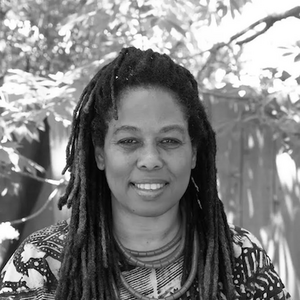
Karen Mack created the South LA-based nonprofit LA Commons based on a vision of communities where everyone has the access and freedom to express themselves culturally and to tap the power that creativity provides. Since that time, she and her team have worked in neighborhoods across the city, implementing artistic programs that foster interaction, dialogue and collaboration for a better Los Angeles. LA Commons plays a unique role as a facilitator of local engagement in arts and culture as well as in other important issues.
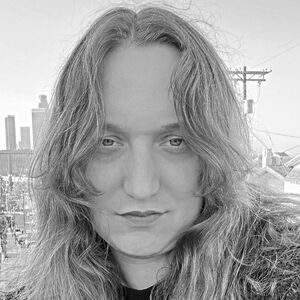
Jordan Wynne (they/them) is a housing justice and homelessness policy expert that has been working in the Greater Los Angeles area for over seven years. Their accomplishments include serving as the Co-Chair for the Long Beach Continuum of Care Board, Board member of the Long Beach Homeless Coalition; regional organizing director for Everyone In - Long Beach; Community Activation Special for United Way of Greater Los Angeles; and Grants Manager for Long Beach Residents Empowered, in which they secured $800,000 for the organization to pilot the city's first Community Land Trust.

Susanne Baer is Professor of Public Law and Gender Studies at Humboldt-Universität zu Berlin, Lea Bates Global Law Professor at the University of Michigan Law School, and Centennial Professor at LSE London. From 2011 to 2023, she served as a federal judge on the German Constitutional Court. Her work focuses comparatively on constitutionalism, interdisciplinary legal research, and equality law. She is the author and co-author of many publications in German and English, including a textbook on Rechtssoziologie and the casebook Comparative Constitutionalism: Cases and Materials.
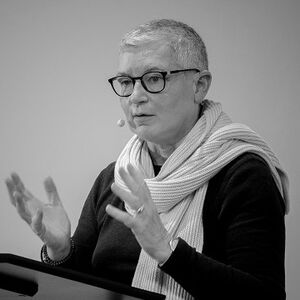
Sabine_ Hark has been Professor of Gender Studies and director of the Center for Interdisciplinary Gender Studies at the Technical University of Berlin since 2009. Hark has researched and taught at universities around the globe, including in Germany, Austria, Canada, Switzerland, and the USA. In addition to numerous positions as a board member and co-founder (of, for example, the organization WIR MACHEN DAS – wearedoingit e.V.), she is also co-editor of the journal Feministische Studien.

Rahel Jaeggi has been Professor of Philosophy with a focus on Political Philosophy at Humboldt-Universität zu Berlin since 2009 and director of the university’s Centre for Social Critique since 2018. Rahel Jaeggi has researched and taught as a visiting professor at Yale University, Fudan University, and as Theodor Heuss Professor at The New School for Social Research. Jaeggi was also a fellow at the Institute for Advanced Study in Princeton. She is a prominent representative of critical theory, has received numerous awards, and is the author and co-editor of numerous books, most recently Fortschritt und Regression ("Progress and Regression").
Opera & Democracy: Demokratieförderung an der HfMT – Musikwissenschaft und Musikpädagogik im Fokus
Cologne

Information
*This event will be held in German*
Wie können Musikhochschulen, besonders die Disziplinen Musikwissenschaft und Musikpädagogik, zu einem nachhaltigen, inklusiven und diversen demokratischen Miteinander beitragen? Dieser Frage widmet sich ein Thementag in der Hochschule für Musik und Tanz Köln. Zwei Podiumsdiskussionen, eingerahmt von Musik, loten die Rolle von Bildungseinrichtungen im demokratischen Diskurs aus. Expert*innen aus verschiedenen Bereichen des Musiklebens und aus Bildungsinstitutionen beziehen Stellung und laden das Publikum zum Austausch ein.
Teilnahme
Damit angesichts der beschränkten Anzahl von Plätzen jede:r Interessierte teilnehmen kann, ist für die Teilnahme eine vorherige Anmeldung nötig:
Programm
Beteiligte
Leitung: Kai Hinrich Müller, Musikwissenschaftler und Thomas Mann Fellow 2023/24 und Anne Niessen, Professorin für Musikpädagogik an der HfMT Köln
Moderation: Marco Lombardo, WDR Wuppertal
Musik: Jan-Hendrik Herrmann, Chorleiter
Zeitplan
Teilnehmer:innen
Jan-Hendrik Herrmann studierte Schulmusik und Latin Percussion an der HfMT Köln. Als Bariton und Beatboxer der a cappella-Band Soundescape und als Leiter des Jazzchors der Uni Bonn gewann er mit beiden Ensembles Preise auf nationalen und internationalen a cappella-Festivals und -Wettbewerben. Als Chorleiter, Stimmbildner und Vocalcoach ist er für Workshops, Coachings und Fortbildungen bundesweit unterwegs und arbeitete u.a. mit dem WDR Rundfunkchor, der Kölner a cappella-Gruppe basta und als musikalischer Berater bzw. Coach bei der WDR-Sendung Der beste Chor im Westen. Seine Chor-Arrangements sind im Schott-, Carus-, Bosse-, Helbling- und Ferrimontana-Verlag erschienen und werden von namhaften Chören gesungen. Seit 2021 unterrichtet er an der HfMT Köln Chorleitung Jazz/Pop, Vocal-Arrangement und Gruppenmusizieren sowie an der Hochschule für Musik und Darstellende Künste Frankfurt am Main Pop- und Jazzchorleitung als Gastdozent.
Nach seinem Lehramtsstudium promovierte Johann Honnens ab 2012 im Rahmen des Graduiertenkollegs Das Wissen der Künste an der Universität der Künste Berlin (UdK) mit einer inzwischen mehrfach ausgezeichneten Arbeit zur Rezeption von arabesk-Musik unter deutsch-türkischen Jugendlichen und musikbezogenen Anerkennungsprozessen. Zwischen 2021 und 2023 war er Professor für Musikpädagogik an der HfMT Köln und seit dem Wintersemester 2023/24 an der UdK. Seine Forschungsschwerpunkte liegen in soziologischen und diversitätskritischen Themenfeldern, in qualitativ-empirischer Sozialforschung und in grundlagentheoretische Fragestellungen u.a. zu Hermeneutik und Normativität in der Musikpädagogik.
Hannah Kopp wurde 2001 in Neuss geboren. Im Anschluss an das Abitur begann sie ein Studium für das gymnasiale Lehramt in den Fächern Musik und Mathematik an der HfMT Köln sowie an der Universität zu Köln, das sie Ende des Wintersemesters 2023/24 mit dem Bachelor abschließen wird. Seit 2023 studiert sie zusätzlich in den Studiengängen Elementare Musikpädagogik und Gesangspädagogik. Während des Studiums engagiert sich Hannah Kopp seit 2022 im AStA der HfMT Köln, bei dem sie die Aufgaben des Referats Finanzen II übernimmt. Neben dem Studium leitet sie Kurse in Musikalischer Früherziehung für Kinder im Alter von 4 bis 6 Jahren. Darüber hinaus war sie als Vertretungslehrkraft im Unterrichtsfach Musik für das Gutenberg-Gymnasium tätig.
Marco Lombardo ist Journalist und Moderator. Nach dem Volontariat bei HitRadio FFH in Hessen war er dort jahrelang als Redakteur, Reporter und Moderator tätig. Seit 2009 ist Marco Lombardo TV-Moderator beim WDR Fernsehen und in der ARD. Die Lokalzeit, daheim+unterwegs, diverse Sondersendungen und die ARD-Vormittags-Sendung Live nach neun gehören zu seinen Erfahrungen. In dieser Zeit hat Marco Lombardo viele Veranstaltungen moderiert – Podiumsdiskussionen, Thementage, Galas, Messen. Seit dem Wintersemester 23/24 ist Marco Lombardo Dozent an der HfMT Köln (Konzertmoderation und Musikvermittlung auf der Bühne).
Sabine Meine ist seit 2017 Professorin für Musikwissenschaft an der HfMT Köln. Sie betrachtet Musik in ihrem weiten Bedeutungsraum aus einer dezidiert kulturhistorischen Perspektive, mit Schwerpunkten auf der Musikkultur der Frühen Neuzeit und der Moderne in Italien und Frankreich. Meine hat Musikwissenschaft, Romanistik sowie Schulmusik studiert und zusätzlich zu Promotion und Habilitation das Zweite Staatsexamen für das höhere Lehramt absolviert. Sie war Professorin an der Universität Paderborn/Hochschule für Musik Detmold und acht Jahre beruflich in Italien: Wissenschaftliche Mitarbeiterin am Deutschen Historischen Institut in Rom und Direktorin des Deutschen Studienzentrum in Venedig. An der HfMT Köln leitet sie derzeit das Lehrprojekt Kölner Musikgeschichten. Postmigrantische Kulturen erforschen, vernetzen und verorten, das im April mit Fokus auf Istanbul in Köln startet.
Kai Hinrich Müllers Arbeiten bewegen sich an der Schnittstelle von Wissenschaft und Praxis und verbinden ihn mit renommierten Institutionen in Europa und den USA. Als 2023 Thomas Mann Fellow verantwortet er zurzeit die transatlantische Reihe Oper & Demokratie am Thomas Mann House in Los Angeles. Darüber hinaus ist er Leiter des bauhaus music weekend in Berlin, der Terezín Music Academy im ehemaligen Ghetto Theresienstadt sowie verschiedener Projekte zur kritischen Auseinandersetzung mit Wagners Der Ring des Nibelungen: Wagner-Lesarten von Kent Nagano, Concerto Köln und der Kunststiftung NRW sowie The Wagner Cycles von Jan Vogler, Kent Nagano und den Dresdner Musikfestspielen. Er studierte Musikwissenschaft, Jura und BWL an der Universität Bonn und der HfMT Köln (Promotion 2013; Habilitation 2022). Seine Forschungsschwerpunkte umfassen u.a. Wagner und den Bayreuther Kreis, das Musikleben der Zwischenkriegs- und NS-Zeit, Antisemitismus in der Musikgeschichte, Fragen von Demokratie, Migration und Exil sowie transatlantische Operntraditionen. Aktuelle Buchprojekte widmen sich u.a. den Zusammenhängen von Oper und Demokratie sowie der umfassenden Darstellung der deutsch-amerikanischen Operngeschichte.
Andreas Niessen wuchs im rheinischen Troisdorf auf und lernte in der Musikschule u.a. Cello und Klavier. Sein Studium absolvierte er an der HfMT Köln (Instrumentalpädagogik/Cello und Lehramt Sekundarstufe II) sowie an der Universität zu Köln (Geografie, Erziehungswissenschaften). Musikpädagogische Erfahrungen sammelte Andreas Niessen als Lehrkraft an der Musikschule Dormagen (Cello und Ensemble). Nach dem Referendariat an Realschule und Gymnasium arbeitete er als Lehrer für Musik und Erdkunde an verschiedenen Gymnasien. Von 2003 bis 2018 war er Schulleiter am Geschwister-Scholl-Gymnasium Pulheim, dann wechselte er als Gründungsschulleiter an die Heliosschule »Inklusive Universitätsschule Köln« – Gesamtschule. Als Schulleiter liegen ihm besonders die Themen Inklusion, Beziehungs- und Teamschule und die Förderung der Eigenverantwortung und der Partizipation von Schülerinnen und Schülern am Herzen. Andreas Niessen ist ehrenamtlich tätig u.a. im Sprecher*innen-Team des Schulverbunds Blick über den Zaun sowie bei der Schulleitervereinigung Gesamtschule NRW.
Anne Niessen unterrichtete im Anschluss an ein Lehramtsstudium mit den Fächern Musik und Deutsch an verschiedenen Gymnasien, promovierte im Fach Musikpädagogik zum Singen von Mädchen in der Zeit des Nationalsozialismus und arbeitete anschließend an der Universität Siegen und der Universität zu Köln. Nach ihrer Habilitation im Jahre 2005 zur Unterrichtsplanung von Musiklehrkräften ist sie seit 2013 Professorin für Musikpädagogik an der HfMT Köln, wo sie den Studiengang Master of Arts Musikpädagogik leitet. Ihr Forschungsschwerpunkt liegt in der musikpädagogischen Unterrichtsforschung mit qualitativen empirischen Verfahren; vor allem führt sie Interviewstudien mit Schüler:innen sowie Lehrenden durch. Ein wichtiges Anliegen ihrer wissenschaftlichen Arbeit besteht darin, die unterschiedlichen Perspektiven der verschiedenen Akteur:innen und hegemoniale Strukturen schulischer Musikpädagogik zu erschließen.
Nora Pempel hat Kultur- und Musikwissenschaft studiert. Seit 2021 arbeitet sie im Landesverband der Musikschulen in NRW als Leiterin des Projektes Heimat: Musik. Das Projekt fördert Angebote an öffentlichen Musikschulen in NRW für Geflüchtete und Menschen mit Migrationsgeschichte. In diesem Kontext arbeitet sie an der Diversitätsentwicklung der Musikschulen und des Verbandes. Im Jahr 2023 hat sie außerdem eine Weiterbildung als „Transformationsmanagerin Nachhaltige Kultur“ absolviert und bearbeitet als Nachhaltigkeitsmanagerin dieses Thema für den Verband und die Musikschulen.
Lukas Schumacher, geboren 1997, studiert im Master of Education für das Lehramt an Gymnasien und Gesamtschulen mit den Fächern Musik und Deutsch an der HfMT Köln sowie an der Universität zu Köln. Seine Masterarbeit widmete er dem Thema Demokratiebildung im Musikunterricht. Als ehemaliger AStA-Vorsitzender und durch weiteres Engagement als Studierendenvertreter sammelte er viel Erfahrung im hochschulpolitischen Bereich. Lukas Schumacher war jahrelang als Dirigent eines symphonischen Blasorchesters im Oberbergischen Kreis tätig und arbeitet derzeit als Musiklehrkraft am Kölner Friedrich-Wilhelm-Gymnasium. Zudem ist er Stipendiat der Friedrich-Ebert-Stiftung sowie der Robert-Schumann-Gesellschaft Düsseldorf. Sein Studium wird er im Sommer 2024 beenden.
Antje Valentin ist seit März 2024 Generalsekretärin des Deutschen Musikrates. Die studierte Musikerin und Kulturmanagerin war seit 2011 als Direktorin der Landesmusikakademie NRW tätig. Zuvor arbeitete sie langjährig als Pianistin und Instrumentalpädagogin, leitete die Musikschule Berlin-Friedrichshain und war stellvertretende Leiterin der Landesmusikakademie Berlin. Antje Valentin engagiert sich zudem ehrenamtlich in zahlreichen Gremien, u.a. als Vorsitzende des Übehaus Kray e.V. in Essen, als stellvertretende Vorsitzende des Beirats des Musikinformationszentrums des Deutschen Musikrates und als Vorstandsmitglied des Netzwerk Junge Ohren e.V.
Partners
Eine Veranstaltung der Hochschule für Musik und Tanz Köln, in Zusammenarbeit mit der Reihe Oper & Demokratie des Thomas Mann House, Los Angeles.
Mit freundlicher Unterstützung durch den Förderfonds | Engagement für Vielfalt, Toleranz und Demokratie an der HfMT


Paradoxes of Solidarity: Lecture with Rahel Jaeggi
University of California, Los Angeles
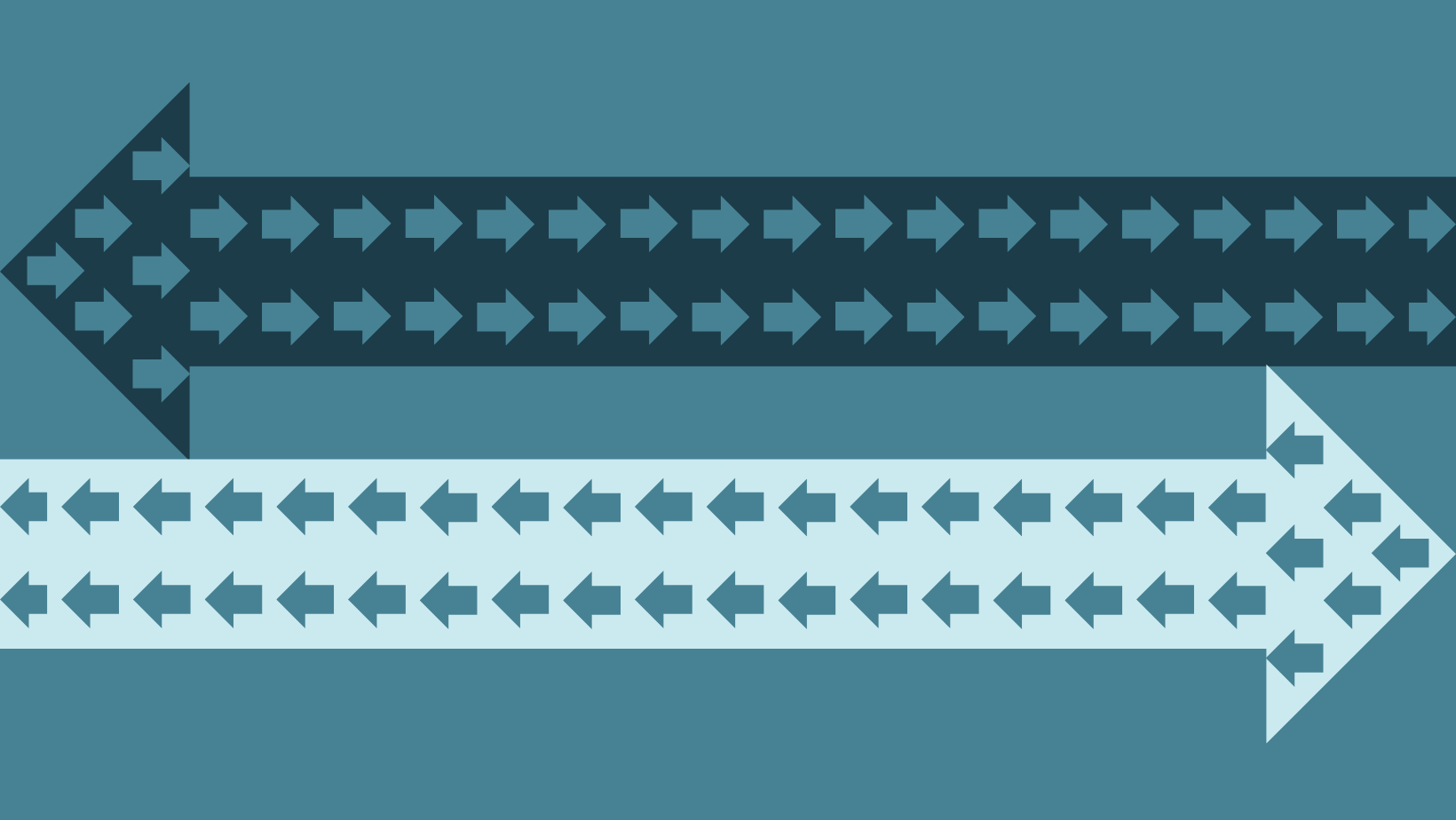
Information
Solidarity, in a preliminary understanding, means “standing in for each other,” based on a symmetrical, reciprocal, and cooperative relation, mediated through a common cause. Yet, if we work with this definition, three paradoxes (or at least tensions) arise. (1) If we take solidarity to be symmetrical: How can we account for obvious asymmetries in situations where solidarity is needed? (2) Solidarity seems to be bound to a particular situation and group, but then how do we come to grips with its universalistic claims? (3) Solidarity seems to be “given” and “made” at the same time. Rahel Jaeggi’s lecture will address these paradoxes, arguing for an enlarged understanding of symmetry, a bottom-up conception of universality, and a concept of solidaristic practice that allows to understand how solidarities are based on shared experiences but realized through solidaristic action.
Participant

Rahel Jaeggi has been a Professor of Philosophy with a focus on Political Philosophy at Humboldt-Universität zu Berlin since 2009 and director of the university’s Centre for Social Critique since 2018. Rahel Jaeggi has researched and taught as a visiting professor at Yale University, Fudan University, and as Theodor Heuss Professor at The New School for Social Research. Jaeggi was also a fellow at the Institute for Advanced Study in Princeton. She is a prominent representative of critical theory, has received numerous awards, and is the author and co-editor of numerous books, most recently Fortschritt und Regression ("Progress and Regression“), the English translation is forthcoming in the fall of 2024. Rahel Jaeggi is a 2024 Thomas Mann House Fellow in Los Angeles.
Partners
This event is presented by UCLA's International Institute and the Department of Political Science, in cooperation with the Thomas Mann House.
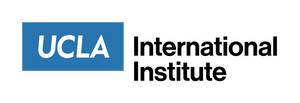


Opera & Democracy: Listening to Exile
New York

Information
This series commemorates the centenary of the reopening of Berlin's legendary Krolloper in 1924, one of the leading opera houses of the interwar period and today a symbol of both the renewal of opera in the 20th century and the struggle for democratic values in times of crisis. To honor this anniversary, panel discussions with international scholars and artists will explore the multifaceted history of this important institution and delve into the complex relationship between opera and democracy today. The focus will be on the democratic potential of opera and its possible contributions to a diverse and inclusive society. Topics range from aspects of the democratization of opera to questions of power and representation, new formats, casting and programming policies, audience expectations as well as to academic challenges, and opera's ability to amplify the voices of silenced or persecuted artists. Each conversation will be accompanied by concerts, sometimes world premieres, that present excerpts from rarely performed stage works, among them works by persecuted artists discovered in archives.
Programs
Begin: 6:30 p.m. (EST)
Location: Goethe-Institut New York, 30 Irving Place, New York, NY 10003
Welcome & Keynote: Opera and Democracy by Kai Hinrich Müller followed by a conversation about the past and present of being forced out of a country or a home and the struggles to continue artistic practices elsewhere.
Participants
Brigid Cohen, Associate Professor of Music at New York University. She has taught and published on the politics of 20th-century avant-gardes, archive studies, diaspora and cosmopolitanism theory, 20th-century German-Jewish thought, histories of genocide, and intersections of music, literature, and the visual arts. Her second monograph, Musical Migration and Imperial New York: Early Cold War Scenes, was published by University of Chicago Press in April 2022.
Gracie Golden is Artistic Freedom Initiative’s Senior Officer for Strategic Initiatives & Relocation, providing resettlement support across programs. She has dedicated her career to the intersection of art, cultural heritage, and human rights. Led by immigration and human rights attorneys, Artistic Freedom Initiative facilitates pro bono immigration representation and resettlement assistance for international artists at risk.
Michael P. Steinberg, Brown University, Barnaby Conrad and Mary Critchfield Keeney Professor of History and Music, Professor of German Studies, author of The Afterlife of Moses: Exile, Democracy, Renewal
Attendance
Begin: 7:30 p.m. (EST)
Location: Center for Jewish History, Leo Baeck Institute New York, 15 West 16th Street, New York, NY 10011
The concert introduces two German-Jewish composers in American exile: Paul Aron and Rosy Geiger-Kullmann. Aron, a protagonist of the German interwar avant-garde, founded an opera company in New York in the 1950s to popularize the works of émigrés such as Darius Milhaud, Kurt Weill, Tadeusz Kassern, and Ernst Toch through piano arrangements and English translations. One of these - his English version of Toch’s short opera Egon & Emilie - will be presented alongside exile songs by Aron. Geiger-Kullmann, a successful opera composer of the Weimar Republic, was born in Frankfurt and fled from the Nazis to New York and later to Monterey. Excerpts from her opera Columbus, written after her arrival in New York, and two stage works from her years in Germany have been reconstructed and will be performed in excerpts – a world premiere.
Program
Rosy Geiger-Kullmann: Excerpts from Ritter Lanzelot, Emanuela and Columbus (World Premiere)
Paul Aron: Zwei Lieder nach Gedichten von Christian Morgenstern, No 1. Es ist Nacht, January 26, 1950; In Memoriam … Three Songs (William Butler Yeats), No. 2. To Judd. Had I the Heaven’s, August 24, 1947; Vier Herbstlieder (Herman Hesse), No. 1. Der stille Hain, August 10, 1937, revised: July 29, 1947, No. 4. Ich habe nichts mehr zu sagen, August 7, 1947 (World Premiere)
Ernst Toch (arr. Paul Aron): Edgar & Emily
Moderation: Kai Hinrich Müller (Thomas Mann House, Los Angeles)
Musicians: Manhattan School of Music
Attendance
Begin: 6:30 p.m. (EST)
Location: Austrian Cultural Forum, 11 East 52nd Street, New York, NY 10022
Ruth Schonthal and Erich Zeisl will be presented in a concert at the Austrian Cultural Forum New York: Schonthal, who would have celebrated her 100th birthday in 2024, became an important figure in the New York music scene. She composed several operas, including Princess Maleen, which will be heard in part. Zeisl, on the other hand, lived mainly on the West Coast, where he worked for the film and various educational institutions. Excerpts from his opera fragment Hiob, based on the famous novel by Joseph Roth, will be performed next to Schonthal. Both works are largely unknown today, as are the biographies of their authors.
Program
Ruth Schonthal: Princess Maleen (Excerpts)
Erich Zeisl: Hiob (Excerpts)
Musicians: Manhattan School of Music
Introduction: Kai Hinrich Müller (Thomas Mann House, Los Angeles)
Attendance
Begin: 3:00 p.m. (EST) (doors open 2:30 p.m.)
Location: 1014 - space for ideas, 1014 Fifth Avenue, New York, NY 10028
This concert and dance performance by Miro Magloire’s New Chamber Ballet takes a leap from mid-century composers into the present. The performance starts with two dances set to music by Ursula Mamlok, who fled Germany for Ecuador in 1939 and then moved on to study in New York City in 1940. Once in the US, she became one of her generation's most renowned composers and wrote music in various genres and styles. After a conversation about the role and personal meaning of migration for their arts with German-born choreographer Miro Magloire and composer Alyssa Regent, who hails from Guadeloupe, the performance continues with music of one of Ursula Mamloks students: Pulitzer Prize winner Tania León who was born in Cuba and left in 1967 for New York. The afternoon concludes with a World Premiere ballet set to music by Alyssa Regent.
Program
Dance by New Chamber Ballet, Choreography by Miro Magloire, performed by Anabel Alpert, Megan Foley, Nicole McGinnis, Amber Neff, Rachele Perla, Kayla Schmitt.
Music composed by Ursula Mamlok, Tania León, and Alyssa Regent, performed by Weiyu Wang, soprano; Rea Abel, flute; Clara Cho, cello.
Conversation moderated by Carl Christian Bettendorf
Attendance
Participants
|
Ellie Pope, soprano |
|
Benjamin Warschawski, tenor |
|
Benjamin Sokol, baritone |
|
Weiyu Wang, soprano |
|
Elliot Roman, piano |
|
Rea Abel, flute |
|
Clara Cho, cello |
|
Anabel Alpert |
|
Megan Foley |
|
Nicole McGinnis |
|
Amber Neff |
|
Rachele Perla |
|
Kayla Schmitt |
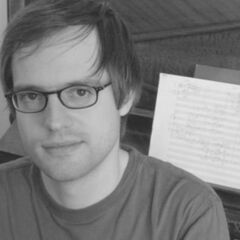
Carl Christian Bettendorf is a New York-based composer/conductor. Born in Germany, his teachers included Wolfgang Rihm and Tristan Murail, and he holds a doctorate from Columbia University. Currently, he serves on the composition faculty of Rowan University (NJ). He has received numerous awards, among them residencies in Paris, Bamberg (Germany), and at MacDowell as well as Fromm Foundation and Kaminsky Fund commissions. As a conductor, Mr. Bettendorf has worked with new-music ensembles in New York and abroad and was director of the Manhattanville and Bates College orchestras. His opera credits include Bard College and the Opéra National de Montpellier (France).
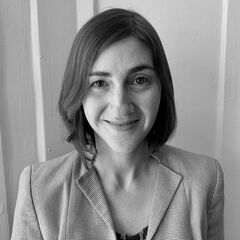
Brigid Cohen is a historical musicologist who specializes in the historiography of musics and musicians in migration. Her research and teaching examine the mass dislocation of peoples over the last two centuries, addressing conditions of empire, globalization, genocide, exile, and minoritized citizenship. This intellectual program stems from her conviction that music assumes special value under the pressure of conditions of uprooting. Music serves as a mode of self-fashioning, secures new (and old) community bonds, and brings individuals together in listening, speech, and action. It also interacts in variegated ways with the silences that emerge from troubled sites of memory.
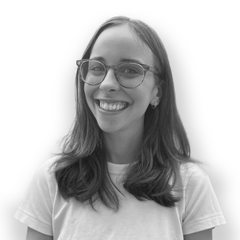
Gracie Golden serves as Artistic Freedom Initiative’s Senior Officer of Strategic Initiatives & Relocation, providing resettlement support across programs. She has dedicated her career to the intersection of art, cultural heritage, and human rights. Ms. Golden has six years’ experience coordinating initiatives for the University of Pennsylvania’s Penn Cultural Heritage Center, and has contributed to research and curatorial projects at the Smithsonian Cultural Rescue Initiative. Prior to joining AFI, Ms. Golden received an MA in anthropology from the University of Pennsylvania. She also holds a BA in anthropology and the history of art from Johns Hopkins University.
Tania León (b. Havana, Cuba) is highly regarded as a composer, conductor, educator, and advisor to arts organizations. Her orchestral work Stride, commissioned by the New York Philharmonic, was awarded the 2021 Pulitzer Prize in Music. In 2022, she was named a recipient of the 45th Annual Kennedy Center Honors for lifetime artistic achievements. In 2023, she was awarded the Michael Ludwig Nemmers Prize in Music Composition from Northwestern University. Most recently, León became the London Philharmonic Orchestra’s next Composer-in-Residence—a post she will hold for two seasons, beginning in September 2023. She will also hold Carnegie Hall’s Richard and Barbara Debs Composer’s Chair for its 2023-2024 season.
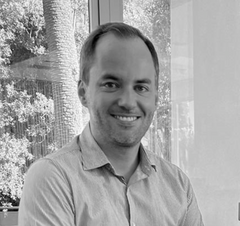
Kai Hinrich Müller is one of the emerging festival makers at the intersection of scholarship and practice. His work fosters cultural dialogues across continents and connects him with renowned institutions in Europe and the United States. He is the director of the bahaus music festival in Berlin and the Terezín Music Academy in the former ghetto of Theresienstadt, an initiative of Music Non Grata, for which he has curated numerous programs on artists persecuted by the Nazis. He has held several fellowships in Germany and the US, most recently at the Thomas Mann House in Los Angeles, where he initiated the transatlantic festival series Opera & Democracy. Kai studied musicology, law, and business administration (PhD 2013; habilitation 2022) and teaches at the Cologne University of Music and Dance. His current research interests include Richard Wagner and the Bayreuth Circle, antisemitism in music history, musical life in the interwar and Nazi years, the ensuing period of exile in North America, as well as transatlantic opera traditions.
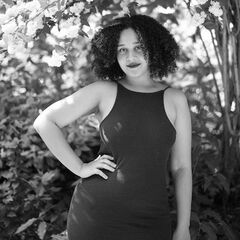
Alyssa Regent is a New York-based composer originally from the islands of Guadeloupe. She has participated in several music festivals and programs such as the 77th Composer’s Conference, String Quartet Evolution at the Banff Center (Canada), New Music on the Point and the Lucerne Music Festival (Switzerland). In 2023, she was awarded the Ascap Morton Gould Young Composer Award. She studied composition with Suzanne Farrin, David Fulmer, Marcos Balter and George Lewis and is currently pursuing a DMA at Columbia University. She is inspired by what she calls “the unseen”, seeking to evoke passions and sensations that are deeply rooted in introspection. She harvests from the ethereal, the enigmatic intersections between music and spirituality. She loves to think about music as an exploration of the spiritual and emotional dimensions of the human experience.
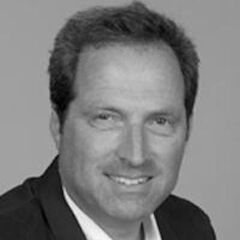
Michael P. Steinberg is the Barnaby Conrad and Mary Critchfield Keeney Professor of History, and Professor of Music and German Studies at Brown University. From 2016 to 2018 he served as president of the American Academy in Berlin. At Brown he served as the founding director of the Cogut Center for the Humanities (2005-2015) and as Vice Provost for the Arts (2015-16). His books include The Trouble with Wagner (Chicago, 2018) as well as the edited volume Makers of Jewish Modernity (Princeton, 2016; winner of the National Jewish Book Award for non-fiction); Listening to Reason: Culture, Music, and Subjectivity in 19th-Century Music (Princeton, 2004), and The Meaning of the Salzburg Festival (Cornell, 2000), of which the German edition (Ursprung und Ideologie der Salzburger Festspiele; Anton Pustet Verlag, 2000) won Austria's Victor Adler Staatspreis in 2001.
Partners
Opera & Democracy: Listening to Exile is a festival co-hosted by 1014-Space for Ideas, Austrian Cultural Forum New York, Goethe-Institut New York, and Leo Baeck Institute - New York | Berlin.
The series is initiated by the Thomas Mann House and curated by musicologist and 2023 Thomas Mann Fellow Kai Hinrich Müller.





Student Council on "Democracy and Vulnerability" – with Allison Lee
Online
Information
The Student Council consists of a team of highly engaged, talented, and diverse undergraduate and graduate students who invite prominent guest speakers to discuss topics relating to society, politics, culture, and art. In conversation with academics, journalists, politicians, and artists, the students will explore the various threats to democratic institutions and principles worldwide, as well as strategies to potentially overcome these threats.
Participant

The guest speaker for our April program is Allison Lee, who serves as PEN America’s Los Angeles Director. She was the Chief Development Officer for TIME’S UP, a non-profit organization dedicated to promoting gender equity and ending sexual violence in the workplace. She has previously served as Vice President of External Affairs at Bet Tzedek Legal Services, where she worked, among other things, to launch their Rapid Response Family Immigration Project and Transgender Advocacy Program. Prior to that, Allison served for eight years as the founding Executive Director of American Jewish World Service – Southern California. Allison received her B.A. in Political Science and American Studies from Tufts University.
Watch our March interview with Triston Ezidore, member of the Culver City School Board.
You can watch previous episodes on YouTube, listen to the recordings on dublab radio, or read our students' recap on the Thomas Mann House blog.
Meet the 2024 Student Council

Sara Abrahamsson is a fourth-year student at UCLA studying Art History and French. As a culmination of her artistic and academic interest in political graphics, Sara is currently writing her senior thesis paper on the internationalist poster art of post-revolutionary Cuba. Upon graduating, she plans to continue working in museums before pursuing graduate studies in Art History or Art Conservation.
Amy Cabrales is a First-Generation fourth-year undergraduate student at UCLA, studying Sociology and the Russian Language. She is a Mexican-American, Los Angeles native born in Lynwood, California. Her career interests include cross-cultural education via museum work or language instruction and immigrant resettlement, while her academic interests include immigrant integration and self-identity across immigrant generations. She is anticipating returning to Almaty, Kazakhstan for the 2024-25 academic year to inform these interests and advance her Russian proficiency.
Elsa Coony is a fourth-year student at the University of California, Los Angeles double majoring in Global Studies and German. She has previously worked at the United States Holocaust Memorial Museum as both a docent and translator and is excited to join this year's council. In the future, she hopes to pursue a career in international development.
Biruke Dix is currently a 2nd year student at UCLA studying Applied Mathematics. He joined the Wende Student Council in 2024 and is deeply invested in the ever-changing properties of art as well as social habits. He hopes that he can create language and conversation that promotes the spread of cultural shifts and social justice.
Matthew Jones is a third-year PhD student in Claremont Graduate University’s Cultural Studies and Museum Studies program. His research currently explores how sites connected to authoritarian regimes function as pilgrimage destinations and what strategies states and institutions employ to reduce extremist attachment at these sites. He is thrilled to continue his training with the Wende Museum through this collaboration with the Thomas Mann House.
Emma Larson is a master's student at Columbia University's Harriman Institute of Russian, Eurasian, and Eastern European Studies. There, she focuses on the gender, social, and political history of Central Asia. Before starting at Columbia, Emma taught English in Kazakhstan with the Fulbright Program. She graduated from Williams College with degrees in History and Russian in 2021.
Zora Nelson is a current undergraduate student at New York University, where she is studying Harp Performance and Media, Culture, and Communication. As an east coaster born and raised in Philadelphia, Pennsylvania, she discovered the Wende Museum in the summer of 2022 and is honored to be a part of the council. With a passion for writing, Zora sees a future in storytelling to promote social justice.
Lexi Tooley is a current sophomore at the University of Pennsylvania majoring in Political Science and Art History, minoring in Chinese Language and Culture. She is originally from Los Angeles, California, and attended the Archer School for Girls. Lexi has been working with the Wende Museum for the past 2 years. She looks forward to continuing the search for truth and examining the vulnerability of democracy through this program!
Partners
The event series is a collaboration with the Wende Museum Culver City, dublab and the Thomas Mann House Los Angeles.


Opera & Democracy: Musica Non Grata – Silent Voices in a Noisy World
Dresden

Information
*This event will be held in German*
Auf den Spuren zweier weitgehend vergessener Komponistinnen, die zu Beginn des 20. Jahrhunderts im Bereich der Operette wirkten, wandelt das Matineekonzert im Palais im Großen Garten. Amélie Nikisch, die Ehefrau des berühmten Dirigenten Arthur Nikisch, war als Sängerin und Komponistin äußerst umtriebig und produktiv. Als eine der erfolgreichsten Schöpferinnen ihrer Zeit auf diesem Feld galt auch Rachel Danziger van Embden, eine Schülerin des Wagner-Biografen Jacques Hartog, deren Karriere infolge der Machtübernahme der Nationalsozialisten ein jähes Ende fand. Nikischs 1911 in Dresden uraufgeführte Operette Meine Tante, Deine Tante und Danzigers Die Dorfkomtesse von 1910, die beide sogar bis in die New York Times ein Echo fanden, erklingen erstmalig seit Jahrzehnten wieder. Moderationen erzählen die Hintergründe der Zeit und gehen mit Bezug auf die Schicksale der Familien der Komponistinnen auf die Verfolgung von Kunstschaffenden zwischen Ländern und Kontinenten sowie auf die Idee eines politischen Mandats der Künste ein: ein entdeckenswertes Programm nicht nur für Liebhaber:innen des Genres.
Teilnahme
Ort:
Palais im Großen Garten
Hauptallee 8, 01219 Dresden
Tickets:
€ 47 / 37 / 22
Weitere Informationen hier
Besetzung
Sopran: Nefeli Spyropouliu & Ekaterina Krovateva
Tenor: Bálint Németh
Bariton: Friedemann Gottschlich & Benjamin Hewat-Craw
Klavier: Alexander Breitenbach
Einstudierung: Volker Krafft
Moderation & Leitung: PD Dr. Kai Hinrich Müller
Programm
Amélie Nikisch Meine Tante, Deine Tante
Rachel Danziger van Embden Die Dorfkomtesse
(jeweils in einer gekürzten Fassung für Klavier von Kai Hinrich Müller)
Partners
Eine Veranstaltung in Kooperation mit den Dresdner Musikfestspielen, Musica non grata/Terezín Music Academy
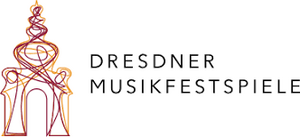
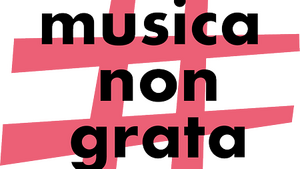

Student Council on "Democracy and Vulnerability" – with Catherine Opie
Online
Information
The Student Council consists of a team of highly engaged, talented, and diverse undergraduate and graduate students who invite prominent guest speakers to discuss topics relating to society, politics, culture, and art. In conversation with academics, journalists, politicians, and artists, the students will explore the various threats to democratic institutions and principles worldwide, as well as strategies to potentially overcome these threats.
Participant
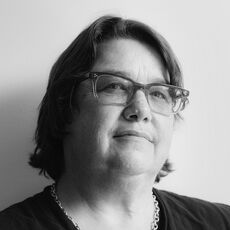
The guest speaker for our May program, Catherine Opie, is an American fine-art photographer and educator. Opie studies the connections between mainstream and marginalized society. Merging conceptual and documentary styles, she creates pieces relating to sexual identity; to the relationship between the individual and the space they inhabit; and to the tensions between the constructed American dream and the diverse realities of its citizens. Opie has had numerous solo shows, including at the Museum of Contemporary Art Los Angeles; Walker Art Center, Minneapolis; Museum of Contemporary Art, Chicago (2006); Solomon R. Guggenheim Museum, New York; Los Angeles County Museum of Art; Institute of Contemporary Art, Boston; and Hammer Museum, Los Angeles, CA. Her work has appeared in the Whitney Biennial, the Melbourne International Biennial, and SITE Santa Fe Biennial (2006).
Watch our April interview with Allison Lee, Managing Director at PEN America Los Angeles
You can watch previous episodes on YouTube, listen to the recordings on dublab radio, or read our students' recap on the Thomas Mann House blog.
Meet our 2024 Student Council
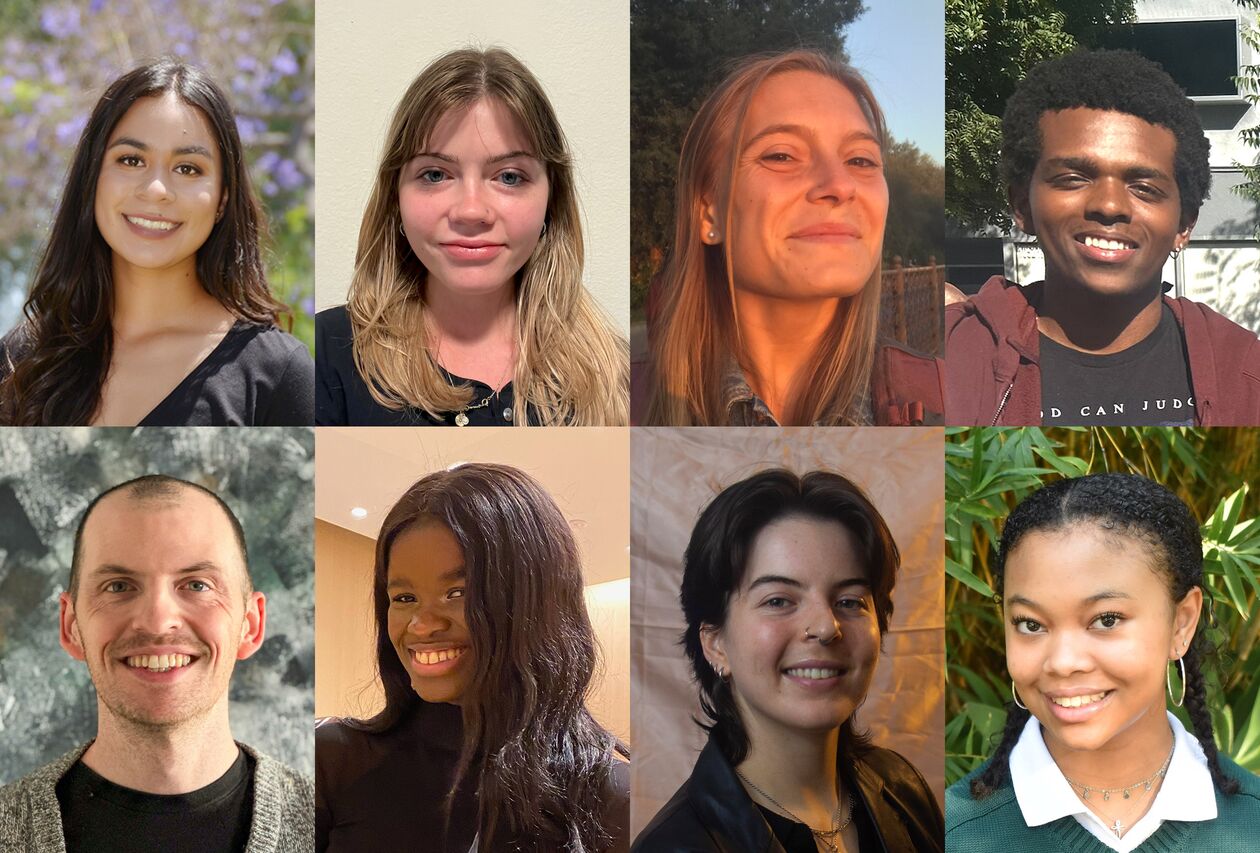
Sara Abrahamsson is a fourth-year student at UCLA studying Art History and French. As a culmination of her artistic and academic interest in political graphics, Sara is currently writing her senior thesis paper on the internationalist poster art of post-revolutionary Cuba. Upon graduating, she plans to continue working in museums before pursuing graduate studies in Art History or Art Conservation.
Amy Cabrales is a First-Generation fourth-year undergraduate student at UCLA, studying Sociology and the Russian Language. She is a Mexican-American, Los Angeles native born in Lynwood, California. Her career interests include cross-cultural education via museum work or language instruction and immigrant resettlement, while her academic interests include immigrant integration and self-identity across immigrant generations. She is anticipating returning to Almaty, Kazakhstan for the 2024-25 academic year to inform these interests and advance her Russian proficiency.
Elsa Coony is a fourth-year student at the University of California, Los Angeles double majoring in Global Studies and German. She has previously worked at the United States Holocaust Memorial Museum as both a docent and translator and is excited to join this year's council. In the future, she hopes to pursue a career in international development.
Biruke Dix is currently a 2nd year student at UCLA studying Applied Mathematics. He joined the Wende Student Council in 2024 and is deeply invested in the ever-changing properties of art as well as social habits. He hopes that he can create language and conversation that promotes the spread of cultural shifts and social justice.
Matthew Jones is a third-year PhD student in Claremont Graduate University’s Cultural Studies and Museum Studies program. His research currently explores how sites connected to authoritarian regimes function as pilgrimage destinations and what strategies states and institutions employ to reduce extremist attachment at these sites. He is thrilled to continue his training with the Wende Museum through this collaboration with the Thomas Mann House.
Emma Larson is a master's student at Columbia University's Harriman Institute of Russian, Eurasian, and Eastern European Studies. There, she focuses on the gender, social, and political history of Central Asia. Before starting at Columbia, Emma taught English in Kazakhstan with the Fulbright Program. She graduated from Williams College with degrees in History and Russian in 2021.
Zora Nelson is a current undergraduate student at New York University, where she is studying Harp Performance and Media, Culture, and Communication. As an east coaster born and raised in Philadelphia, Pennsylvania, she discovered the Wende Museum in the summer of 2022 and is honored to be a part of the council. With a passion for writing, Zora sees a future in storytelling to promote social justice.
Lexi Tooley is a current sophomore at the University of Pennsylvania majoring in Political Science and Art History, minoring in Chinese Language and Culture. She is originally from Los Angeles, California, and attended the Archer School for Girls. Lexi has been working with the Wende Museum for the past 2 years. She looks forward to continuing the search for truth and examining the vulnerability of democracy through this program!
Partners
The event series is a collaboration with the Wende Museum Culver City, dublab and the Thomas Mann House Los Angeles.


Opera & Democracy: Opera and the Intersections of Democracy
Zoom

Information
2024 is a big year for democracy. With national elections in 40 countries including the US, the UK, and South Africa, as well as parliamentary elections for the European Union, democratic values will once again be put to the ultimate test. 2024 also marks important anniversaries in the history of democracy. These include the 30th anniversary of South Africa’s first democratic elections, the 35th anniversary of the fall of the Berlin Wall, which paved the way for democratic transitions behind the so-called ‘Iron Curtain’, and the 57th anniversary of the Loving v. Virginia case in the US, which initiated the legalization of interracial marriage. Despite these significant milestones, however, democracy’s promises of equality have not yet been fully realized. Around the world, women, people of color, stateless persons, and sexual and religious minorities remain subject to political neglect and disenfranchisement. Moreover, democracy itself appears under threat from a rise in extremist and populist rhetoric.
BORN’s 2024 public discussion forum asks how opera can respond to these challenges. It considers what role opera has to play in the celebration and/or implementation of democratic culture, and reflects specifically on the interaction between race, political agency, and presence on the operatic stage. The event, which is open to all, draws together an international panel of practitioners and experts involved in the creation of Nkoli: The Vogue Opera (Johannesburg, 2023, music by Philip Miller), Loving v. Virginia (Virginia Opera, 2025, music by Damien Geter), and the discussion series, Opera & Democracy: Transatlantic Conversations & Concerts. Together, they will examine opera’s historical role in advancing democratic values, its participation in the sounding and/or silencing of disenfranchised voices, and its future potential to empower political understanding and participation among citizens around the world.
Participants
Philip Miller, composer of Nkoli: The Vogue Opera (Johannesburg, 2023)
Tshegofatso Moeng, musical director of Nkoli: The Vogue Opera (Johannesburg, 2023)
Allison Smith, Civic Engagement Coordinator of Virginia Opera
Kai Hinrich Müller, convenor of Opera & Democracy: Transatlantic Conversations & Concerts (Cologne University of Music and Dance)
Moderators
Joy Calico, University of California, Los Angeles (UCLA)
Joshua Tolulope David, University of Toronto
Partner
This event is presented by the Black Opera Research Network in collaboration with the Thomas Mann House.
"Slime Molds and Seasteads": A Conversation with Claire L. Evans and Theresia Enzensberger, moderated by Sherryl Vint
Goethe-Institut Los Angeles (1901 W 7th St Suite A/B, Los Angeles, CA 90057)

Information
In her 2022 novel Auf See (At Sea), nominated for the German Book Prize, author Theresia Enzensberger tells a story about utopian promises of new communities and happiness in the face of doom. The main character, Yada, grows up as a citizen of a floating city in the Baltic Sea. Her father, a libertarian tech entrepreneur, has designed the seaside town as a salvation from the chaos in which the rest of the world is sinking. Against the backdrop of current developments, such as “California Forever,” a plan for a future city for which a group of tech billionaires quietly purchased 60,000 rural acres of land in Solano County, utopian visions like in Enzensberger’s novel are not limited to SciFi literature anymore. Writer and artist Claire L. Evans recently published a volume titled Terraform: Watch/Worlds/Burn, an anthology of near future science fiction from VICE’s acclaimed, innovative digital speculative story destination. The book shows the predictive capacity of science fiction and seeks “new, vivid, and visceral ways to depict the future, translating the decay and anxiety that surround us into something else, something unexpected, something that burns like a beacon and upends the conventional ideas of where we’ll end up next.”
The conversation will be moderated by Sherryl Vint, Professor and Director of the Speculative Fiction and Cultures of Science program at the University of California, Riverside. Her research focuses on speculative fiction, especially relationships with science and technology. In her publications she explores how science fiction can give us tools for conceptualizing and perhaps shaping the ways that science and technology have an impact on daily life. Together they will talk about the benefits of technological speculations, potential new futures and the politics of innovation through a transatlantic literary lens.
Participants
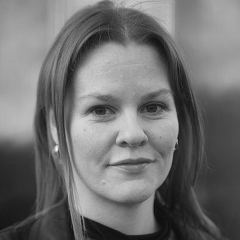
Theresia Enzensberger studied film at Bard College in New York and is a writer of prose, essays, reportage, and criticism. In 2014 she founded BLOCK Magazin which was named “best newcomer magazine” at the 2016 Lead Awards. In 2017, her first novel Blaupause (Blueprint) was published by Hanser Verlag. It was translated into several languages and awarded the Alfred Döblin Medal. Her recent novel Auf See (At Sea), published in 2022, was nominated for the German Book Prize. Enzensberger is a 2024 Thomas Mann Fellow.

Claire L. Evans is a writer and musician exploring ecology, technology, and culture. She is the singer of the Grammy-nominated pop group YACHT, co-founder of VICE’s imprint for speculative fiction, Terraform, and co-editor, with Brian Merchant, of the accompanying anthology Terraform: Watch Worlds Burn (MCD Books, 2022). Her writing has appeared in MIT Technology Review, VICE, Rhizome.org, The Verge, Pioneer Works’ Broadcast, The Guardian, the Los Angeles Review of Books, Document Journal, Eye on Design, and Aeon, among others. She is a 2024 MacDowell Fellow.
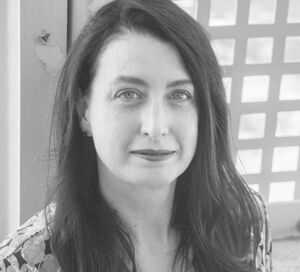
Sherryl Vint is Professor of Media and Cultural Studies and Chair of the Department of English at the University of California, Riverside, where she founded the Speculative Fictions and Cultures of Science program. She has published widely on science fiction, including, most recently, Biopolitical Futures in Twenty-First Century Speculative Fiction(2021), Science Fiction: The Essential Knowledge, and Programming the Future: Speculative Television and the End of Democracy (2022, co-authored with Jonathan Alexander). She was a founding editor of Science Fiction Film and Television and is an editor for the journal Science Fiction Studies and the book series Science in Popular Culture.
Partner
This event is a collaboration between the Goethe-Institut Los Angeles and the Thomas Mann House Los Angeles.

Music of Exile: Memory and Transformation in the Work of German and Iranian Composers
Thomas Mann House (1550 N San Remo Dr, Pacific Palisades, CA 90272)
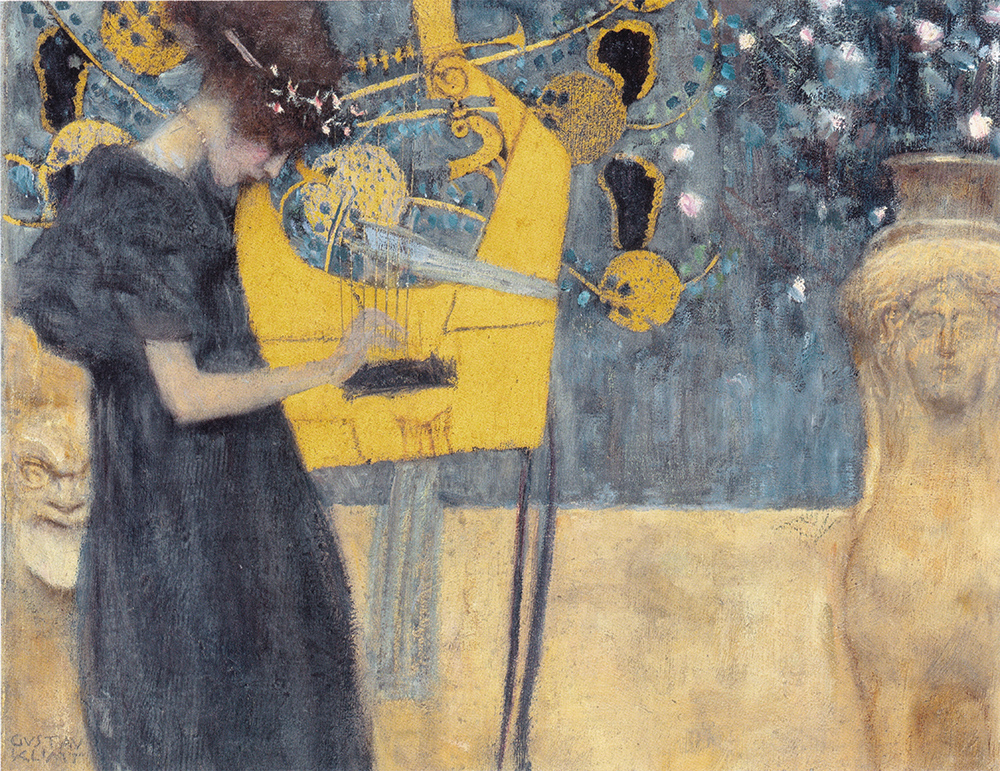
Information
The experience of exile is often characterized by states of uncertainty and the challenge of adapting to new social, cultural, and political circumstances. In offering opportunities to process and reflect on moments of intense crises, music and art play can play key roles in this experience. Realities of exile vary widely: from forced displacement due to conflict or persecution to voluntary migration in search of better opportunities. In many cases, exile entails a rupture with familiar surroundings and the need to navigate unfamiliar territories. As a means of processing these realities in times of crisis, music and art can offer hope and solidarity, as well as a space for emotional release and reflection, often fostering a sense of community and shared resilience. Across different cultures, composers and musicians have drawn inspiration from their own exile journeys, and in their music, one can often hear the echoes of longing, resilience, and hope.
What roles can art play in the exile experience? In conceiving of – and potentially realizing – a future that precludes it? In this concert-discussion, music serves as a point of departure for exploring ways in which exiled creators negotiate between rejection of and nostalgia for ‘home’; cynicism and idealism with respect to the sociopolitical future; lamentation of personal victimhood and responsibility for collective rebirth.
Bringing the experiences of 1940s-era German refugees into dialog with those of contemporary Iranian exiles, the event strives to shed new light on the experiences of individuals from two iconic communities that have found refuge in LA and to complicate narratives about the sociopolitical tragedies from which they fled.
The concert portion of the event will include selections from Hanns Eisler’s Hollywooder Liederbuch and music for strings by Gity Razaz, Nasim Khorassani, Adib Ghorbani, and Hesam Abedini. The conversation will feature music critic and 2024 Thomas Mann Fellow Aida Baghernejad, music scholar Joy Calico (UCLA Herb Alpert School of Music), and renowned music critic Alex Ross (The New Yorker). The conversation will be moderated by musicologist Julius Reder Carlson.
Musicians and Composers
Program
Hanns Eisler
Gity Razaz
Spellbound
Candenza for the Once Young
Nasim Khorassani
Growth
Adib Ghorbani
Flowers of Nostalgia (Golhay-e Ghorbat)
Hesam Abedini
O n O r W y
Hesam Abedini
'End of Shâhnâmeh' (Ferdowsi)
Adib Ghorbani
'How Are We Still Alive' (Ali Asadollahi)
SPELLBOUND - Gity Razaz
Spellbound for solo viola has the intimate quality of a reminiscing soliloquy. Textures and soundscapes weave in and out of an original melody that conjures the improvisatory lyricism of traditional Persian music. I was particularly inspired by the mourning and sul ponticello sound quality that is inherent to Persian instruments such as the Ney and Kamanche. Spellbound was commissioned by Maggie Snyder for the VIOLA2020 project in celebration of the 100th anniversary of the 19th amendment establishing women’s right to vote.
CADENZA FOR THE ONCE YOUNG - Gity Razaz
This short violin piece is about my grandparents, specifically about my grandmother. After the death of my grandfather, my grandmother (or Mamani, as we call her) moved to the U.S. to be close to her family. She and Babaee (my grandfather) were living in Iran all alone after their children immigrated to the US and Europe, so it was only natural for Mamani to come live here after her husband of 60+ years had passed. However, after a short period of five years, Mamani decided to move back to Iran as she was homesick, missed visiting Babaee’s resting place and all their memories. This piece is dedicated to their lasting love and decades of companionship.
GROWTH - Nasim Khorassani
This is a cell constructed by B, C, D, and E flat, growing and expanding. Growth has elements from Iranian traditional music influencing its form, harmony, trills, and long introverted melodies, but these are the characteristics that I discovered later.
FLOWERS OF NOSTALGIA (GOLHAY-E GHORBAT) - Adib Ghorbani
The work’s title is derived from the Iranian radio program “Flowers of Nostalgia”. This program aired throughout the 90s, broadcasting both Iranian traditional and Iranian pop music. This string quartet is inspired by the melodic content of those tunes - primarily stepwise melodies full of grace notes, vibrations and nuanced dynamics. The flowers of nostalgia now bloom here, carrying with them the scents of Iran.
O n O r W y - Hesam Abedini
I composed this relatively short string quartet piece to reconstruct my memory of the beginning of the 2009 Green Movement in Iran. In the afternoon after the presidential election, people took to the streets, and almost everywhere in Tehran, you could hear the sound of protests. I remember waking up to the whisper-like sounds of the protesters. In those moments, we all experienced a mixture of fear, uncertainty, excitement, and hope. We were all hopeful, at least at the beginning. I left Iran about eight months later, but the feeling that stayed with me was hope. Every time I remember those moments, hope is the first feeling that envelops my soul. Therefore, I chose a classical Persian modal system that, in the memory of the Iranian people, is associated with hope. Mâhur is a Dastgah (modal system) that includes a Gusheh (subsystem) named Châhâr Pâreh (four-part), based on a classical Persian poetic rhythm with a repetitive short-long syllabic pattern: Short-Short-Long-Short-Long (x4). I chose this specific Gusheh of Mâhur because of its repetitive rhythmic component. The words that are sung are meaningless, composed of short or long syllables set to the music in a way that sometimes the combination of them may sound meaningful to a Persian-speaking audience. This part imitates how, on that afternoon, we could hear the protesters from a distance at home and how excited and passionate we were to join them.
‘END OF SHÂHNÂMEH’ - Hesam Abedini
Setting of this 11th-century Shâhnâmeh text by Ferdowsi:.
They hide all the treasures
They strive yet yielding their achievements to the foe
••
No faith has remained in this world
The tongues and souls are brimming with tyranny
••
They shed blood for the worldly gains
Bad times seem halcyon
••
They seek their own profit at the expense of others
Using “religion” as their pretext
‘HOW ARE WE STILL ALIVE’ - Adib Ghorbani
Protest song from Women Life Freedom movement. Setting of a poem by Ali Asadollahi.
Participants
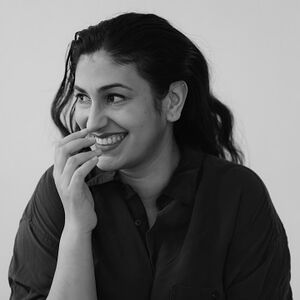
Aida Baghernejad is a journalist who studied media studies in Berlin, Barcelona, and London. Her work focuses on how cultural products such as music, film, and social media content influence the socio-political state of the world. In addition to numerous contributions for Die Zeit, Der Tagesspiegel, Missy Magazine, and others, she also co-hosts the podcast 55 Voices for Democracy, a collaboration between the Thomas Mann House, the Goethe-Institut, dublab radio, and the Los Angeles Review of Books.

Joy Calico joined the faculty at UCLA in August 2023, where she is Professor of Musicology at the Herb Alpert School of Music and affiliated faculty in Jewish Studies. She has published monographs on two luminaries of the Austro-German diaspora in Los Angeles: Bertolt Brecht at the Opera (2008) and Arnold Schoenberg’s A Survivor from Warsaw in Postwar Europe (2014), both with University of California Press. She is a member of the international working team of the Black Opera Research Network (BORN). Her current projects include a book about operatic scene types in 20th- and 21st-century opera based on Kaija Saariaho’s L’amour de loin, and a co-edited volume entitled Childhood and the Operatic Imaginary since 1900.

Alex Ross has been the music critic of The New Yorker since 1996. His first book, The Rest Is Noise: Listening to the Twentieth Century, won a National Book Critics Circle Award and was a finalist for the Pulitzer Prize. His second book, Listen to This, is a collection of essays. His latest book is Wagnerism: Art and Politics in the Shadow of Music, an account of Wagner’s vast cultural impact. He has written often about Thomas Mann and the émigré community in L.A. for The New Yorker. He was awarded with a MacArthur Fellowship and the Belmont Prize.

Julius Reder Carlson is Associate Professor of Music and Artistic Director of The Da Camera Society at Mount Saint Mary’s University, Los Angeles and co-founder of the Santa Monica Youth Orchestra (aka Sounds Like LA). His recent publications explore the transnational resonances of the South American Nueva Canción, particularly the work of Cold War-era singer-songwriters Atahualpa Yupanqui and Wolf Biermann.
Partner
This event is a collaboration between the Thomas Mann House Los Angeles and the The Da Camera Society.
Nourishing Justice: Jamiah Hargins & Ciani-Sophia Hoeder on Confronting Ecological Racism through Urban Farming
Thomas Mann House (1550 N San Remo Dr, Pacific Palisades, CA 90272)

Information
Participants
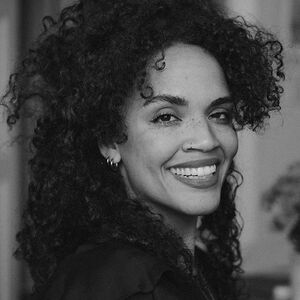
Ciani-Sophia Hoeder is a journalist and author from Berlin. She studied journalism and politics in Berlin and London. In 2019, she founded the online magazine RosaMag, which addresses a variety of challenges faced by Black individuals in German-speaking countries. In her work, Hoeder celebrates Blackness rather than problematizing it. In 2020, RosaMag was nominated for the Grimme Online Award, and in 2021, Hoeder received the Golden Blogger Award. Her debut book Wut & Böse was published with hanserblau in 2021, and her most recent book Vom Tellerwäscher zum Tellerwäscher was released in 2024. She is a 2024 Thomas Mann Fellow.
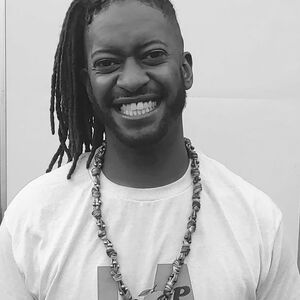
Jamiah Hargins is the Founder and Executive Director of Crop Swap LA. He worked as a stock and options trader in Chicago, where he also participated in a community garden. In Brazil, Hargins managed a social enterprise that leveraged rural agriculture and urban business to sustain an orphanage. Energized by the experience, and seeing first-hand what creative, mission-driven businesses can accomplish, he returned to the U.S. to study public policy at Columbia University and identify opportunities for impact. Along the way, he worked as an executive headhunter in the education field—a position that he says became excellent training for his work at building and managing Crop Swap LA.
Student Council on "Democracy and Vulnerability" – with Ajuan Mance
Online
Information
The Student Council consists of a team of highly engaged, talented, and diverse undergraduate and graduate students who invite prominent guest speakers to discuss topics relating to society, politics, culture, and art. In conversation with academics, journalists, politicians, and artists, the students will explore the various threats to democratic institutions and principles worldwide, as well as strategies to potentially overcome these threats.
Participant
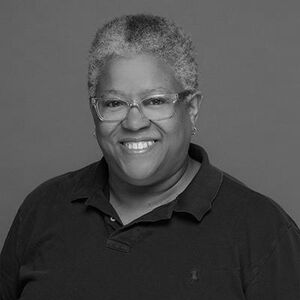
Ajuan Mance is a Professor of African American literature at Mills College in Oakland, California as well as a writer and artist. Throughout her comics and illustrations she uses the elements of humor and bright colors to explore race, gender, and power, and the people and places in which they intersect. Her work has appeared in a number of digital and print media outlets, including most recently The Women’s Review of Books, Blavity.com, BET.com, Transition Magazine, Buzzfeed.com, KQED.org, The San Francisco Chronicle, NYTimes.com, KPIX News, and Publisher’s Weekly.
Watch our May interview with internationally renowned artist and eductor Catherine Opie
You can watch previous episodes on YouTube, listen to the recordings on dublab radio, or read our students' recap on the Thomas Mann House blog.
Meet our 2024 Student Council

Sara Abrahamsson is a fourth-year student at UCLA studying Art History and French. As a culmination of her artistic and academic interest in political graphics, Sara is currently writing her senior thesis paper on the internationalist poster art of post-revolutionary Cuba. Upon graduating, she plans to continue working in museums before pursuing graduate studies in Art History or Art Conservation.
Amy Cabrales is a First-Generation fourth-year undergraduate student at UCLA, studying Sociology and the Russian Language. She is a Mexican-American, Los Angeles native born in Lynwood, California. Her career interests include cross-cultural education via museum work or language instruction and immigrant resettlement, while her academic interests include immigrant integration and self-identity across immigrant generations. She is anticipating returning to Almaty, Kazakhstan for the 2024-25 academic year to inform these interests and advance her Russian proficiency.
Elsa Coony is a fourth-year student at the University of California, Los Angeles double majoring in Global Studies and German. She has previously worked at the United States Holocaust Memorial Museum as both a docent and translator and is excited to join this year's council. In the future, she hopes to pursue a career in international development.
Biruke Dix is currently a 2nd year student at UCLA studying Applied Mathematics. He joined the Wende Student Council in 2024 and is deeply invested in the ever-changing properties of art as well as social habits. He hopes that he can create language and conversation that promotes the spread of cultural shifts and social justice.
Matthew Jones is a third-year PhD student in Claremont Graduate University’s Cultural Studies and Museum Studies program. His research currently explores how sites connected to authoritarian regimes function as pilgrimage destinations and what strategies states and institutions employ to reduce extremist attachment at these sites. He is thrilled to continue his training with the Wende Museum through this collaboration with the Thomas Mann House.
Emma Larson is a master's student at Columbia University's Harriman Institute of Russian, Eurasian, and Eastern European Studies. There, she focuses on the gender, social, and political history of Central Asia. Before starting at Columbia, Emma taught English in Kazakhstan with the Fulbright Program. She graduated from Williams College with degrees in History and Russian in 2021.
Zora Nelson is a current undergraduate student at New York University, where she is studying Harp Performance and Media, Culture, and Communication. As an east coaster born and raised in Philadelphia, Pennsylvania, she discovered the Wende Museum in the summer of 2022 and is honored to be a part of the council. With a passion for writing, Zora sees a future in storytelling to promote social justice.
Lexi Tooley is a current sophomore at the University of Pennsylvania majoring in Political Science and Art History, minoring in Chinese Language and Culture. She is originally from Los Angeles, California, and attended the Archer School for Girls. Lexi has been working with the Wende Museum for the past 2 years. She looks forward to continuing the search for truth and examining the vulnerability of democracy through this program!
Partners
The event series is a collaboration with the Wende Museum Culver City, dublab and the Thomas Mann House Los Angeles.


Identity and Literature: A Conversation with the authors Julia Franck and Arnon Grunberg, moderated by poet Lynne Thompson
Thomas Mann House Los Angeles (1550 N San Remo Dr, Brentwood, CA 90272)
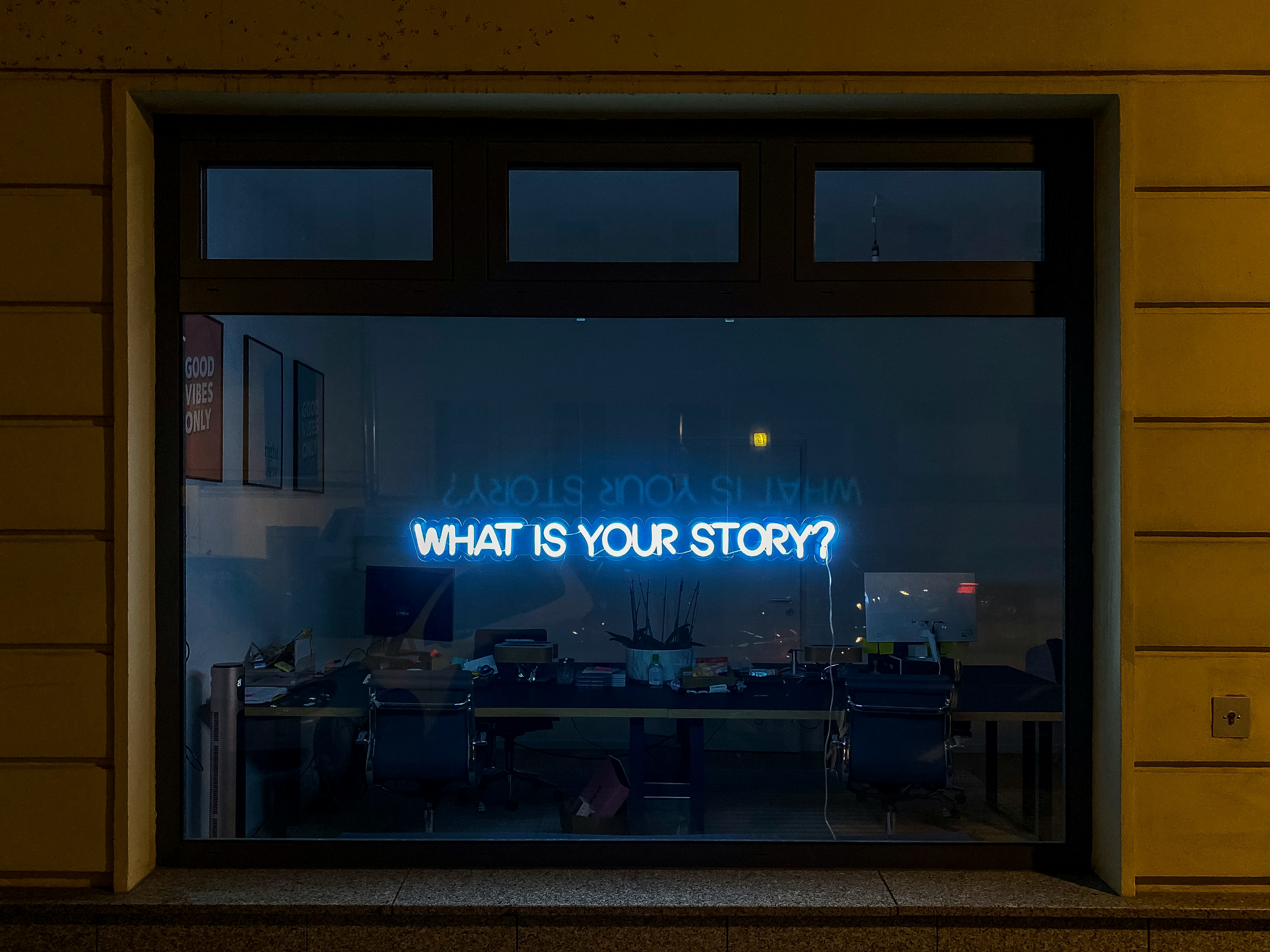
Information
How can authors face the challenges of portraying experiences and cultures they have not personally lived, and the importance of avoiding stereotypical portrayals of their fictional characters? Do writers and their works bear responsibility for social conditions? To what extent do literature and literary writers negotiate moral convictions in their characters and stories? Does a writer have to act as a judge of good and evil and right and wrong through the choice of their character’s perspectives? The evening will provide valuable insights into how writers can navigate the delicate balance of respecting and honoring the identities of others while enriching their narratives with diverse perspectives.
Participants
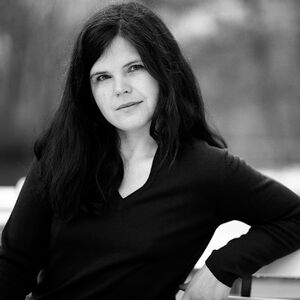
Julia Franck is an author based in Berlin, and a current Thomas Mann House Fellow 2024. She studied philosophy, modern German literature, and Ancient American Studies at Freie Universität Berlin. Frank published her first novel, Der Neue Koch, in 1997. Her work has received numerous prizes and awards, including a residency at Villa Massimo in Rome in 2005 and the German Book Prize in 2007. Franck also writes essays on literature, film, and art, and took the position of editor for Die Andere Bibliothek in 2023. Her work has been translated into 40 languages to date. She is a 2024 Thomas Mann Fellow.
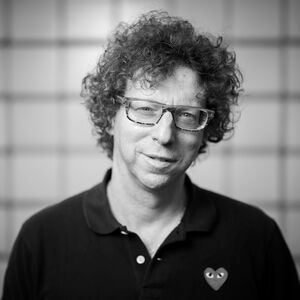
Arnon Grunberg is a Dutch novelist and reporter. After being kicked out of high school, he worked as assistant in a drugstore, as dishwasher, publisher, and playwright for an Amsterdam theater company. In 1994, at age of 23, he made his debut with the internationally acclaimed novel Blue Mondays which won him two awards: for the best and for the bestselling debut novel. Grunberg's work has been translated into thirty different languages. He writes reports, book reviews, columns and essays for Dutch media and regularly publishes essays and stories in literary magazine Hollands Maandblad. He has contributed to The New York Times, The Times of London, The Guardian, Süddeutsche Zeitung, Der Standard, Die Welt, Bookforum, among others.
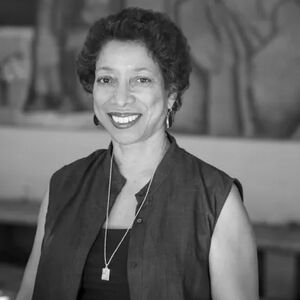
Lynne Thompson served as Los Angeles’ 4th Poet Laureate and received a Poet Laureate Fellowship from the Academy of American Poets. She is the author of four collections of poetry, Beg No Pardon, winner of the Perugia Press Prize and the Great Lakes Colleges New Writers Award; Start With A Small Guitar (What Books Press); Fretwork, winner of the 2019 Marsh Hawk Poetry Prize selected by Jane Hirshfield; and Blue on a Blue Palette published by BOA Editions in April 2024. A Pushcart Prize and Best of the Net nominee, Thompson is the recipient of multiple awards including the George Drury Smith Award for Outstanding Achievement in Poetry, an Individual Artist Fellowship from the City of Los Angeles, the Tucson Literary Festival Poetry Prize, and the Steven Dunn Poetry Prize.
Exile and Archives in Literature and Music: Evening Reception and Conversation
Thomas Mann House (1550 N San Remo Dr, Pacific Palisades, CA 90272)

Information
The workshop "Archives in / of Transit: Historical Perspectives from the 1930s to the Present" explores new ways of thinking about archives, archival records, and other artifacts historians might use as primary sources to gain deeper insight into the history of migrants in transit and the knowledge they possessed, produced, transmitted, or lost. With a starting point in the history of Jewish migration from National Socialist-occupied areas, the workshop broadens out to investigate the experiences of refugees and migrants fleeing genocide, armed conflict, and persecution throughout the twentieth century. Specifically, it uses the idea of “lost knowledge” (Steinberg/Strobl) to ask how migrants who leave their homes try to convey both the sense of loss and the disorientation that accompany the navigation of new lived realities—from the geographical to the socio-cultural, political, and beyond—in correspondence or other materials that capture any aspect of their flight and migration.
The workshop is convened by the German Historical Institute Washington; USC Shoah Foundation; Holocaust Research Institute, Royal Holloway; University of London; Queen Mary, University of London; and the Wiener Holocaust Library, London. Partners of the event are USC Dornsife Center for Advanced Genocide Research; Thomas Mann House, Los Angeles; Villa Aurora, Los Angeles; and Feuchtwanger Memorial Library, University of Southern California, Los Angeles.
The full program of the closed workshop can be found here.
Participants

Julia Franck is an author based in Berlin, and a current Thomas Mann House Fellow 2024. She studied philosophy, modern German literature, and Ancient American Studies at Freie Universität Berlin. Frank published her first novel, Der Neue Koch, in 1997. Her work has received numerous prizes and awards, including a residency at Villa Massimo in Rome in 2005 and the German Book Prize in 2007. Franck also writes essays on literature, film, and art, and took the position of editor for Die Andere Bibliothek in 2023. Her work has been translated into 40 languages to date.

Andrea Orzoff is Associate Professor of History and Honors at New Mexico State University. Dr. Orzoff came to NMSU's History Department in 2002 after completing her undergraduate education at Northwestern University and her master's and Ph.D. at Stanford. Dr. Orzoff has written on European and global history, the politics of culture, the mass media, migration, and nationalism. She has won multiple prestigious fellowships to support her research, including several Fulbright awards. Dr. Orzoff teaches Honors courses on European cities, the legacy and memory of the Holocaust, migration and refugees, and many others.
Partners
This event is convened by the German Historical Institute Washington; USC Shoah Foundation; Holocaust Research Institute, Royal Holloway; University of London; Queen Mary, University of London; Wiener Holocaust Library, London & Villa Aurora & Thomas Mann House Los Angeles.
Special in-person Student Council on "Democracy and Vulnerability" with “Radical Daughters”
Los Angeles
Information
Climate crisis, racism, political populisms: In light of such challenges, the world needs radical ideas and new impulses for action to tackle this current political climate. Above all, courage is needed, as well as an invigorated engagement with democratic values. Where are the new visions and practices of political engagement in times of vulnerable democracies? The workshops of “Radical Daughters" offer an introduction to methods and tactics of artistic activism which support fundamental democratic values such as liberty, equality, equity, and solidarity. They propose the so-called “courage muscle training,” which aims at transforming political anger into political courage and action. Their approach encourages to make use of the diverse repertoire of artistic activism to express concerns and discomfort whilst investing in finding new ways to address them. In a conversation with the student council, they will address questions of political education, such as what politics is, how we can make democracies more resilient, and how we can be more courageous.
Participants

Cesy Leonard is an action artist, speaker, and founder of the “Radikale Töchter” - inspiring people through political art to act and stand up for democracy, freedom, equality, brotherhood, and sisterhood. She studied acting in Berlin and worked in film, television, and theater. Often experiencing what it meant to have to conform to a clichéd image of a woman led her to start directing her own films. Her 2012 film “Guilt - The Barbarism of Europe” awarded her various prizes, such as the Web Video Award. In 2012, she joined the artistic staff of the collective “Center for Political Beauty,” which promotes pressing political issues through their art. Seeing how art, in particular, has the power to mobilize people to act is the inspiration behind the “Radikale Töchter.” Funded by the “Bundeszentrale für politische Bildung” as a model project, the team works to strengthen democracy in the former GDR.
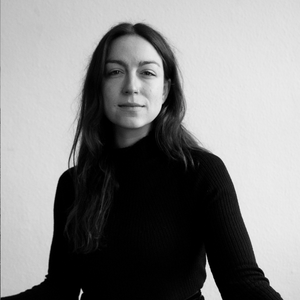
Josephin Haardt studied International Relations and Economics in Erfurt. She has been working as a project manager and managing director of the "Radical Daughters" since April 2019. This is where her interests in democracy, sisterhood, and organizational talent come together.
Watch our May interview with internationally renowned artist and eductor Catherine Opie
You can watch previous episodes on YouTube, listen to the recordings on dublab radio, or read our students' recap on the Thomas Mann House blog.
Meet our 2024 Student Council

Sara Abrahamsson is a fourth-year student at UCLA studying Art History and French. As a culmination of her artistic and academic interest in political graphics, Sara is currently writing her senior thesis paper on the internationalist poster art of post-revolutionary Cuba. Upon graduating, she plans to continue working in museums before pursuing graduate studies in Art History or Art Conservation.
Amy Cabrales is a First-Generation fourth-year undergraduate student at UCLA, studying Sociology and the Russian Language. She is a Mexican-American, Los Angeles native born in Lynwood, California. Her career interests include cross-cultural education via museum work or language instruction and immigrant resettlement, while her academic interests include immigrant integration and self-identity across immigrant generations. She is anticipating returning to Almaty, Kazakhstan for the 2024-25 academic year to inform these interests and advance her Russian proficiency.
Elsa Coony is a fourth-year student at the University of California, Los Angeles double majoring in Global Studies and German. She has previously worked at the United States Holocaust Memorial Museum as both a docent and translator and is excited to join this year's council. In the future, she hopes to pursue a career in international development.
Biruke Dix is currently a 2nd year student at UCLA studying Applied Mathematics. He joined the Wende Student Council in 2024 and is deeply invested in the ever-changing properties of art as well as social habits. He hopes that he can create language and conversation that promotes the spread of cultural shifts and social justice.
Matthew Jones is a third-year PhD student in Claremont Graduate University’s Cultural Studies and Museum Studies program. His research currently explores how sites connected to authoritarian regimes function as pilgrimage destinations and what strategies states and institutions employ to reduce extremist attachment at these sites. He is thrilled to continue his training with the Wende Museum through this collaboration with the Thomas Mann House.
Emma Larson is a master's student at Columbia University's Harriman Institute of Russian, Eurasian, and Eastern European Studies. There, she focuses on the gender, social, and political history of Central Asia. Before starting at Columbia, Emma taught English in Kazakhstan with the Fulbright Program. She graduated from Williams College with degrees in History and Russian in 2021.
Zora Nelson is a current undergraduate student at New York University, where she is studying Harp Performance and Media, Culture, and Communication. As an east coaster born and raised in Philadelphia, Pennsylvania, she discovered the Wende Museum in the summer of 2022 and is honored to be a part of the council. With a passion for writing, Zora sees a future in storytelling to promote social justice.
Lexi Tooley is a current sophomore at the University of Pennsylvania majoring in Political Science and Art History, minoring in Chinese Language and Culture. She is originally from Los Angeles, California, and attended the Archer School for Girls. Lexi has been working with the Wende Museum for the past 2 years. She looks forward to continuing the search for truth and examining the vulnerability of democracy through this program!
Partners
The event series is a collaboration with the Wende Museum Culver City, dublab and the Thomas Mann House Los Angeles.


Train Your Courage Muscles! Two-Day Workshop with “Radical Daughters"
Los Angeles

Information
Climate crisis, racism, political populisms: In light of such challenges, the world needs radical ideas and new impulses for action to tackle this current political climate. Above all, courage is needed, as well as an invigorated engagement with democratic values. Where are the new visions and practices of political engagement in times of vulnerable democracies? The workshops of “Radical Daughters" offer an introduction to methods and tactics of artistic activism which support fundamental democratic values such as liberty, equality, equity, and solidarity. They propose the so-called “courage muscle training,” which aims at transforming political anger into political courage and action. Their approach encourages to make use of the diverse repertoire of artistic activism to express concerns and discomfort whilst investing in finding new ways to address them.
Against the backdrop of the Thomas Mann House annual theme “Democracy & Vulnerability,” this workshop will address questions of political education, such as what politics is, how we can make democracies more resilient, and how we can be more courageous. The themes of this interactive dialogue will include the individual interests of the participants and their experiences, without lengthy lectures and seminars but rather by using public interventions, field research, and other creative approaches.
Join the Thomas Mann House and the Goethe-Institut Los Angeles for a political, creative, and activating workshop for those who want to get fitter at standing up for democracy!
Participants

Cesy Leonard is an action artist, speaker, and founder of the “Radikale Töchter” - inspiring people through political art to act and stand up for democracy, freedom, equality, brotherhood, and sisterhood. She studied acting in Berlin and worked in film, television, and theater. Often experiencing what it meant to have to conform to a clichéd image of a woman led her to start directing her own films. Her 2012 film “Guilt - The Barbarism of Europe” awarded her various prizes, such as the Web Video Award. In 2012, she joined the artistic staff of the collective “Center for Political Beauty,” which promotes pressing political issues through their art. Seeing how art, in particular, has the power to mobilize people to act is the inspiration behind the “Radikale Töchter.” Funded by the “Bundeszentrale für politische Bildung” as a model project, the team works to strengthen democracy in the former GDR.
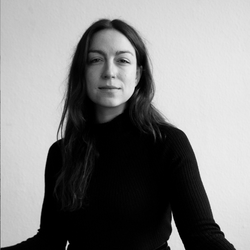
Josephin Haardt studied International Relations and Economics in Erfurt. She has been working as a project manager and managing director of the "Radical Daughters" since April 2019. This is where her interests in democracy, sisterhood, and organizational talent come together.
Partners
An event by the Thomas Mann House Los Angeles in Collaboration with the Goethe-Institut Los Angeles and “Radikale Töchter”


Listening Session & Gespräch with journalists Aida Baghernejad and Pendarvis Harshaw
San Francisco (657 Howard St, San Francisco, CA 94105)
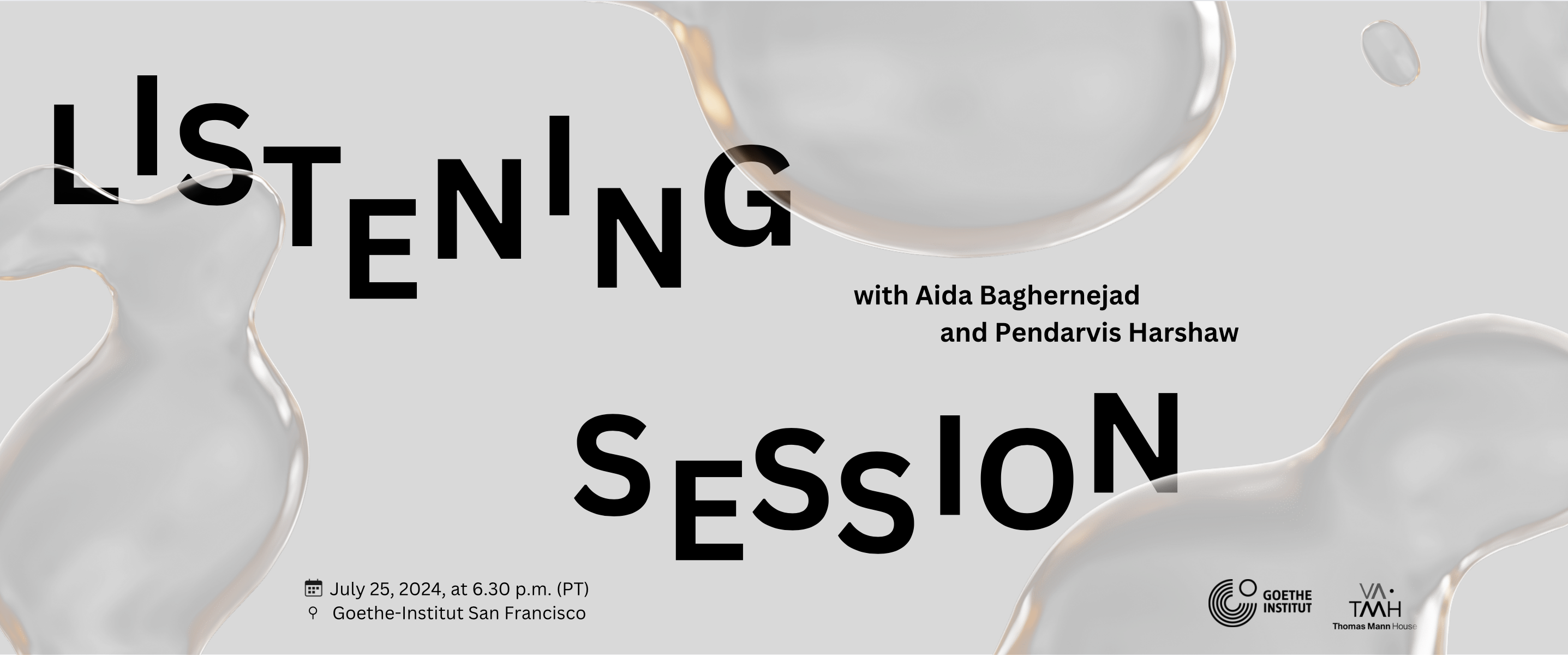
Information

Participants

Aida Baghernejad is a journalist who studied media studies in Berlin, Barcelona, and London. Her work focuses on how cultural products such as music, film, and social media content influence the socio-political state of the world. In addition to numerous contributions for Die Zeit, Der Tagesspiegel, Missy Magazine, and others, she also co-hosts the podcast 55 Voices for Democracy, a collaboration between the Thomas Mann House, the Goethe-Institut, dublab radio, and the Los Angeles Review of Books.

Pendarvis Harshaw is an award-winning journalist from Oakland who writes about prisons, politics, hip-hop and all things impacting his Northern Californian community. He currently works in San Francisco at KQED, where he hosts the Rightnowish podcast and is the co-editor of BayAreaHipHop.com. You can reach him at @ogpenn on all platforms.
Partner
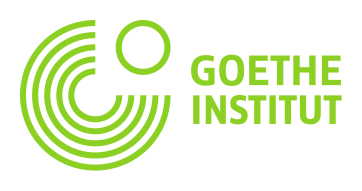
Foreign Correspondent Unplugged: "Pop and Protest" - Aida Baghernejad, August Brown & Annett Scheffel in Conversation
Goethe-Institut Los Angeles

Information
Join us, the Goethe-Institut, and the American Council on Germany (ACG Warburg Chapter) for a discussion between Thomas Mann Fellow, music journalists Aida Baghernejad (2024 Thomas Mann Fellow) and August Brown (LA Times) as they discuss the powerful interplay between pop culture and the politics of protest in a conversation moderated by Annett Scheffel. The panelists will explore how pop culture has become an indispensable arena for political expression and activism, examining the paradigm shifts in music journalism and the dynamic relationship between entertainment and social change. In this discussion the journalists will negotiate how pop culture can act as an agent of hope and its role as a tool for supporting democracies in peril.
The conversation will be recorded and published on the Foreign Correspondent Unplugged podcast and in the Goethe-Institut magazine GEGENÜBER.
Participants

Aida Baghernejad is a journalist who studied media studies in Berlin, Barcelona, and London. Her work focuses on how cultural products such as music, film, and social media content influence the socio-political state of the world. In addition to numerous contributions for Die Zeit, Der Tagesspiegel, Missy Magazine, and others, she also co-hosts the podcast 55 Voices for Democracy. During her residency in California, Aida Baghernejad will explore the intersection between pop culture and politics in times of multiple crises. She will engage with the history of the Thomas Mann House and of the émigrés in Southern California, and their lasting impact on German and American culture.
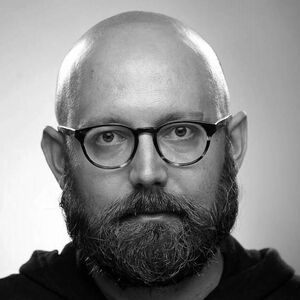
August Brown covers pop music, the music industry and nightlife policy at the Los Angeles Times.
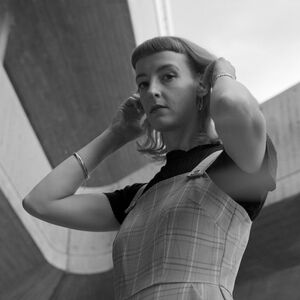
Annett Scheffel is a culture writer, editor, speaker, and presenter based in Los Angeles and Berlin. She thinks, writes, and talks about music, film, feminism, and contemporary culture for the Süddeutsche Zeitung, Spiegel Online, Zeit Online Musikexpress, Dummy Magazin, and Deutschlandfunk — preferably at the intersection between identity, society, and politics.
Partners
The series Foreign Correspondent Unplugged is a collaboration with the Goethe-Institut Los Angeles and the American Council on Germany (ACG Warburg Chapter)


Exhibition "Democracy Will Win!" at Lafayette College
Lafayette College (317 Hamilton St, Easton, PA 18042)

Information
Join the Lafayette College for the traveling exhibition "Thomas Mann: Democracy Will Win!"
The exhibition commemorates the series of lecture tours that the Nobel Laureate conducted throughout the Unites States from the late 1930s to the mid-1940s. The first of these tours began at Northwestern University, where more than 4000 people came to hear him speak about the fundamental reasons for liberal democracy. “It is a terrible spectacle when the irrational becomes popular,” Mann said in a speech at the Library of Congress in 1943, and he drew on his considerable powers of thought and expression to counter the sources of this spectacle through his confident motto: “Democracy will win.”
The like-named exhibit is divided into two parts: the first charts the changes in Mann’s political views, while the second connects Mann’s lectures tours to current political situations in both Europe and the United States.
The galleries are open Wednesdays to Sundays, 12-5 pm.
Find more information here.
Partner
The traveling exhibition Thomas Mann: Democracy Will Win! is a collaboration between the German Department at Lafayette College, and the Thomas Mann House Los Angeles.
Student Council on "Democracy and Vulnerability" – with Irfan Nooruddin
Online
Information
The Student Council consists of a team of highly engaged, talented, and diverse undergraduate and graduate students who invite prominent guest speakers to discuss topics relating to society, politics, culture, and art. In conversation with academics, journalists, politicians, and artists, the students will explore the various threats to democratic institutions and principles worldwide, as well as strategies to potentially overcome these threats.
RSVP here!
Participant

Irfan Nooruddin is the Hamad bin Khalifa Al-Thani Professor of Indian Politics at Georgetown University in Washington, D.C. He studies problems of economic development and globalization, democracy and democratization, and civil conflict. His books are Coalition Politics and Economic Development (2011); Elections in Hard Times (2016, with T.E. Flores); and The Everyday Crusade (2022, with E.L. McDaniel and A.F. Shortle), all published by Cambridge University Press. Irfan received a Ph.D. in Political Science from the University of Michigan, and a B.A. in Economics and International Studies from Ohio Wesleyan University.
Watch our live and in-person July interview with the German performance group Radical Daughters (Radikale Töchter)
You can watch previous episodes on YouTube, listen to the recordings on dublab radio, or read our students' recap on the Thomas Mann House blog.
Meet our 2024 Student Council

Sara Abrahamsson is a fourth-year student at UCLA studying Art History and French. As a culmination of her artistic and academic interest in political graphics, Sara is currently writing her senior thesis paper on the internationalist poster art of post-revolutionary Cuba. Upon graduating, she plans to continue working in museums before pursuing graduate studies in Art History or Art Conservation.
Amy Cabrales is a First-Generation fourth-year undergraduate student at UCLA, studying Sociology and the Russian Language. She is a Mexican-American, Los Angeles native born in Lynwood, California. Her career interests include cross-cultural education via museum work or language instruction and immigrant resettlement, while her academic interests include immigrant integration and self-identity across immigrant generations. She is anticipating returning to Almaty, Kazakhstan for the 2024-25 academic year to inform these interests and advance her Russian proficiency.
Elsa Coony is a fourth-year student at the University of California, Los Angeles double majoring in Global Studies and German. She has previously worked at the United States Holocaust Memorial Museum as both a docent and translator and is excited to join this year's council. In the future, she hopes to pursue a career in international development.
Biruke Dix is currently a 2nd year student at UCLA studying Applied Mathematics. He joined the Wende Student Council in 2024 and is deeply invested in the ever-changing properties of art as well as social habits. He hopes that he can create language and conversation that promotes the spread of cultural shifts and social justice.
Matthew Jones is a third-year PhD student in Claremont Graduate University’s Cultural Studies and Museum Studies program. His research currently explores how sites connected to authoritarian regimes function as pilgrimage destinations and what strategies states and institutions employ to reduce extremist attachment at these sites. He is thrilled to continue his training with the Wende Museum through this collaboration with the Thomas Mann House.
Emma Larson is a master's student at Columbia University's Harriman Institute of Russian, Eurasian, and Eastern European Studies. There, she focuses on the gender, social, and political history of Central Asia. Before starting at Columbia, Emma taught English in Kazakhstan with the Fulbright Program. She graduated from Williams College with degrees in History and Russian in 2021.
Zora Nelson is a current undergraduate student at New York University, where she is studying Harp Performance and Media, Culture, and Communication. As an east coaster born and raised in Philadelphia, Pennsylvania, she discovered the Wende Museum in the summer of 2022 and is honored to be a part of the council. With a passion for writing, Zora sees a future in storytelling to promote social justice.
Lexi Tooley is a current sophomore at the University of Pennsylvania majoring in Political Science and Art History, minoring in Chinese Language and Culture. She is originally from Los Angeles, California, and attended the Archer School for Girls. Lexi has been working with the Wende Museum for the past 2 years. She looks forward to continuing the search for truth and examining the vulnerability of democracy through this program!
Partners
The event series is a collaboration with the Wende Museum Culver City, dublab and the Thomas Mann House Los Angeles.


Patty Jenkins in Conversation with Aida Baghernejad & Tom Zoellner: 55 Voices for Democracy Live at Thomas Mann House
Thomas Mann House (1550 N San Remo Dr, Pacific Palisades, CA 90272)
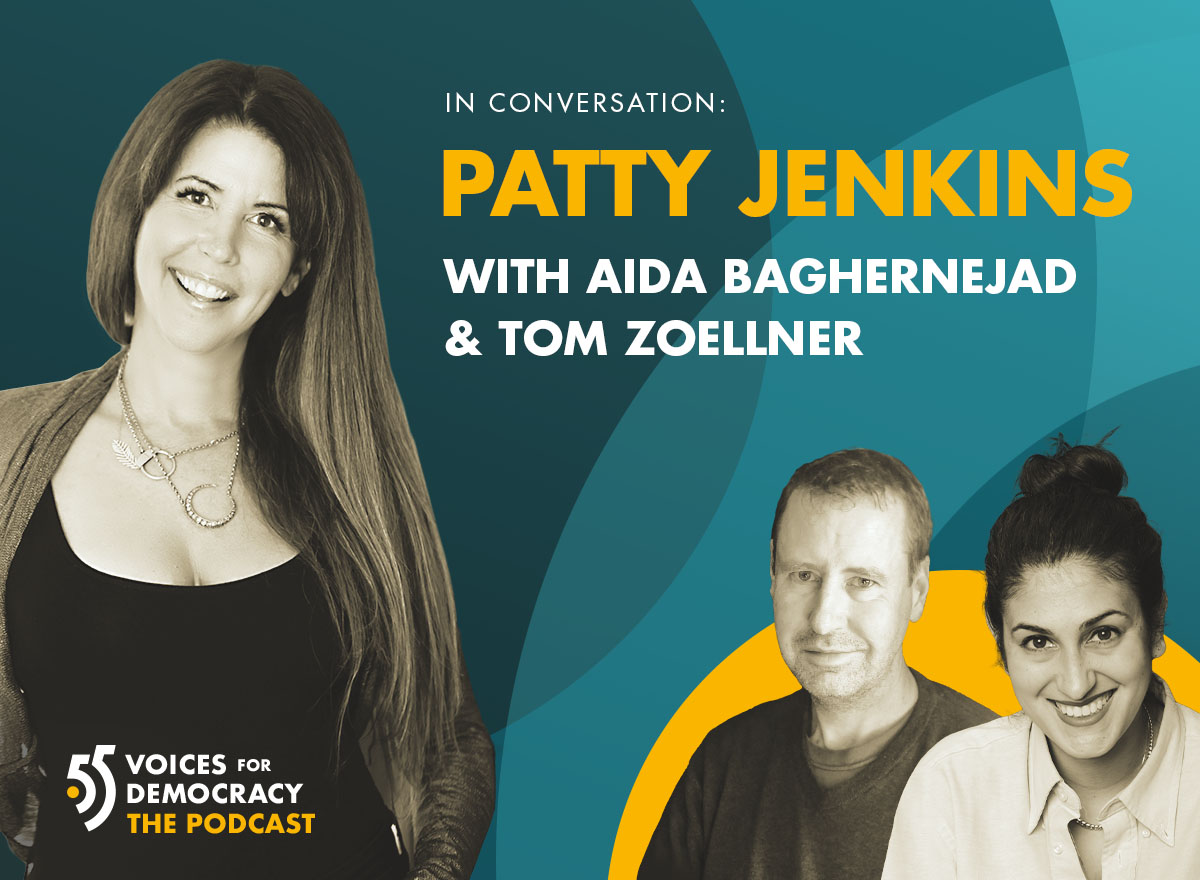
Information
Patty Jenkins is a renowned writer and director best known for the films Wonder Woman (2017), Wonder Woman 1984 (2020), and her debut Oscar-winning feature Monster (2003). Jenkins also helmed the pilot and finale of AMC’s hit show The Killing, garnering her multiple awards. Wonder Woman smashed box office records and became the highest-grossing live-action film directed by a woman at the time. She was also the first woman to oversee a film budget over $200 million. The feminist journalist and activist Gloria Steinem remarked that the film made Wonder Woman’s "Amazon origin story clear; she was stopping war, not perpetuating it; her strength was communicating in 200 languages; and she was exploring and learning without giving up her uniqueness.” During her residency at the Thomas Mann House, Aida Baghernejad will explore the intersection between pop culture and politics in times of multiple crises. Together with New York Times bestselling author and journalist Tom Zoellner, co-host of the Thomas Mann House podcast 55 Voices for Democracy, they will discuss Patty Jenkins’ groundbreaking work for women in film, Wonder Woman’s critical role for feminist superhero films, and what the German entertainment industry can learn from Hollywood.
The conversation will take place at the Thomas Mann House in front of a live audience. A recording of the conversation will be released on the 55 Voices for Democracy podcast feed.
Participants
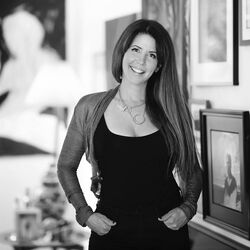
Patty Jenkins is an award-winning writer and director best known for Wonder Woman (2017), Wonder Woman 1984 (2020), and her debut Oscar-winning feature Monster (2003). Jenkins also helmed the pilot and finale of AMC’s hit show “The Killing,” garnering her multiple awards. WONDER WOMAN smashed box office records and became highest-grossing live-action film directed by a woman at the time. She was the first woman to helm a budget over 100 million and over 200 million. Up next, Jenkins is set to developing several original projects and is producing a small slate of films.

Aida Baghernejad is a journalist who studied media studies in Berlin, Barcelona, and London. Her work focuses on how cultural products such as music, film, and social media content influence the socio-political state of the world. In addition to numerous contributions for Die Zeit, Der Tagesspiegel, Missy Magazine, and others, she also co-hosts the podcast 55 Voices for Democracy. During her residency in California, Aida Baghernejad will explore the intersection between pop culture and politics in times of multiple crises. She will engage with the history of the Thomas Mann House and of the émigrés in Southern California, and their lasting impact on German and American culture.

Tom Zoellner is a journalist and author. He is New York Times bestselling author of eight nonfiction books, including Uranium Train and The Heartless Stone. He teaches at Chapman University and Dartmouth College. A former reporter for the San Francisco Chronicle, he is the politics editor at the Los Angeles Review of Books.
Partner
In collaboration with Los Angeles Review of Books
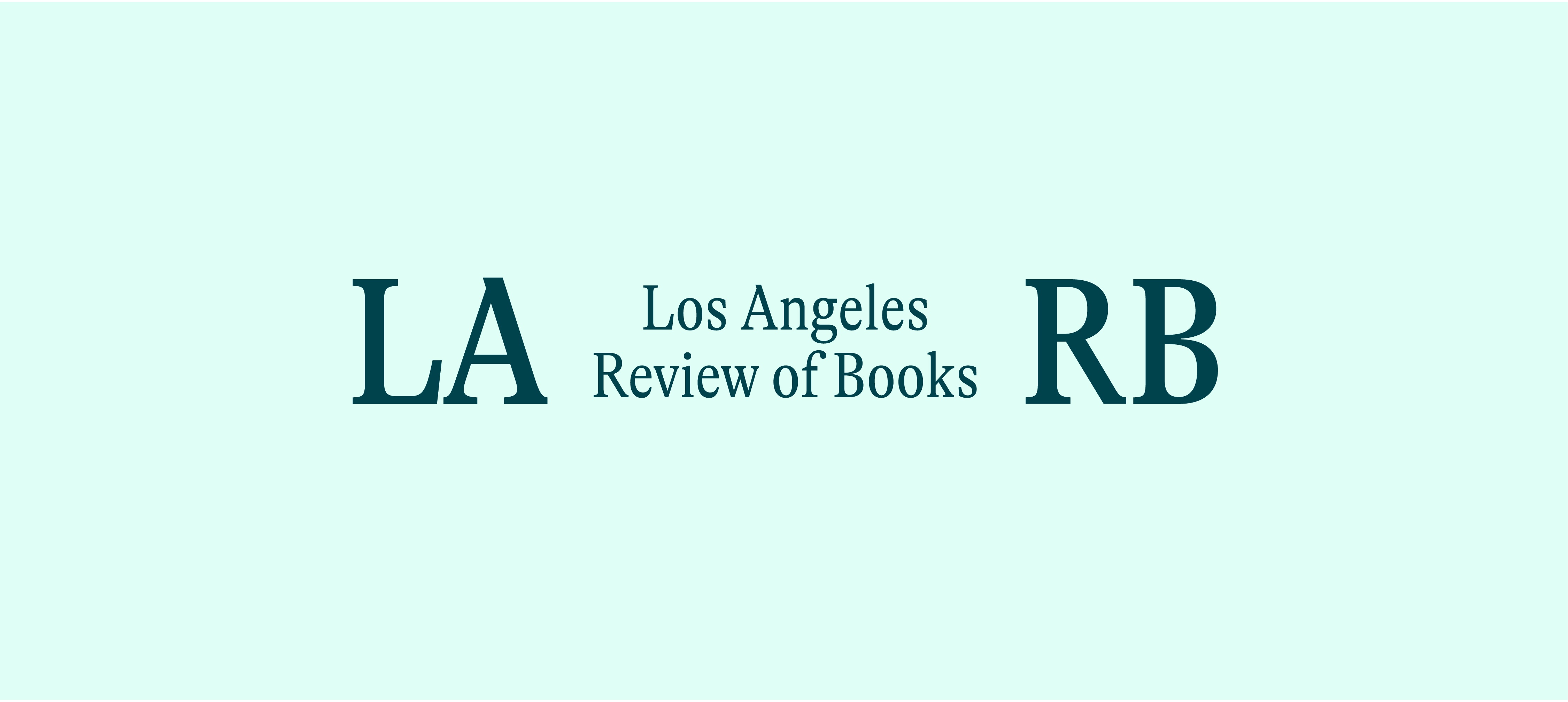
Exhibition Opening: "Thomas Mann: Democracy Will Win!" – with Opening Remarks by Veronika Fuechtner
Easton, Pennsylvania
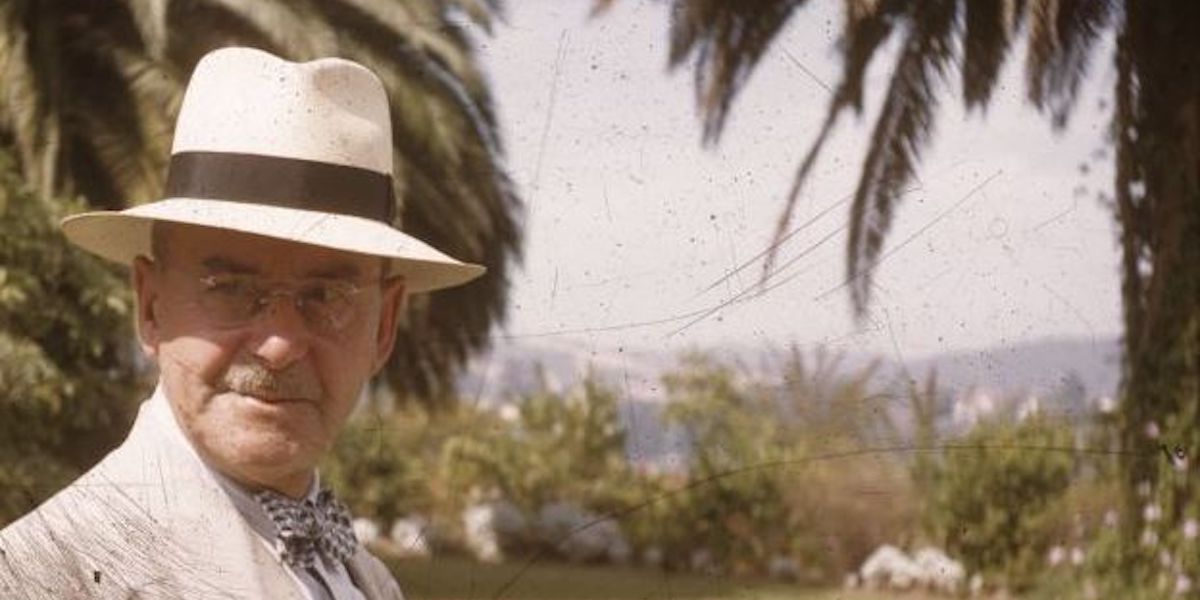
Information
The exhibit explores the trajectory of Mann’s political development in relation to different categories such as personal background, Zeitgeist, his political commitments, actions, and responsibility. Viewers are invited to interrogate their own beliefs and paths alongside those of Thomas Mann. A series of film clips connects these different topics with ongoing debates and critical moments in contemporary history such as the 2017 Charlottesville riot, the Black Lives Matter Movement, climate change mitigation, and the global refugee and immigration crises.
The exhibition will be displayed at Lafayette College from August 28 until October 25, 2024.
Participant
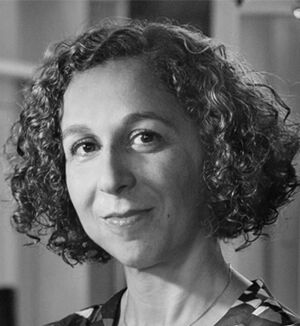
Veronika Fuechtner is Chair of Comparative Literature and Associate Professor of German Studies at Dartmouth College. She also teaches in Jewish Studies, and Women's, Gender, and Sexuality Studies. She is the author of Berlin Psychoanalytic (University of California Press, 2011) and the co-editor of Imagining Germany, Imagining Asia (with Mary Rhiel, Camden House, 2013) and A Global History of Sexual Science 1880-1960 (with Douglas E. Haynes and Ryan Jones, University of California Press, 2017). She is completing a monograph on Thomas and Heinrich Mann's Brazilian mother, Julia Mann, and the Mann family construction of race and "Germanness." Her research interests include the history of psychoanalysis and sexology, the relationship between science and culture, discourses on race and ethnicity, German-language modernism, contemporary culture, German-language film, and global cultural and scientific histories.
Partner
An event by the Max Kade Center for German Studies in collaboration with the Thomas Mann House.


"Denationalize & Kill. On the Expulsion of 'Enemies of the State' from the Democratic Legal Community after 1945“ – A Lecture and Research Tour with Thomas Mann Fellow Dieter Gosewinkel
Georgetown University, Washington, D.C.
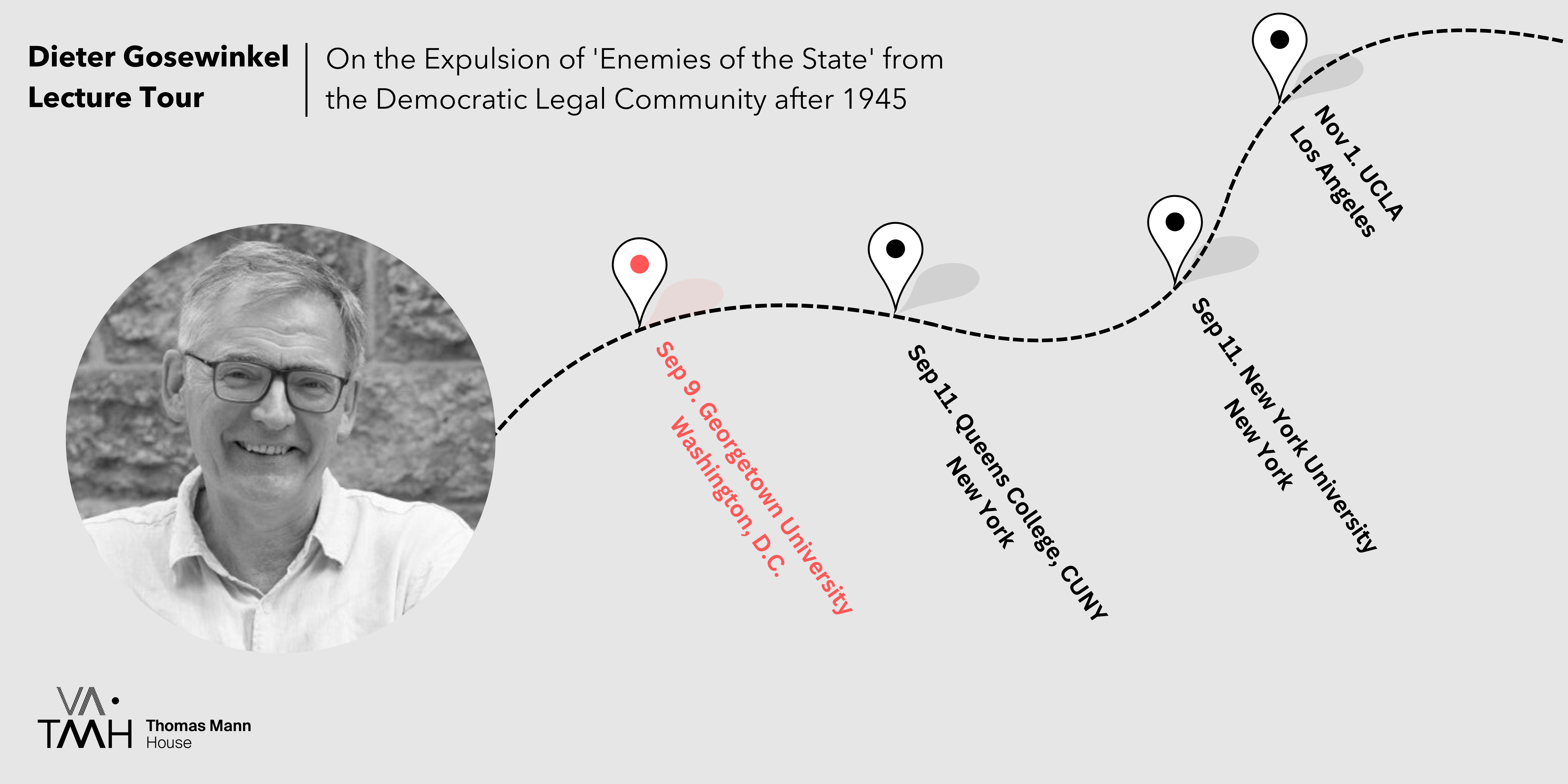
Information
During his Fellowship at the Thomas Mann House, historian Dieter Gosewinkel is conducting academic research in Los Angeles, Washington D.C., and New York for a publication project on the topic of "Denationalize & Kill. On the Expulsion of 'Enemies of the State' from the Democratic Legal Community after 1945.“ In September 2024, he will present and discuss his research with academic partners in the U.S., and conduct in-depth interviews with experts on the subject. His research concerns the vulnerability of democracy from within: the abandonment of its constitutional core in favor of a hoped-for gain in security. To what extent does the commitment to the law distinguish democracies from dictatorships in the fight against "enemies of the state?" The United States, the oldest republican constitutional state, serves as the world's most important model for this.
Participant
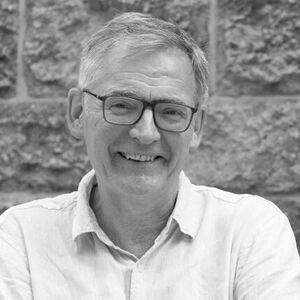
Dieter Gosewinkel is a historian and lawyer whose research focuses on European modern history and the history of citizenship, civil society, constitutional law, and European thought. From 2011 to 2021, he was co-director of the Center for Global Constitutionalism at the WZB Berlin Social Science Center, and is currently a Senior Research Fellow at the Hamburg Institute for Social Research. He also held a number of fellowships, including at the European University Institute in Florence, the Institut d'études avancées de Paris, and the University of Oxford. He has taught at Freie Universität Berlin, Sciences Po, Paris, and others.
Partners
The lecture tour is organized with Queens College (CUNY), Georgetown University, New York University, and UCLA.
"Denationalize & Kill. On the Expulsion of 'Enemies of the State' from the Democratic Legal Community after 1945“ – A Lecture and Research Tour with Thomas Mann Fellow Dieter Gosewinkel
New York University
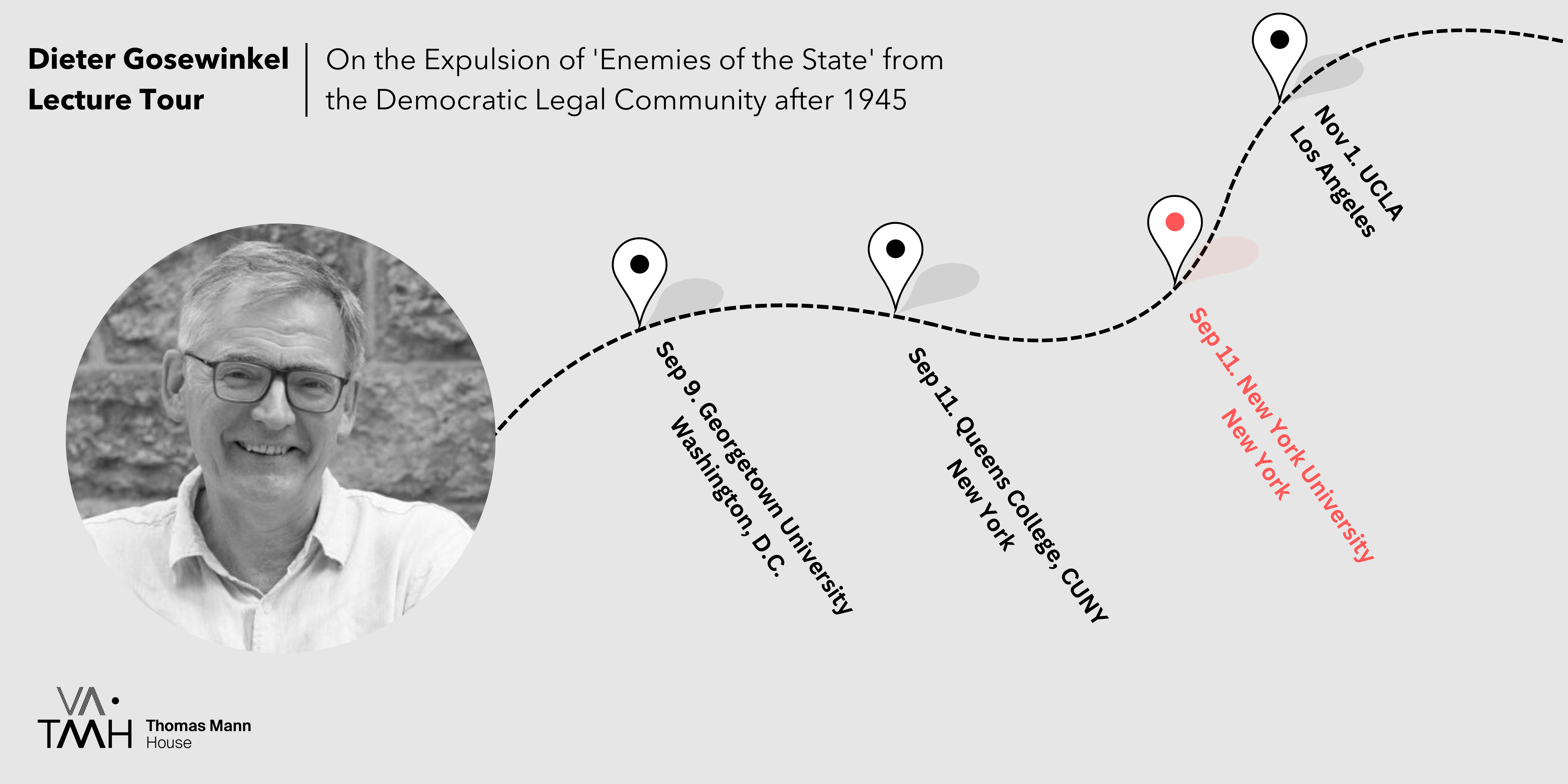
Information
During his Fellowship at the Thomas Mann House, historian Dieter Gosewinkel is conducting academic research in Los Angeles, Washington D.C., and New York for a publication project on the topic of "Denationalize & Kill. On the Expulsion of 'Enemies of the State' from the Democratic Legal Community after 1945.“ In September 2024, he will present and discuss his research with academic partners in the U.S., and conduct in-depth interviews with experts on the subject. His research concerns the vulnerability of democracy from within: the abandonment of its constitutional core in favor of a hoped-for gain in security. To what extent does the commitment to the law distinguish democracies from dictatorships in the fight against "enemies of the state?" The United States, the oldest republican constitutional state, serves as the world's most important model for this.
Participant

Dieter Gosewinkel is a historian and lawyer whose research focuses on European modern history and the history of citizenship, civil society, constitutional law, and European thought. From 2011 to 2021, he was co-director of the Center for Global Constitutionalism at the WZB Berlin Social Science Center, and is currently a Senior Research Fellow at the Hamburg Institute for Social Research. He also held a number of fellowships, including at the European University Institute in Florence, the Institut d'études avancées de Paris, and the University of Oxford. He has taught at Freie Universität Berlin, Sciences Po, Paris, and others.
Partners
The lecture tour is organized with Queens College (CUNY), Georgetown University, New York University, and UCLA.
"Denationalize & Kill. On the Expulsion of 'Enemies of the State' from the Democratic Legal Community after 1945“ – A Lecture and Research Tour with Thomas Mann Fellow Dieter Gosewinkel
Queens College, NY
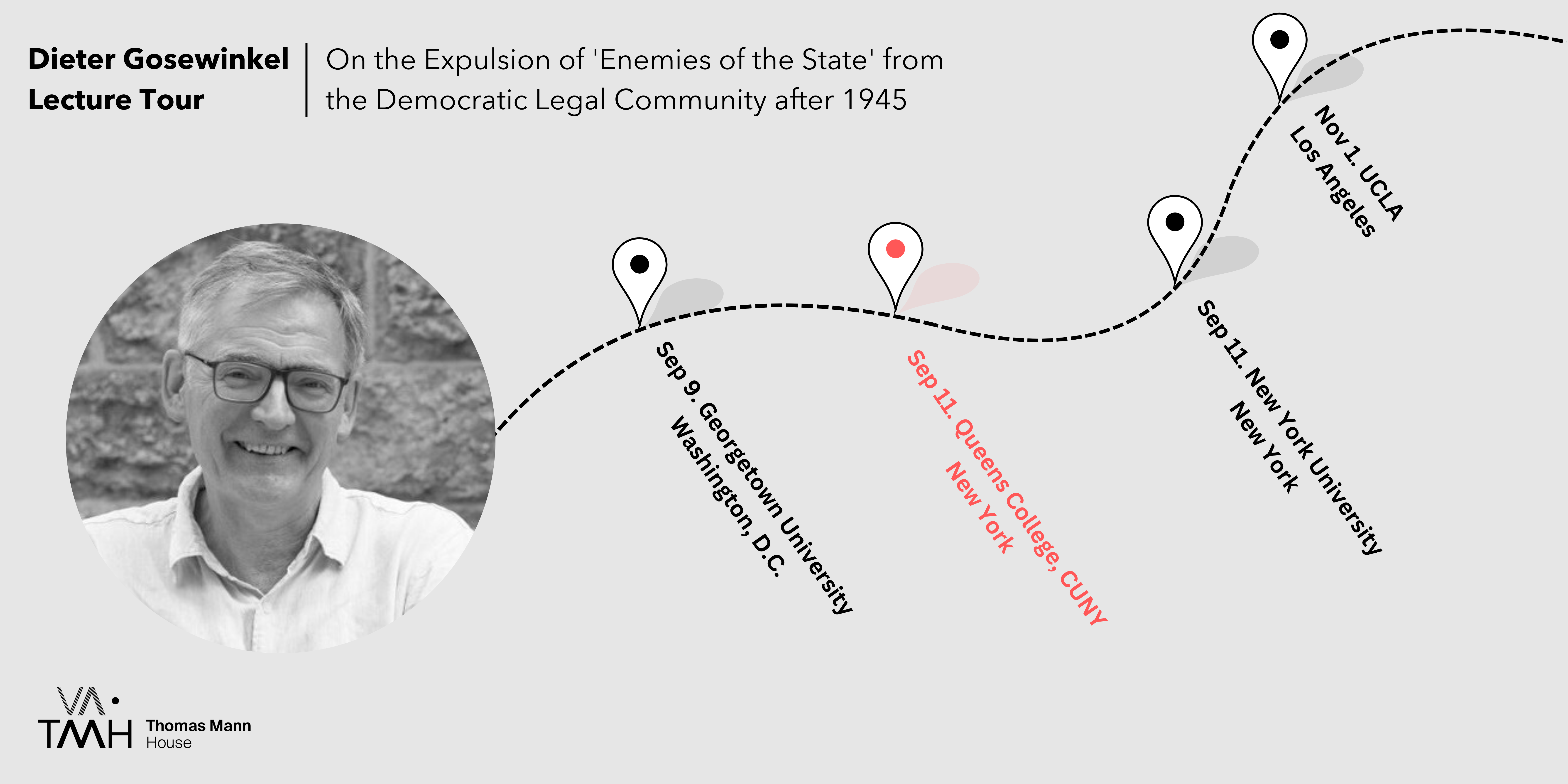
Information
During his Fellowship at the Thomas Mann House, historian Dieter Gosewinkel is conducting academic research in Los Angeles, Washington D.C., and New York for a publication project on the topic of "Denationalize & Kill. On the Expulsion of 'Enemies of the State' from the Democratic Legal Community after 1945.“ In September 2024, he will present and discuss his research with academic partners in the U.S., and conduct in-depth interviews with experts on the subject. His research concerns the vulnerability of democracy from within: the abandonment of its constitutional core in favor of a hoped-for gain in security. To what extent does the commitment to the law distinguish democracies from dictatorships in the fight against "enemies of the state?" The United States, the oldest republican constitutional state, serves as the world's most important model for this.
Participant

Dieter Gosewinkel is a historian and lawyer whose research focuses on European modern history and the history of citizenship, civil society, constitutional law, and European thought. From 2011 to 2021, he was co-director of the Center for Global Constitutionalism at the WZB Berlin Social Science Center, and is currently a Senior Research Fellow at the Hamburg Institute for Social Research. He also held a number of fellowships, including at the European University Institute in Florence, the Institut d'études avancées de Paris, and the University of Oxford. He has taught at Freie Universität Berlin, Sciences Po, Paris, and others.
Partners
The lecture tour is organized with Queens College (CUNY), Georgetown University, New York University, and UCLA.
Lecture by Johannes Gerschewski at Tulane University: Murphy Seminar in Political Science
Tulane University (6823 St. Charles Avenue New Orleans, LA 70118)
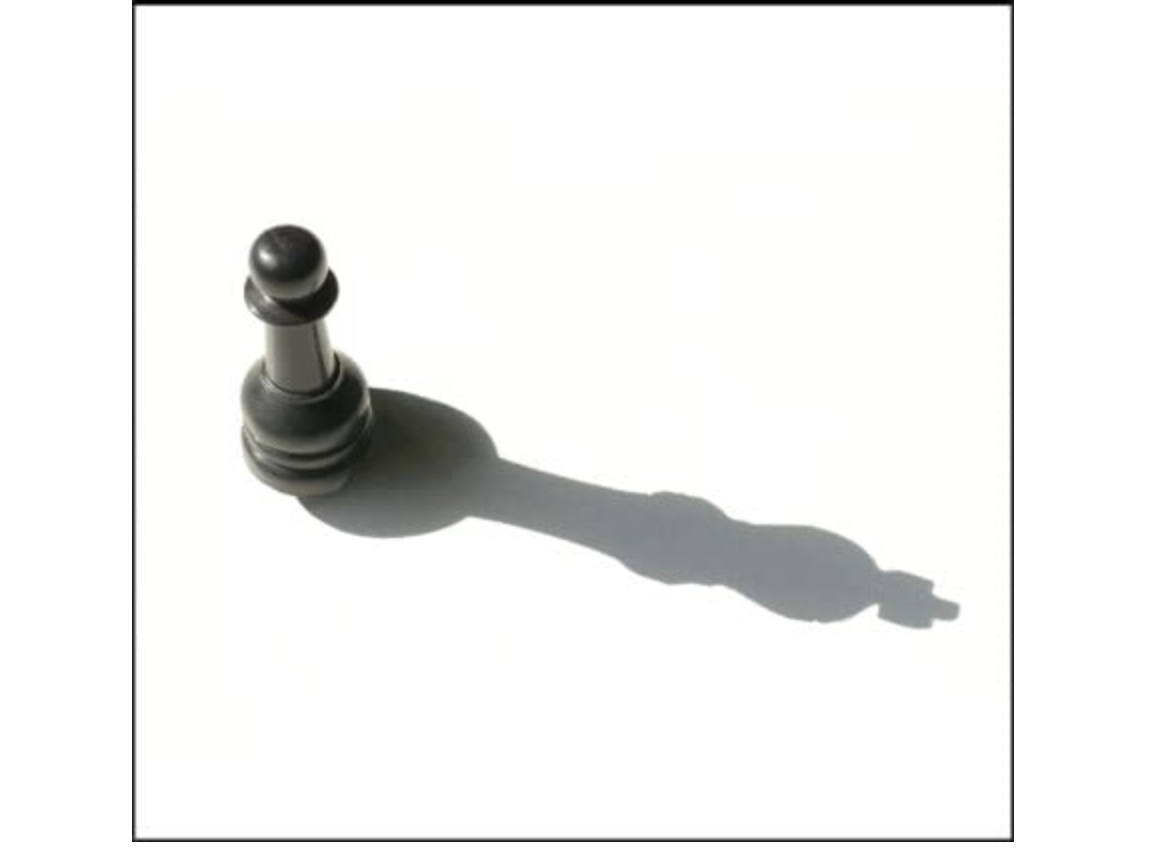
Information
Participant
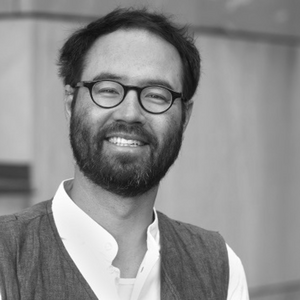
Johannes Gerschewski is a research fellow at the WZB Berlin Social Science Center and coordinates the work of the Theory Network at the Cluster of Excellence “Contestations of the Liberal Script (SCRIPTS).” He has published in academic journals including American Political Science Review, Perspectives on Politics, and Comparative Political Studies. His book on The Two Logics of Autocratic Rule was published in April 2023 by Cambridge University Press.
Partner
The talk is organized with Tulane University.
Student Council on "Democracy and Vulnerability" – with John E. Echohawk
Online
Information
The Student Council consists of a team of highly engaged, talented, and diverse undergraduate and graduate students who invite prominent guest speakers to discuss topics relating to society, politics, culture, and art. In conversation with academics, journalists, politicians, and artists, the students will explore the various threats to democratic institutions and principles worldwide, as well as strategies to potentially overcome these threats.
RSVP here!
Participant
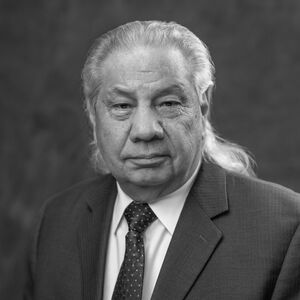
The guest speaker for our September program is John E. Echohawk, Pawnee, the Executive Director of the Native American Rights Fund. He was the first graduate of the University of New Mexico’s special program to train Indian lawyers and was a founding member of the American Indian Law Students Association while in law school. John has been with NARF since its inception in 1970, having served continuously as Executive Director since 1977. He has been recognized as one of the 100 most influential lawyers in America by the National Law Journal and has received numerous service awards and other recognition for his leadership in the Indian law field including the 2023 Thurgood Marshall Award from the American Bar Association. He serves on the Boards of the Association on American Indian Affairs, the Indigenous Language Institute, the Natural Resources Defense Council, the Grand Canyon Trust, the Native Ways Federation, the Water Foundation, the Keystone Policy Center, and the National Center for American Indian Enterprise Development.
Watch our August interview with Professor of Indian Politics at Georgetown University, Irfan Nooruddin.
You can watch previous episodes on YouTube, listen to the recordings on dublab radio, or read our students' recap on the Thomas Mann House blog.
Meet our 2024 Student Council

Sara Abrahamsson is a fourth-year student at UCLA studying Art History and French. As a culmination of her artistic and academic interest in political graphics, Sara is currently writing her senior thesis paper on the internationalist poster art of post-revolutionary Cuba. Upon graduating, she plans to continue working in museums before pursuing graduate studies in Art History or Art Conservation.
Amy Cabrales is a First-Generation fourth-year undergraduate student at UCLA, studying Sociology and the Russian Language. She is a Mexican-American, Los Angeles native born in Lynwood, California. Her career interests include cross-cultural education via museum work or language instruction and immigrant resettlement, while her academic interests include immigrant integration and self-identity across immigrant generations. She is anticipating returning to Almaty, Kazakhstan for the 2024-25 academic year to inform these interests and advance her Russian proficiency.
Elsa Coony is a fourth-year student at the University of California, Los Angeles double majoring in Global Studies and German. She has previously worked at the United States Holocaust Memorial Museum as both a docent and translator and is excited to join this year's council. In the future, she hopes to pursue a career in international development.
Biruke Dix is currently a 2nd year student at UCLA studying Applied Mathematics. He joined the Wende Student Council in 2024 and is deeply invested in the ever-changing properties of art as well as social habits. He hopes that he can create language and conversation that promotes the spread of cultural shifts and social justice.
Matthew Jones is a third-year PhD student in Claremont Graduate University’s Cultural Studies and Museum Studies program. His research currently explores how sites connected to authoritarian regimes function as pilgrimage destinations and what strategies states and institutions employ to reduce extremist attachment at these sites. He is thrilled to continue his training with the Wende Museum through this collaboration with the Thomas Mann House.
Emma Larson is a master's student at Columbia University's Harriman Institute of Russian, Eurasian, and Eastern European Studies. There, she focuses on the gender, social, and political history of Central Asia. Before starting at Columbia, Emma taught English in Kazakhstan with the Fulbright Program. She graduated from Williams College with degrees in History and Russian in 2021.
Zora Nelson is a current undergraduate student at New York University, where she is studying Harp Performance and Media, Culture, and Communication. As an east coaster born and raised in Philadelphia, Pennsylvania, she discovered the Wende Museum in the summer of 2022 and is honored to be a part of the council. With a passion for writing, Zora sees a future in storytelling to promote social justice.
Lexi Tooley is a current sophomore at the University of Pennsylvania majoring in Political Science and Art History, minoring in Chinese Language and Culture. She is originally from Los Angeles, California, and attended the Archer School for Girls. Lexi has been working with the Wende Museum for the past 2 years. She looks forward to continuing the search for truth and examining the vulnerability of democracy through this program!
Partners
The event series is a collaboration with the Wende Museum Culver City, dublab and the Thomas Mann House Los Angeles.


Xiu Xiu in Conversation with Aida Baghernejad
dublab studios (1035 W 24th St, Los Angeles, CA 90007)

Information
Join us for this free in-person listening session with Jamie Stewart of the renowned band Xiu Xiu in conversation with 2024 Thomas Mann Fellow and music critic Aida Baghernejad at dublab studios organized by the Thomas Mann House Los Angeles!
Xiu Xiu is an experimental band formed in 2002 by Jamie Stewart in San Jose, California. The band's music is characterized by its intense emotional content, blending elements of post-punk, noise rock, experimental pop, and industrial music. Xiu Xiu is known for its raw and often confrontational lyrics, exploring themes like trauma, despair, love, and politics. The band's sound is distinctive, often featuring unconventional song structures, dissonant melodies, and a wide range of instrumentation, including electronics, strings, and percussion. Their style can be described as challenging and boundary-pushing, often incorporating harsh noise and contrasting it with moments of delicate beauty. Xiu Xiu's work is also marked by its collaborative nature, with various musicians contributing over the years, but Jamie Stewart has remained the constant creative force behind the project. The band's prolific output includes numerous albums, EPs, and collaborations, reflecting their evolving and experimental approach to music. Currently, the line-up consists of multi-instrumentalists Stewart, Angela Seo, and percussionist David Kendrick. The band's name comes from the Chinese film Xiu Xiu: The Sent Down Girl, which has influenced the sound of their music, according to Stewart.
Participants

Aida Baghernejad is a journalist who studied media studies in Berlin, Barcelona, and London. Her work focuses on how cultural products such as music, film, and social media content influence the socio-political state of the world. In addition to numerous contributions for Die Zeit, Der Tagesspiegel, Missy Magazine, and others, she also co-hosts the podcast 55 Voices for Democracy, a collaboration between the Thomas Mann House, the Goethe-Institut, dublab radio, and the Los Angeles Review of Books.
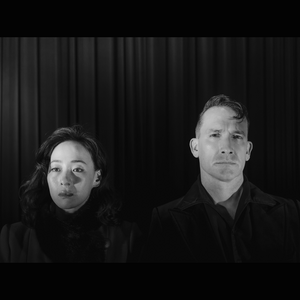
Jamie Stewart is an American musician and writer best known as the principal writer, performer and engineer in the experimental band Xiu Xiu.
Partner
An event by the Thomas Mann House Los Angeles in Collaboration with dublab studios.

Darius Milhaud: All the Musics of the World
Brown University, Grant Recital Hall (105 Benevolent St, Providence, RI 02906, United States)

Information
DARIUS MILHAUD: ALL THE MUSICS OF THE WORLD commemorates the 50th anniversary of composer Darius Milhaud’s death. Sponsored by the Scheuer Fund for Judaic Studies, Ruth and Joseph Moskow Endowment in Judaic Studies. Cosponsors include Brown’s Department of Music and German Studies as well as the Rhode Island School of Design, and the Neuer Musikverein Berlin. The event is co-presented by the Thomas Mann House as part of our concert and conversation series Opera & Democracy.
The focus will be the opera Esther de Carpentras, based on a 17th-century stage play about the biblical heroine. The event will open with a round table discussion of Milhaud’s music, life, and identity, followed by a video animation interpreting Esther de Carpentras. It will conclude with a chamber music concert including excerpts of the opera and other compositions.
Program
The Brown panel discussion features Gayle Murchison (William and Mary College), Edwin Seroussi (Hebrew University of Jerusalem and Dartmouth College), and Samuel Torjman Thomas (City University of New York, Hunter and John Jay Colleges), and is chaired by Katharina Galor (Brown University). Questions of Jewish identity accompany the issue of how Milhaud’s music shaped the musical landscapes of Germany, France, and the USA. It engages questions of antisemitism, racism, and gender; of Esther as a proto-feminist; Weimar Germany’s fertile ground for modernist music; the sudden shift towards outlawing “Jewish” and “Black” music, art, and lives in the context of Nazi Germany; the impact of American jazz and culture on Milhaud; the relationship between liturgical music and Milhaud’s work; the dialogue between Ashkenazi and Sephardi, between European and Middle Eastern liturgies; between Jews and Christians; the parallels between cantorial music and jazz; and finally Milhaud’s musical and artistic legacy internationally.
A short film Stalk by renowned animation artist Steven Subotnick (Rhode Island School of Design) interpreting Esther de Carpentras, has been created especially for the 50th anniversary of Milhaud's death. It examines the opera’s biblical, medieval, and modern heritage from a contemporary perspective. The screening will be introduced by Katharina Galor (Brown University).
Light refreshments will be served.
In collaboration with Brown pianist Saleem Ashkar, and violist Consuelo Sherba (Department of Music, Brown University), Berlin-based pianist Michal Friedländer (Neuer Musikverein Berlin) is in charge of all musical aspects of the production. Performers include mezzo-soprano Hagar Sharvit (Neuer Musikverein Berlin), tenor Daniel McGrew, violinist Lois Finkel (Brown University), violonist Mina Lavcheva (Rhode Island Philharmonic), cellist Daniel Harp (Brown University), and pianist Angeline Sun (Brown University). The program includes La Creation du Monde, excerpts from Milhaud's Esther de Carpentras, and his famous Scaramouche.
Partners
An event hosted by the Program in Judaic Studies at Brown University and co-presented by the Thomas Mann House, Los Angeles. Sponsored by the Scheuer Fund for Judaic Studies and the Ruth And Joseph Moskow Endowment in Judaic Studies at Brown University. Cosponsored by the Department of Music, the Center for Middle East Studies, the Department of German Studies, the Department of French and Francophone Studies, the Department of Religious Studies, the Office of the Chaplains and Religious Life at Brown University, the Rhode Island School of Design, the Neuer Musikverein Berlin, L’association des amis de Darius Milhaud, and Les amis de la synagogue de Cavaillon.

Spatial Hour series with Ulrike Klinger: Generative AI, Social Media, and the Super Election Year of 2024
University of California, Santa Barbara (Phelps 3512, CA 93106-4060)

Info
Publicly available tools like ChatGPT, Dall.E, or Midjourney enable internet users to create texts and images from prompts without programming skills or expert knowledge. They also add to the strategic arsenal of political campaigns, for instance by providing cheap visual content without copyright issues. In an increasingly visual campaign environment on platforms like Instagram or TikTok, politicians and political parties use these images to illustrate their ideologies-and, potentially, to create and spread disinformation.
Like many technologies before, the rise of generative Al is accompanied by fierce public debates along the lines of "glory" and "doom", various dichotomous predictions ranging from existential fears to instrumental concerns. With regards to election campaigns, Al arrives in times of democratic backsliding and an epistemic crisis, feeding into worries about the future of public spheres and citizen's perceptions of a shared reality.
Can the widely available Al tools, in combination with the (so far) almost unregulated distributive power of social media platforms, unleash the perfect storm especially in a year when more than half of the world's population has been called to vote in over 60 elections?
Participant
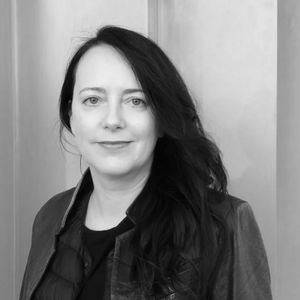
Ulrike Klinger is a communication scientist and since 2020 Chair of Digital Democracy and member of the Board of Directors of the European New School of Digital Studies at the European University Viadrina in Frankfurt/Oder. She is an associate researcher at the Weizenbaum Institute for the Networked Society in Berlin, where she led the research group “News, Campaigns, and the Rationality of Public Discourse” until 2020. She researches digital political communication, technology and power, and the transformation of digital publics.
Partner
The talk is organized by UC Santa Barbara.
Elections 2024: Freedoms and Flashpoints - Elections Around the Globe in 2024
Bunche Hall, UCLA (11282 Portola Plaza, Los Angeles, CA 90095, USA)

Info
As part of the Democracy, Freedom and Truth Series of UCLA's International Institute, the panel discussion Freedoms and Flashpoints: Elections Around the Globe in 2024 invites four experts, among them 2024 Thomas Mann Fellow Ulrike Klinger, to speak about international elections this year.
Four panelists will each speak briefly about important elections in India, Mexico, Latin America and the European Union, respectively, and the issues that these elections have brought to the fore. The audience will then be invited to participate in a larger conversation, considering what these and other electoral flashpoints reveal about the current shifting world order in advance of the U.S. presidential election in November 2024.
Participants
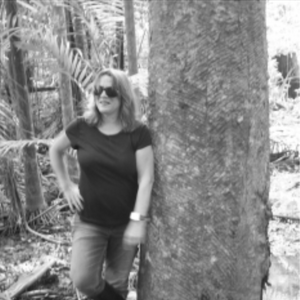
Susanna Hecht has academic appointments in the Luskin School of Public Affairs and the Institute of the Environment and Sustainability at UCLA. She also serves as director of the Center for Brazilian Studies of the Latin American Institute. She is proficient in numerous languages and her publications focus focused on such far-reaching topics as migration, urbanization, the Amazon and natural resources in South America.

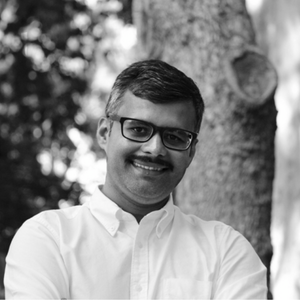
Tejas Parasher, assistant professor of political theory, has a joint appointment in the department of political science and the International Institute at UCLA. He is the author of “Radical Democracy in Modern Indian Political Thought” (Cambridge, 2023). His research explores the political philosophy of collective self-determination, political representation and statehood.

Gaspar Rivera-Salgado is director of the UCLA Center for Mexican Studies and project director at the UCLA Labor Center, where he is a member of the core faculty in the UCLA labor studies program. He directs the Global Labor Initiative with an emphasis on cross-border, worker-to-worker collaborations between the U.S., Mexico and Canada.
Partners
The panel discussion is organized by UCLA International Institute and UCLA Department of Education & Information Studies.

Rethinking Democracy: Megatrends and Their Challenges in Germany and Beyond
Online

Information
On the occasion of the exhibition Thomas Mann: Democracy Will Win! displayed at Lafayette College, 2024 Thomas Mann Fellow, political scientist Andrea Römmele will give a lecture on democracy, megatrends and their challenges through a transatlantic lens.
Megatrends shape our societies: climate change, urbanization, digitalization, and migration, to name just a few. What are the challenges of these megatrends for today's democracies? How can democratic goverments tackle them? Andrea Römmele focuses on Germany to analyze how current political parties cope with these challenges. How do we explain the growing support for the far-right Alternative for Germany (AfD), and are there parallels to the United States?
Participant

Andrea Römmele is Professor of Political Communication and Dean and Vice President at the Hertie School in Berlin. She holds a master’s degree from San Francisco State University, a doctorate from the University of Heidelberg, and a habilitation from Freie Universität Berlin. Römmele’s research interests include digital democracy, elections, and electoral campaigns and parties. For Römmele, a central issue is mediating between science and practice. One of her current projects is the “Democracy Report,” developed jointly with ARD, which she moderates herself.
Partners
The talk is organized by the Max Kade Center for German Studies, Lafayette College.
Opera & Democracy: bauhaus music 2024
the temporary bauhaus-archiv (Knesebeckstraße 1, 10623 Berlin)

Information
Freedom is more relevant than ever before and is the central theme of the 2024 “Bauhaus Music” festival. With a spotlight on “exile”, the three-day festival will highlight artistic and political positions and forms of expression surrounding the concept of freedom, past and present. The moderated concerts include works by Arnold Schönberg, Kurt Schwitters, Johann Sebastian Bach, Béla Bartók, Alban Berg, Stefan Wolpe, Cathy Milliken and Ruth Crawford Seeger. Numerous artists and renowned soloists like Claudia Barainsky, Kolja Blacher, Gunnar Brandt-Sigurdsson and Jocelyn B. Smith, and the Deutsches Kammerorchester Berlin will come together over three days to explore the musical life and work at the Bauhaus.
Programs
Piano: Michal Friedländer
Bariton: Noam Heinz
Sopran: Alma Sadé
Piano: Cathy Milliken
Vocals: Jocelyn B. Smith
Lead: PD Dr. Kai Hinrich Müller
Moderation: Cathy Milliken, Kai Hinrich Müller, Karl-Heinz Steffens
Partner
An event in cooperation with the bauhaus-archiv
What Moves an Electorate? Political Narratives in a Polarized World
UCLA School of Law (385 Charles E Young Drive East, Los Angeles, CA 90095)
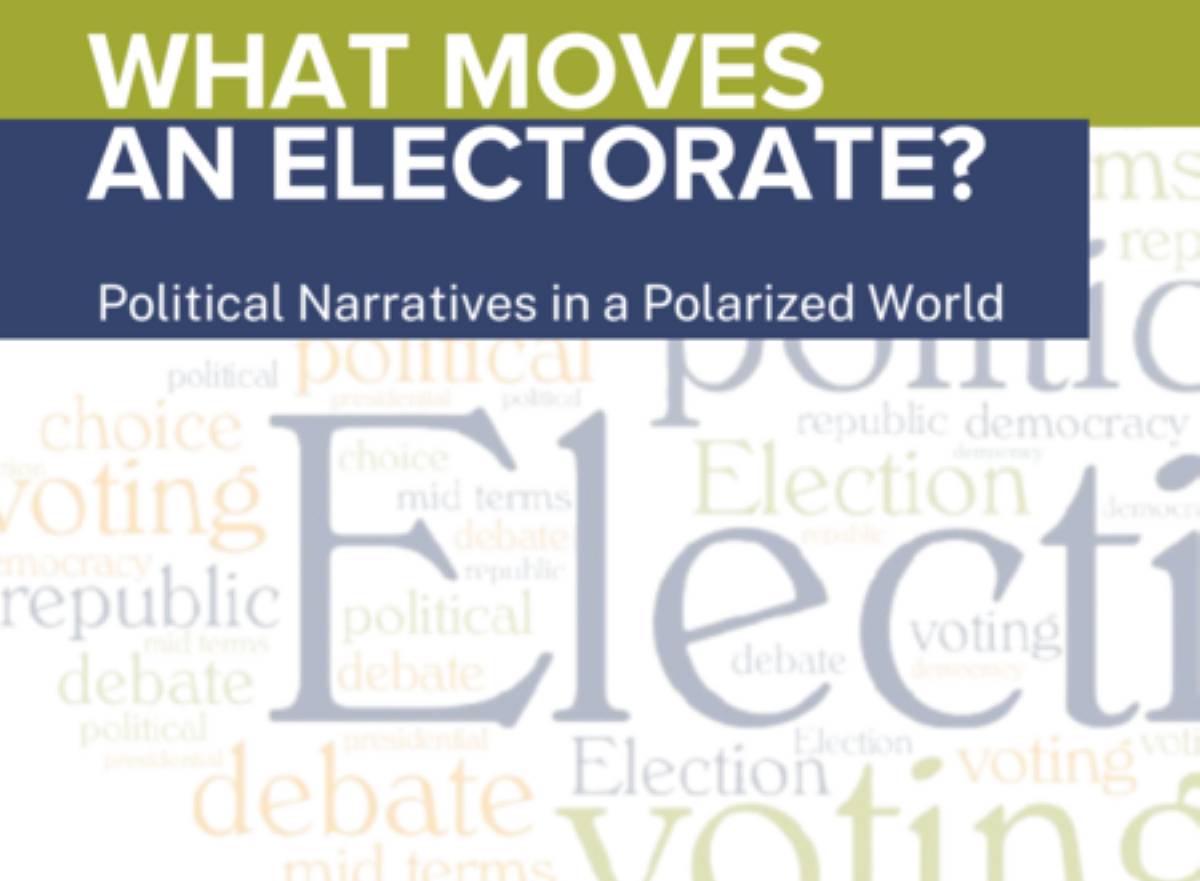
Information
2024 Thomas Mann Fellow, political scientist Andrea Römmele and Lynn Vavreck, Professor of American Politics and Public Policy at UCLA, discuss what moves the electoral needle in the current polarized political climate. The conversation is moderated by Alexandra Lieben, Deputy Director of the Ronald W. Burkle Center for International Relations.
Elections have shown that voters can move, between candidates but also to vote at all. Do we know what type of political messaging moves an electorate, what resonates, what persuades? It is an age-old question that has occupied campaign and communication strategists, politicians, political advisors, and media experts, among others, since political campaigning began. Celebrity endorsements are often courted and always gratefully received. But to what extent can endorsements by celebrities such as Taylor Swift, Dick Cheney or Liz Cheney actually move the needle?
In an environment where politics appear calcified, where communication is hampered by disinformation and by extreme polarization, where issues are wrapped up in questions of identity and personal values, both notoriously hard to change - what can make the difference? Is there something we can learn from recent elections elsewhere, such as in Europe? What are we not seeing, what are we not understanding?
Participants

Andrea Römmele is Professor of Political Communication and Dean and Vice President at the Hertie School in Berlin. She holds a master’s degree from San Francisco State University, a doctorate from the University of Heidelberg, and a habilitation from Freie Universität Berlin. Römmele’s research interests include digital democracy, elections, and electoral campaigns and parties. For Römmele, a central issue is mediating between science and practice. One of her current projects is the “Democracy Report,” developed jointly with ARD, which she moderates herself. During her Thomas Mann Fellowship in Los Angeles, she worked on megatrends and democracy. Her most recent book Demokratie Neu Denken (Rethinking Democracy) was published in September 2024.
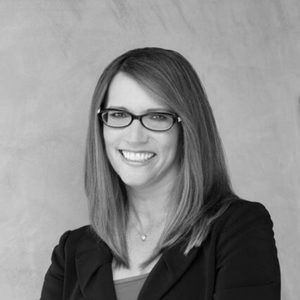
Lynn Vavreck, UCLA’s Marvin Hoffenberg Professor of American Politics and Public Policy, is an expert on campaigns, elections and public opinion, with an emphasis on how candidate behavior affects voters. She has researched campaign advertising, survey methods, politics and the media, and how the state of the economy affects elections. Vavreck is co-author of The Bitter End: The 2020 Presidential Campaign and the Challenge to American Democracy, which assessed why the campaign’s aftershocks will reverberate for decades to come. She is also the co-author of “Identity Crisis: The 2016 Presidential Campagin and the Battle for the Meaning of America. Both books drew observations and insights from Nationscape, a wide-ranging weekly public opinion survey of the American electorate for which Vavreck is a principal researcher.
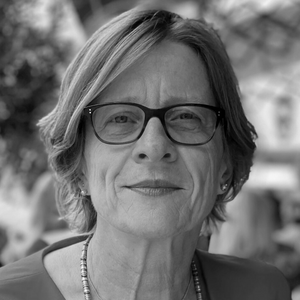
Alexandra Lieben is the Deputy Director of the Ronald W. Burkle Center for International Relations and an affiliated faculty member of the Promise Institute for Human Rights at the UCLA School of Law. A certified mediator, she teaches constructive communication, alternative dispute resolution, public dialogue, cultural competency, international conflict resolution, and community and economic development to undergraduate and graduate students at UCLA.
Partners
The talk is organized by the UCLA Burkle Center for International Relations and the UCLA Luskin School of Public Affairs Department of Public Policy.
Threats to Democracies – Media and the 2024 Elections in Transatlantic Perspective
University of North Carolina at Chapel Hill (Manning Hall, 216 Lenoir Dr Suite 100, Chapel Hill, NC 27599)
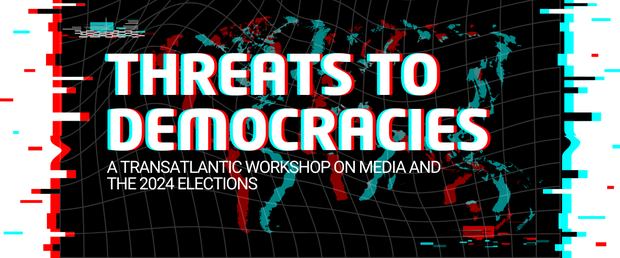
Information
On October 23 & 24, the Center for Information, Technology, and Public Life of the University of North Carolina at Chapel Hill is hosting the two-day event Threats to Democracies: A Transatlantic Workshop on Media and the 2024 Elections, in partnership with UNC Global Affairs, Thomas Mann House Los Angeles, and the UNC Center for European Studies, and co-sponsored by the UNC School of Information and Library Science. This event will bring together renowned experts to discuss the critical challenges to democracies in the U.S. and Europe, with a particular focus on media, technology, and election dynamics.
We are at a pivotal moment for global democracies. Not since the early 20th century have consolidated democracies in Europe and North America — and well beyond — faced serious threats to their legitimacy from external and internal actors. Externally, this includes information warfare conducted by non-democratic powers seeking to undermine democratic and liberal consensus through propaganda and mis- and disinformation. Internally, in countries from the United States and Italy to Germany and France, it includes the rise of anti-democratic leaders, parties, and movements, often based on nativist, exclusionary identitarian politics in backlash to migration and strides towards equality of historically non-dominant racial, ethnic, and religious groups.
To date, two bodies of largely separate academic scholarship have analyzed these dynamics — and developed interventions to combat them. On the one hand, scholars of political institutions and political psychology study parties, coalitions, and public opinion, including through comparative methods, while often failing to address rapid changes in media in the context of democratic backsliding. On the other, communication and media scholars have extensively analyzed media and digital propaganda, mis/disinformation, social media polarization, and networked far right movements, while rarely linking these things to political institutions.
The aim of this initiative is to bring these disparate threads of research together in order to more comprehensively understand and analyze democratic threats — and invest in the political institutions democracies rely on. Above all, we seek to develop public-facing research that informs public debate, media and platform policies, and interventions from civil society and policymakers.
Please note: The workshop is by invitation only, but all are welcome to attend the Fireside Chat on Thursday at 5pm. Find more information here.
Programs
Wednesday, October 23
This panel explores the new challenges democracies on both sides of the Atlantic face from media and technological changes, with an emphasis on elections.
Moderator:
- Daniel Kreiss, Principal Investigator, CITAP & Professor, UNC Hussman School of Journalism and Media
Panelists:
-
Francesca Tripodi, Principal Investigator, CITAP & Associate Professor, UNC School of Information and Library Science
-
Guido Zurstiege, Professor for Media Studies, University of Tübingen
-
Tobias Wilke, Assistant Professor of German, UNC Department of Germanic & Slavic Languages & Literatures
-
Gregor Asmolov, Lecturer in Digital Entrepreneurship and Marketing, King's College London
-
Jianing Li, Assistant Professor of Communication, Rutgers University Department of Communication.
This panel focuses on how social cleavages around race, ethnicity, religion, and immigration are weaponized in political narratives and elections.
Moderator:
- Ulrike Klinger, Professor for Digital Democracy, European New School of Digital Studies
Panelists:
-
Meredith Clark, Principal Investigator, CITAP & Associate Professor, UNC Hussman School of Journalism and Media
-
Jen Schradie, Associate Professor, Center for Research on Social Inequalities, Sciences Po
-
Priscilla Layne, Director of the UNC Center for European Studies & Professor of German, UNC Department of Germanic & Slavic Languages & Literatures
-
Sarah J. Jackson, Associate Professor, Annenberg School for Communication, University of Pennsylvania & Co-Director, Media, Inequality & Change Center
-
Frank Baumgartner, Professor of Political Science, UNC Department of Political Science
-
Robert Jenkins, Teaching Professor, UNC Department of Political Science
Thursday, October 24
This panel examines the resurgence of authoritarianism and anti-democratic politics, with a focus on how media and technology facilitate these trends.
Moderator:
- Ulrike Klinger, Professor for Digital Democracy, European New School of Digital Studies
Panelists:
-
Alice Marwick, Director of Research, Data & Society
-
Johannes Gerschweski, Research Fellow, Department of Global Governance, WZB Berlin Social Science Center
-
Jakob Norberg, Professor of German Studies, Duke University
-
Christiane Lemke, Emerita Professor of Political Science and International Relations, UNC Department of Political Science
-
Annett Heft, Research Project Lead, Institute for Media and Communication Studies, Freie Universität Berlin
This panel addresses the role of media in increasing polarization, disinformation, and division during election campaigns.
Moderator:
-
Daniel Kreiss, Principal Investigator, CITAP & Professor, UNC Hussman School of Journalism and Media
Panelists:
-
Shannon McGregor, Principal Investigator, CITAP & Associate Professor, UNC Hussman School of Journalism and Media
-
Frank Esser, Professor of International & Comparative Media Research, Universität Zürich.
-
Pola Lehmann, Research Fellow, Center for Civil Society Research, WZB Berlin Social Science Center
-
Stanislav Shvabrin, Russian Program Director & Associate Professor of Russian, UNC Department of Germanic & Slavic Languages & Literatures
-
Radik Lapushin, Associate Professor of Russian Literature, UNC Department of Germanic & Slavic Languages & Literatures
- Chad Bryant, Professor, UNC Department of History
Freedom Forum Conference Center, Carroll Hall
A fireside chat on “Media Coverage of the 2024 U.S. Presidential Election: The View from Germany and the United States”.
With:
- Tressie McMillan Cottom, a New York Times columnist, Principal Investigator, CITAP & Associate Professor, UNC School of Information and Library Science
- Juliane Schäuble, U.S. Correspondent, Tagesspiegel Newspaper
Moderated by:
- Daniel Kreiss, Principal Investigator, CITAP & Professor, UNC Hussman School of Journalism and Media
RSVP here!
Partners
UNC Center for Information, Technology, and Public Life, in partnership with UNC Global Affairs, Thomas Mann House Los Angeles, and the UNC Center for European Studies, and co-sponsored by the UNC School of Information and Library Science.

Student Council on "Democracy and Vulnerability"
Wende Museum (10808 Culver Blvd Culver City CA 90230)

Information
In a special in-person episode this fall, join the Wende Museum, the Thomas Mann House, and dublab radio for the tenth program in the series on the current state of democracies at the Wende Museum's new A-Frame Theater on October 26! How should a democracy deal with its own vulnerabilities? How do democracies need to evolve to deal successfully with increasing global levels of ecological crisis, geopolitical tensions, economic disparities, and culture wars? How much vulnerability can a democracy endure? The guest speakers for our special in-person October program are Jonathan Homola and Marla Stone; they will be discussing the global rise of far-right populism.
The Student Council consists of a team of highly engaged, talented, and diverse undergraduate and graduate students who invite prominent guest speakers to discuss topics relating to society, politics, culture, and art. In conversation with academics, journalists, politicians, and artists, the students will explore the various threats to democratic institutions and principles worldwide, as well as strategies to potentially overcome these threats.
Participants
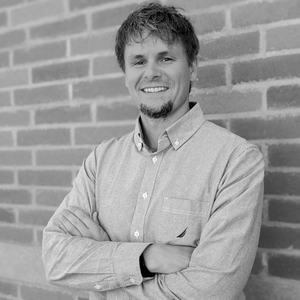
Jonathan Homola is an Assistant Professor in the Department of Political Science at the University of California, Los Angeles. Most of his research deals with questions of representation and electoral preferences in Western democracies. Among his main fields of interest are xenophobia and support for right-wing extremism.
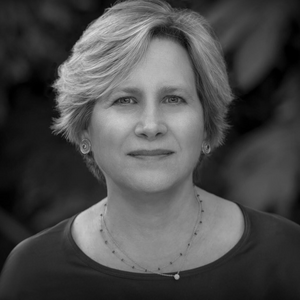
Marla Stone is professor of history at Occidental College and specializes in the history of fascism and in questions of dictatorship and genocide in the modern era. Stone’s work emphasizes the relationship among culture, politics, and the state in the 20th century. She has published on a variety of topics in European history, including Italian Fascist cultural politics, anti-communism, the contemporary far right in Europe, Italian Holocaust memory culture, and the continuities and ruptures between historic fascism and its contemporary manifestations. She has taught at Occidental College since 1994 and received her M.A. and Ph.D. from Princeton University.
Previous Episodes
Find previous interviews on YouTube, as podcasts on dublab radio or written recaps by our students on the Thomas Mann House blog.
All members

Sara Abrahamsson is a fourth-year student at UCLA studying Art History and French. As a culmination of her artistic and academic interest in political graphics, Sara is currently writing her senior thesis paper on the internationalist poster art of post-revolutionary Cuba. Upon graduating, she plans to continue working in museums before pursuing graduate studies in Art History or Art Conservation.
Amy Cabrales is a First-Generation fourth-year undergraduate student at UCLA, studying Sociology and the Russian Language. She is a Mexican-American, Los Angeles native born in Lynwood, California. Her career interests include cross-cultural education via museum work or language instruction and immigrant resettlement, while her academic interests include immigrant integration and self-identity across immigrant generations. She is anticipating returning to Almaty, Kazakhstan for the 2024-25 academic year to inform these interests and advance her Russian proficiency.
Elsa Coony is a fourth-year student at the University of California, Los Angeles double majoring in Global Studies and German. She has previously worked at the United States Holocaust Memorial Museum as both a docent and translator and is excited to join this year's council. In the future, she hopes to pursue a career in international development.
Biruke Dix is currently a 2nd year student at UCLA studying Applied Mathematics. He joined the Wende Student Council in 2024 and is deeply invested in the ever-changing properties of art as well as social habits. He hopes that he can create language and conversation that promotes the spread of cultural shifts and social justice.
Matthew Jones is a third-year PhD student in Claremont Graduate University’s Cultural Studies and Museum Studies program. His research currently explores how sites connected to authoritarian regimes function as pilgrimage destinations and what strategies states and institutions employ to reduce extremist attachment at these sites. He is thrilled to continue his training with the Wende Museum through this collaboration with the Thomas Mann House.
Emma Larson is a master's student at Columbia University's Harriman Institute of Russian, Eurasian, and Eastern European Studies. There, she focuses on the gender, social, and political history of Central Asia. Before starting at Columbia, Emma taught English in Kazakhstan with the Fulbright Program. She graduated from Williams College with degrees in History and Russian in 2021.
Zora Nelson is a current undergraduate student at New York University, where she is studying Harp Performance and Media, Culture, and Communication. As an east coaster born and raised in Philadelphia, Pennsylvania, she discovered the Wende Museum in the summer of 2022 and is honored to be a part of the council. With a passion for writing, Zora sees a future in storytelling to promote social justice.
Lexi Tooley is a current sophomore at the University of Pennsylvania majoring in Political Science and Art History, minoring in Chinese Language and Culture. She is originally from Los Angeles, California, and attended the Archer School for Girls. Lexi has been working with the Wende Museum for the past 2 years. She looks forward to continuing the search for truth and examining the vulnerability of democracy through this program!
Partners
Solidarity and Compromise
Goethe-Institut Chicago (150 N Michigan Ave, Suite 420, Chicago IL 60601)
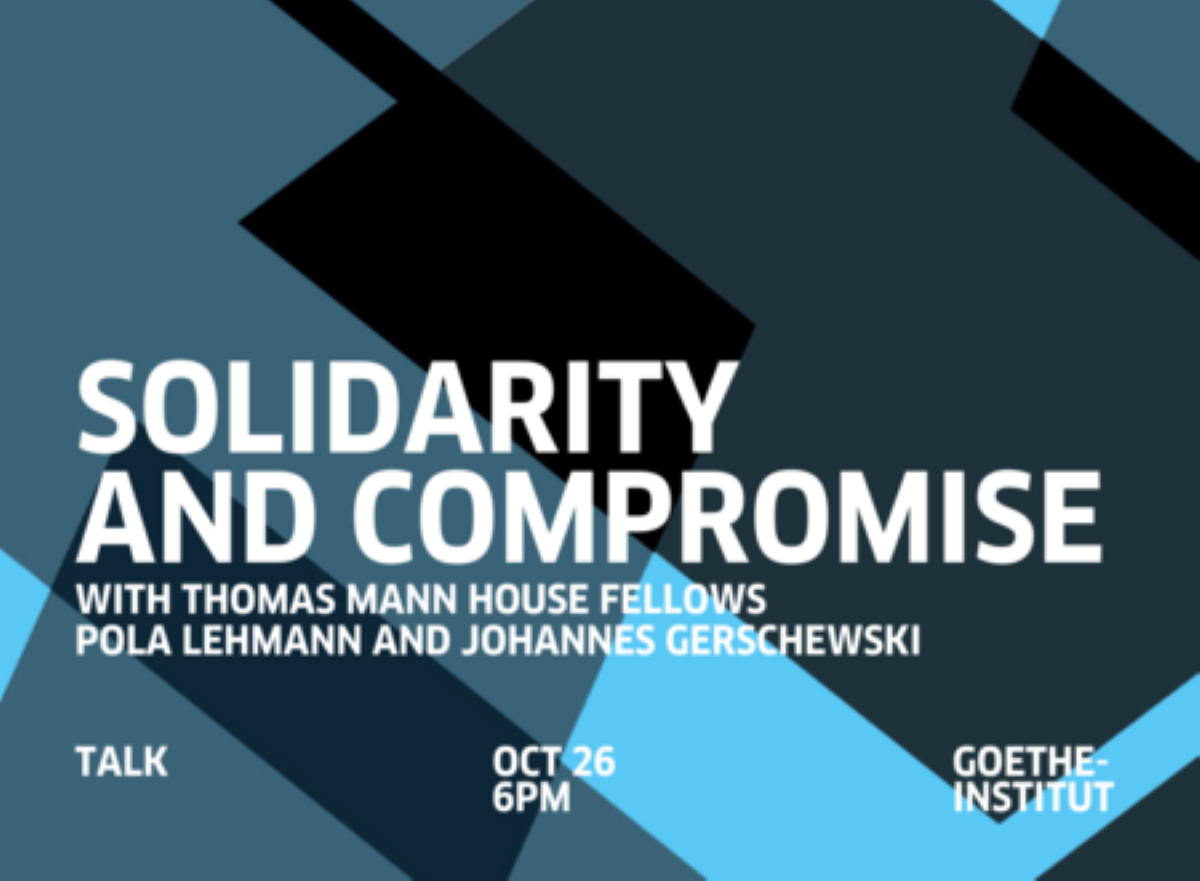
Information
Join the Goethe-Institut Chicago for this in-person discussion with Thomas Mann Fellows Pola Lehmann, Johannes Gerschewski and political scientist Jeffrey Winters who will explore the value of compromise in democratic societies.
Many democracies today are under pressure, both in countries with long established democracies, like the United States, as well as in new democracies, like Hungary and Poland. A very apparent symptom of these pressures is reflected in the way political debates are fought today. They become more and more heated and unforgiving, denying the other side to be a legitimate opponent in the debate. Discussions are being fueled by depicting the different sides as representing the right or the wrong answer, instead of presenting different but legitimate views to the issue at stake. What can keep societies together in these times and strengthen social cohesion? Solidarity can be one answer to this question.
Showing solidarity with another one’s cause can build ties between different groups in society. But solidarity is also very demanding, it requires not only to view the cause as legitimate but also as worthy. A less demanding solution is provided through political compromise. Compromise also requires to regard the other side as a legitimate representative, but one does not need to make a common cause out of it. The different sides can still disagree about the best solution to the given issue, but they respect each other views and act in the strong believe that striking a compromise between the different views, even though this means loss on both sides, is better than no compromise. But how can societies in such heated environments as we find them today create an atmosphere of mutual respect and legitimacy of the other side’s cause?
Participants

Johannes Gerschewski is a research fellow at the WZB Berlin Social Science Center and coordinates the work of the Theory Network at the Cluster of Excellence “Contestations of the Liberal Script (SCRIPTS).” He has published in academic journals including American Political Science Review, Perspectives on Politics, and Comparative Political Studies. His book on The Two Logics of Autocratic Rule was published in April 2023 by Cambridge University Press.
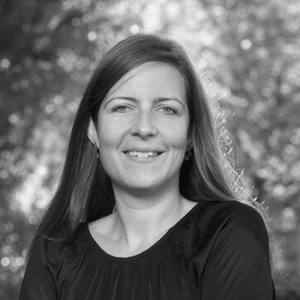
Pola Lehmann is a senior researcher at the WZB Berlin Social Science Center and co-director of the Manifesto Project. She studied administrative sciences at the Universities of Potsdam and Copenhagen. She studies democracy and democratic processes with a special focus on political parties, elections and political representation. In her dissertation, which won the Leibniz Dissertation Award in 2021, she investigated political representation and compromise in the German Bundestag.
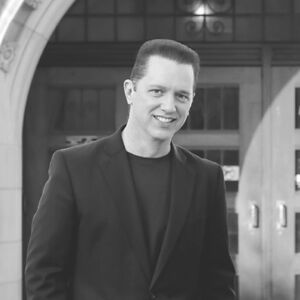
Jeffrey Winters is Professor and Director of the Equality Development and Globalization Studies program (EDGS), and past chair of the Political Science Department at Northwestern University. Prof. Winters specializes on oligarchs and elites and the role of wealth power and extreme economic inequality in a range of political systems. His forthcoming book Domination through Democracy: Why Oligarchs Win will be published by Penguin Random House. His earlier book, Oligarchy (Cambridge 2011), won APSA’s 2012 Gregory M. Luebbert Award for the Best Book in Comparative Politics. Prof. Winters also studies human rights, authoritarianism, and democratic transitions in post-colonial states. He has conducted extensive research in the region of Southeast Asia.
Partners
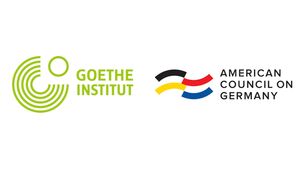
"Citizenship As Political Membership: A Fundamental Strand of 20th and 21st Century European History"
Scripps College, Hampton Room (1030 Columbia Avenue Claremont, CA 91711)

Information
As part of his 2024 Thomas Mann Fellowship, historian and lawyer Dieter Gosewinkel will give a lecture at Scripps College about the critical role of citizenship in 20th-century Europe as the primary marker of political affiliation.
In this talk, Dieter Gosewinkel discusses the importance of citizenship as the key form of political affiliation in 20th century Europe and how it remains central despite modern trends such as globalization and Europeanization. The importance attached to citizenship is what distinguishes the 20th century from previous historical periods and other forms of political affiliation (religious, party, ethnic, nation-state, and social class). With the democratization of political regimes, the expansion of participatory rights, the development of social welfare rights, and the increasing isolation of states from one another, citizenship began to grow in importance for the individual. Even the current processes of transnationalization, Europeanization, and globalization can bring about only gradual and inconsequential changes in the preeminence of citizenship, because the delineation of political membership and the distinction from non-membership remain the primary functions of the state, even as it increasingly loses its nation-state character.
Participant

Dieter Gosewinkel is a historian and lawyer whose research focuses on European modern history and the history of citizenship, civil society, constitutional law, and European thought. From 2011 to 2021, he was co-director of the Center for Global Constitutionalism at the WZB Berlin Social Science Center, and is currently a Senior Research Fellow at the Hamburg Institute for Social Research. He also held a number of fellowships, including at the European University Institute in Florence, the Institut d'études avancées de Paris, and the University of Oxford. He has taught at Freie Universität Berlin, Sciences Po, Paris, and others.
Partner
The lecture tour is organized with the European Union Center of California at Scripps College.
"Citizenship As Political Membership: A Fundamental Strand of 20th and 21st Century European History"
UCLA Department of Sociology (264 Haines Hall 375 Portola Plaza Los Angeles, CA 90095-1551)
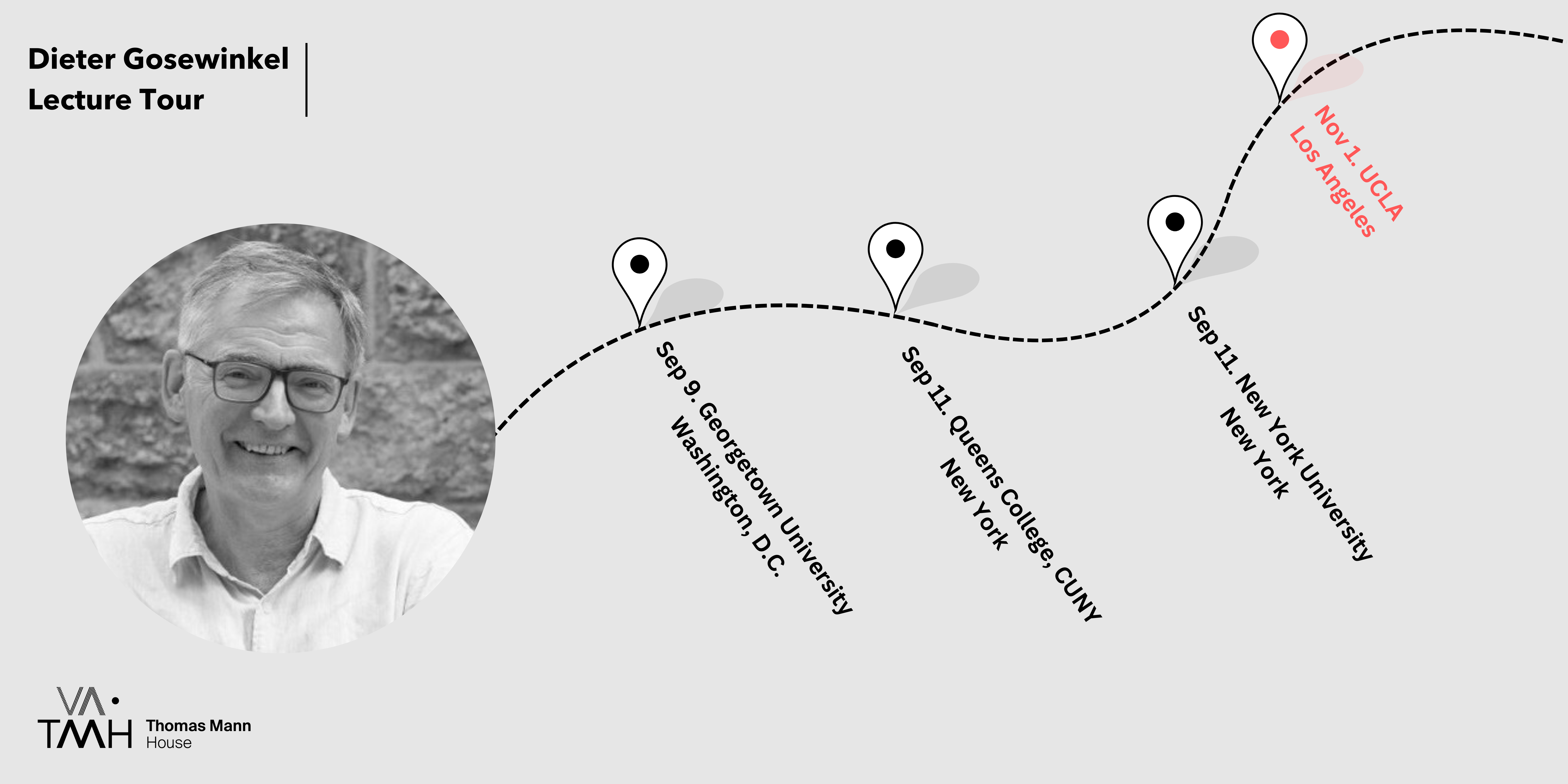
Information
As part of his 2024 Thomas Mann Fellowship, historian and lawyer Dieter Gosewinkel will give a lecture about the critical role of citizenship in 20th-century Europe as the primary marker of political affiliation. Professor Gosewinkel visited institutions such as Queens College (CUNY), Georgetown University, New York University, and UCLA.
In his lecture at UCLA, Dieter Gosewinkel discusses the importance of citizenship as the key form of political affiliation in 20th century Europe and how it remains central despite modern trends such as globalization and Europeanization. The importance attached to citizenship is what distinguishes the 20th century from previous historical periods and other forms of political affiliation (religious, party, ethnic, nation-state, and social class). With the democratization of political regimes, the expansion of participatory rights, the development of social welfare rights, and the increasing isolation of states from one another, citizenship began to grow in importance for the individual. Even the current processes of transnationalization, Europeanization, and globalization can bring about only gradual and inconsequential changes in the preeminence of citizenship, because the delineation of political membership and the distinction from non-membership remain the primary functions of the state, even as it increasingly loses its nation-state character.
Participant

Dieter Gosewinkel is a historian and lawyer whose research focuses on European modern history and the history of citizenship, civil society, constitutional law, and European thought. From 2011 to 2021, he was co-director of the Center for Global Constitutionalism at the WZB Berlin Social Science Center, and is currently a Senior Research Fellow at the Hamburg Institute for Social Research. He also held a number of fellowships, including at the European University Institute in Florence, the Institut d'études avancées de Paris, and the University of Oxford. He has taught at Freie Universität Berlin, Sciences Po, Paris, and others.
Partners
The lecture tour is organized with Queens College (CUNY), Georgetown University, New York University, and UCLA.
Media, Artificial Intelligence and the Vulnerabilities of Democracy
Thomas Mann House Los Angeles (1550 N San Remo Drive, Pacific Palisades, CA 90272)
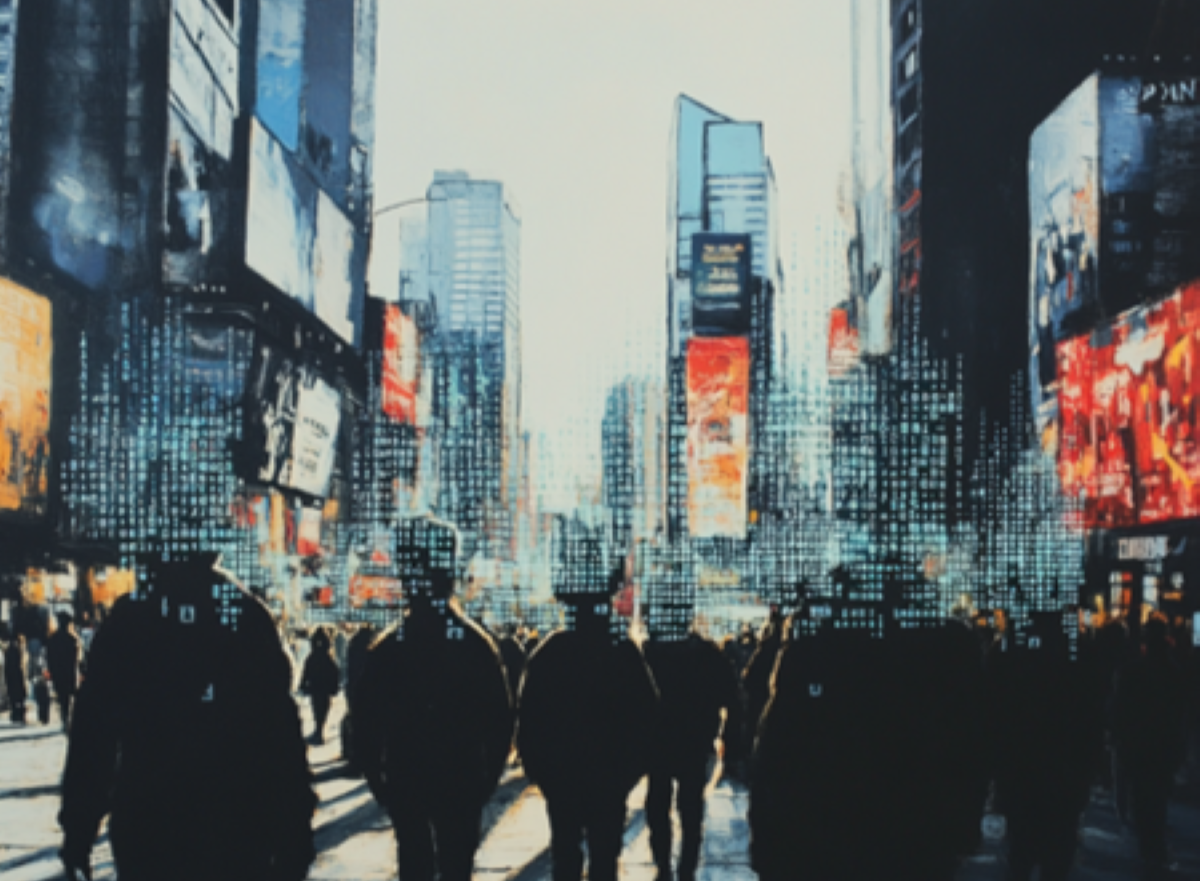
Information
Join the Thomas Mann House for this panel discussion convened by 2024 Thomas Mann Fellow, communication scientist Ulrike Klinger, with Julien Labarre, Assistant Professor of Political Science, CSU Dominguez Hills, Bruce Bimber, Distinguished Professor of Political Science, UC Santa Barbara, and Claes H. de Vreese, Distinguished Professor of Artificial Intelligence and Society, University of Amsterdam. The panelists will discuss the role of artificial intelligence and information in democracy from a transatlantic perspective.
The arrival of ChatGPT, Midjourney and Dall.E provided artificial intelligence for everyday use. Today, anyone can use generative AI to create texts or images from prompts – without tech expertise and on household devices. Journalists have used automated text production, and we increasingly see cases of AI use in political campaigns. How does this change how citizens get information, trust media, and think about reality? Will AI bring a surge of disinformation and deep fakes or help combat „fake news“ and hate speech? Can AI deepen political polarization and the erosion of the authority of democratic institutions? What role has AI played in the super-election year of 2024, with elections in over 60 countries worldwide?
The experts on the panel will discuss the good and bad of artificial intelligence, the role of information in democracy, and how democratic societies could and should regulate technology. Who acts through AI, and who is responsible for its effects on democracy? From a transatlantic perspective and informed by current academic research, they ask: Is democracy ready for AI?
Participants
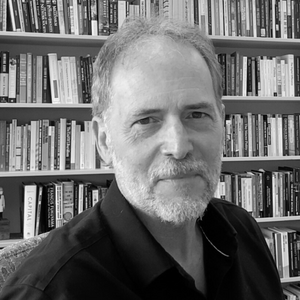
Bruce Bimber is Distinguished Professor of Political Science at UC Santa Barbara, where he studies how democracy is affected by computing and media environments. He has written extensively about how the Internet facilitates the formation of political groups both within the mainstream and at the extremes. In recent years, he has turned to the study of democratic erosion, focusing on the role of social media use in people's belief in conspiracy theories and in the spread of populist and illiberal attitudes. He is a Fellow of the American Association for the Advancement of Science and of the International Communication Association, and a past Fellow of the Center for Advanced Study in the Behavioral Sciences. He is currently working on the use of AI to analyze conspiracy theories and endorsements of political violence in social media.
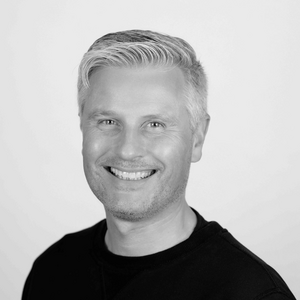
Claes H. de Vreese is Distinguished University Professor of Artificial Intelligence and Society, with a special focus on media and democracy at the University of Amsterdam. He also holds the Chair in political communication at the Amsterdam School of Communication Research ASCoR. His research interests include the role of automation, algorithms, and artificial intelligence in democratic processes. This includes microtargeting, news recommenders, social media platforms, disinformation, comparative journalism research, the effects of news, and public opinion. He has published a dozen books and more than 250 articles. He is the recipient of the Swanson Career Achievement Award, the NeFCA Career Award, and he is an elected Fellow of the Royal Dutch Academy of Sciences, the International Communication Association, and the Royal Holland Society of Sciences.

Ulrike Klinger is Professor for Digital Democracy and member of the Board of Directors of the European New School of Digital Studies at the European University Viadrina in Frankfurt/Oder. She is an associate researcher at the Weizenbaum Institute for the Networked Society in Berlin, where she led the research group “News, Campaigns, and the Rationality of Public Discourse” until 2020. She researches digital political communication, technology and power, and the transformation of digital publics.
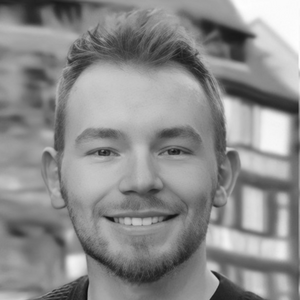
Julien Labarre is an Assistant Professor of Political Science at California State University Dominguez Hills and an affiliate of the International Panel on the Information Environment, a research initiative launched at the 2023 Nobel Prize Summit. He is also the former administrator of the Center for Information Technology & Society. His research focuses on mass media, epistemic problems, extremism, and pathologies of democracy, primarily in the US and France.
Artificial Intelligence, Epistemic Vulnerability, and Democracy
Thomas Mann House Los Angeles (1550 N San Remo Drive, Pacific Palisades, CA 90272)

Information
Following an introduction to the theoretical concept of epistemic vulnerability by Julien Labarre (2024), leading scholars from the greater LA area and Thomas Mann fellows will dive deeper into the current development of generative AI and its impacts on democracy. Epistemic vulnerability posits that the quasi-exclusive focus on deception downplays the role of other epistemic problems, such as distrust in the media, and the widespread disorientation of citizens in reaction to low quality information and media outlets that they perceive as untrustworthy. Epistemic vulnerability is not the same everywhere and for everyone. Studies show that Northern European countries seem more resilient than the US or Eastern European countries. Workshop participants will take a close look at these resilience factors and what we can learn from them in transatlantic comparison.
In two sessions, the workshop participants will discuss how AI can mitigate and deepen the effects of epistemic vulnerability, how the idea of ethical or responsible AI relates to this, and how scholars can study these developments empirically – in published texts, images and videos. This connects to problems of empirical research, such as data access and attacks on scholars in the field of disinformation studies.
Participants

Bruce Bimber is Distinguished Professor of Political Science at UC Santa Barbara, where he studies how democracy is affected by computing and media environments. He has written extensively about how the Internet facilitates the formation of political groups both within the mainstream and at the extremes. In recent years, he has turned to the study of democratic erosion, focusing on the role of social media use in people's belief in conspiracy theories and in the spread of populist and illiberal attitudes. He is a Fellow of the American Association for the Advancement of Science and of the International Communication Association, and a past Fellow of the Center for Advanced Study in the Behavioral Sciences. He is currently working on the use of AI to analyze conspiracy theories and endorsements of political violence in social media.

Claes H. de Vreese is Distinguished University Professor of Artificial Intelligence and Society, with a special focus on media and democracy at the University of Amsterdam. He also holds the Chair in political communication at the Amsterdam School of Communication Research ASCoR. His research interests include the role of automation, algorithms, and artificial intelligence in democratic processes. This includes microtargeting, news recommenders, social media platforms, disinformation, comparative journalism research, the effects of news, and public opinion. He has published a dozen books and more than 250 articles. He is the recipient of the Swanson Career Achievement Award, the NeFCA Career Award, and he is an elected Fellow of the Royal Dutch Academy of Sciences, the International Communication Association, and the Royal Holland Society of Sciences.

Ulrike Klinger is Professor for Digital Democracy and member of the Board of Directors of the European New School of Digital Studies at the European University Viadrina in Frankfurt/Oder. She is an associate researcher at the Weizenbaum Institute for the Networked Society in Berlin, where she led the research group “News, Campaigns, and the Rationality of Public Discourse” until 2020. She researches digital political communication, technology and power, and the transformation of digital publics.

Julien Labarre is an Assistant Professor of Political Science at California State University Dominguez Hills and an affiliate of the International Panel on the Information Environment, a research initiative launched at the 2023 Nobel Prize Summit. He is also the former administrator of the Center for Information Technology & Society. His research focuses on mass media, epistemic problems, extremism, and pathologies of democracy, primarily in the US and France.
The Virtue and Limits of Political Compromise in Liberal Democracies
Thomas Mann House Los Angeles (1550 N San Remo Drive, Pacific Palisades, CA 90272)

Information
The workshop brings together political scientists and political activists to discuss the ambivalence of political compromise in times of increasing polarization. The focus lies on different aspects of political compromise for liberal democracies:
(1) What are the preconditions for political compromise?
(2) What can be gained from compromise, but also what are the limits of compromise?
(3) And finally, how can institutions and individuals create an environment that is conducive to compromise?
Programs
Thursday, November 21
Why and when should we engage in compromise?
The first session clarifies what a political compromise is, what the main features of a compromise look like, and why the ability to compromise might (or might not) lie at the heart of liberal democracies. In heterogeneous and pluralistic societies, compromise is not only a necessary feature of political life, but it can be argued that the acceptance of political rivals as having legitimate interests leads to a self-reinforcing dynamic that underpins democratic processes.
Friday, November 22
When should we not engage in compromise?
The second session looks at the limits of compromise, exploring the proverbial “rotten” compromise to ask when we should shy away from forging compromises. This includes reflections on the question of freedom of speech, and to what extent populism impedes our ability to find compromise.
How do the United States and Germany deal with compromise and polarization?
The third session explores the differing way in which political compromise is built into the different political systems of the United States and Germany, comparing two different ways these political systems react and maybe even produce societal polarization.
How to create a conducive environment for political compromise?
The last session discusses what conducive environments could look like that foster political compromise. What makes political compromise more likely? What hinders it?
Participants
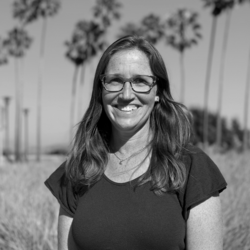
Sarah E. Anderson is a Professor and Acting Dean at the Bren School of Environmental Science & Management at the University of California, Santa Barbara. She studies how the public and politics influences policy. In her 2020 book Rejecting Compromise: Legislators’ Fear of Primary Voters, she focuses on how the public drives inequity and inefficiency in agencies’ wildfire prevention and why legislators reject compromise. In her research, teaching, and service, she works with students, staff, faculty, communities, and leaders to overcome social and political barriers to solving environmental problems and to work toward equity in the environmental field.

Pola Lehmann is a research fellow at the WZB Berlin Social Science Center and co-director of the Manifesto Project. She studied administrative sciences at the Universities of Potsdam and Copenhagen. Her research focuses on democracy and political representation, political parties and elections, and machine learning. In her dissertation, which won the Leibniz Dissertation Award in 2021, she investigated political representation and compromise in the German Bundestag.

Alexandra Lieben is the Deputy Director of the Ronald W. Burkle Center for International Relations and an affiliated faculty member of the Promise Institute for Human Rights at the UCLA School of Law. A certified mediator, she teaches constructive communication, alternative dispute resolution, public dialogue, cultural competency, international conflict resolution, and community and economic development to undergraduate and graduate students at UCLA.

Johannes Gerschewski is a research fellow at the WZB Berlin Social Science Center and coordinates the work of the Theory Network at the Cluster of Excellence “Contestations of the Liberal Script (SCRIPTS).” He has published in academic journals including American Political Science Review, Perspectives on Politics, and Comparative Political Studies. His book on The Two Logics of Autocratic Rule was published in April 2023 by Cambridge University Press.
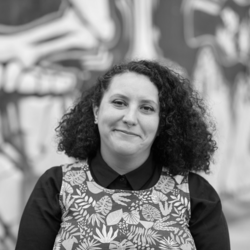
Natalie M. Godinez is an educator and artist raised in Tijuana, México. Godinez has collaborated with AMBOS since 2017, performing artist interventions, leading education projects, and coordinating humanitarian aid efforts. Currently, she is the Community Engagement & Youth Programs Manager at Self Help Graphics and Art, working on advocacy, youth programming, and cultural organizing. In her personal art practice, she explores memories, identity, and relationships to places and language through textiles, printmaking, and collaboration. She holds a Bachelor's degree in Applied Design from San Diego State University.

Allison Lee serves as PEN America’s Los Angeles Director. She was the Chief Development Officer for TIME’S UP, a non-profit organization dedicated to promoting gender equity and ending sexual violence in the workplace. She has previously served as Vice President of External Affairs at Bet Tzedek Legal Services, where she worked, among other things, to launch their Rapid Response Family Immigration Project and Transgender Advocacy Program. Prior to that, Allison served for eight years as the founding Executive Director of American Jewish World Service – Southern California. Allison received her B.A. in Political Science and American Studies from Tufts University.
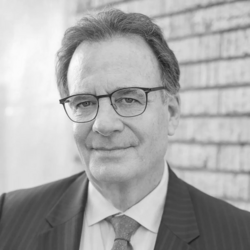
Jonathan Parfrey is the founder and Executive Director of Climate Resolve, and has served as a commissioner at the Los Angeles Department of Water and Power (2008-2013). Parfrey is a member of the LA28 Olympics and Paralympic Games Sustainability Working Group. He is a founder and board member of CicLAvia, the popular street event, as well as a founder of the statewide Alliance of Regional Collaboratives for Climate Adaptation. He served as director of the GREEN LA Coalition (2007-2011). Prior to that, he founded and directed the Orange County Catholic Worker (1987-1993). He was appointed to Governor Schwarzenegger’s Environmental Policy Team in 2003.
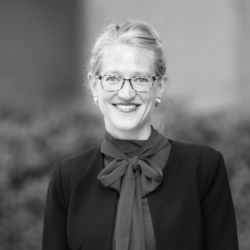
Danielle M. Thomsen is Associate Professor of Political Science at the University of California, Irvine, with a focus on American politics, Congress, elections, campaign finance, and gender and politics. Thomsen’s first book Opting Out of Congress: Partisan Polarization and the Decline of Moderate Candidates was published in 2017, and her second publication The Money Signal: How Fundraising Matters in American Politics is forthcoming with the University of Chicago Press in Spring 2025. Her research has been published in the American Political Science Review, Journal of Politics, Legislative Studies Quarterly, Perspectives on Politics, among others.
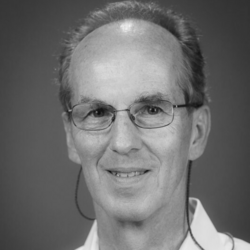
Kurt Weyland is Professor of Government and Mike Hogg Professor in Liberal Arts at the University of Texas at Austin. Based on research conducted in Argentina, Bolivia, Brazil, Chile, Costa Rica, Peru, and Venezuela, he has published many journal articles and book chapters, as well as seven books, most recently Assault on Democracy: Communism, Fascism, and Authoritarianism during the Interwar Years (Cambridge, 2021); and Democracy’s Resilience to Populism’s Threat (Cambridge, 2024).

Thomas Aujero Small is the CEO of Culver City Forward, Chair of LA METRO Sustainability Council and member of the Mobility Committee of the Urban Land Institute Los Angeles. He served as Mayor of Culver City from 2018-2019, during his four-year term as a Culver City Council Member (2016-2020). He is also on the Transportation Policy Committee of the Southern California Association of Governments (SCAG). On the Culver City Council, he served on several Subcommittees, including: the General Plan Update; Economic Development; Mobility, Traffic and Parking; Financial Planning and Budget; and the Ballona Creek Revitalization Task Force.
Populists and the Forgotten Value of Compromise
Thomas Mann House Los Angeles (1550 N San Remo Drive, Pacific Palisades, CA 90272)

Information
Join the Thomas Mann House for this roundtable discussion convened by 2024 Thomas Mann Fellows Pola Lehmann and Johannes Gerschewski, with Allison Lee, director of PEN America Los Angeles, Thomas Aujero Small, CEO of Culver City Forward, and Kurt Weyland, Professor of Government and Mike Hogg Professor in Liberal Arts at the University of Texas. The panelists will discuss the value of political compromise in democracy from a transatlantic, post-election perspective.
The US elections have left a polarized society. Regardless of personal views on the outcome, the electoral campaigns have severely deepened societal divisions. Over the past years, public debates about the Covid-19 pandemic, immigration or social inequality have become increasingly polarized. Political positions are irreconcilably opposed, becoming more and more heated and unforgiving. Discussions are fueled by the depiction of different sides as representing “right” or “wrong” answers. Have we lost sight of the value of compromise?
Certainly, one of the greatest strengths of democracy is the ability to reach political compromises. In heterogeneous societies, compromise is necessary. However, the ability to allow agreement and make concessions on the most pressing social issues has diminished in recent years. Each side denies the other legitimate opposition and different views on the issues at stake. Populists play on the idea that there is only one will of the people and that they are the only ones that can represent this will. Instead, compromises are seen as signs of weakness. This represents a major Achilles' heel for heterogenous and pluralistic societies, both in the United States and Germany.
Of course, finding compromise is not a panacea for all types of problems. While it represents a technique for peaceful conflict resolution that pragmatically advances the status quo, there are also limits that should be taken into account, particularly when authoritarian populists put democracy under pressure. When do we reach limits of compromise and when should we rather remain firm on liberal and democratic principles? When does compromise even backfire, legitimizing a refutable political position?
This roundtable discussion brings together political scientists and political activists to discuss the ambivalence of political compromise in times of increasing polarization. It focuses on current challenges imposed on democracies by populists and discusses how populists prevent compromise, while also debating when and where liberal democracies need to draw a line and limit compromise.
Participants

Pola Lehmann is a research fellow at the WZB Berlin Social Science Center and co-director of the Manifesto Project. She studied administrative sciences at the Universities of Potsdam and Copenhagen. Her research focuses on democracy and political representation, political parties and elections, and machine learning. In her dissertation, which won the Leibniz Dissertation Award in 2021, she investigated political representation and compromise in the German Bundestag.

Johannes Gerschewski is a research fellow at the WZB Berlin Social Science Center and coordinates the work of the Theory Network at the Cluster of Excellence “Contestations of the Liberal Script (SCRIPTS).” He has published in academic journals including American Political Science Review, Perspectives on Politics, and Comparative Political Studies. His book on The Two Logics of Autocratic Rule was published in April 2023 by Cambridge University Press.

Allison Lee serves as PEN America’s Los Angeles Director. She was the Chief Development Officer for TIME’S UP, a non-profit organization dedicated to promoting gender equity and ending sexual violence in the workplace. She has previously served as Vice President of External Affairs at Bet Tzedek Legal Services, where she worked, among other things, to launch their Rapid Response Family Immigration Project and Transgender Advocacy Program. Prior to that, Allison served for eight years as the founding Executive Director of American Jewish World Service – Southern California. Allison received her B.A. in Political Science and American Studies from Tufts University.

Kurt Weyland is Professor of Government and Mike Hogg Professor in Liberal Arts at the University of Texas at Austin. Based on research conducted in Argentina, Bolivia, Brazil, Chile, Costa Rica, Peru, and Venezuela, he has published many journal articles and book chapters, as well as seven books, most recently Assault on Democracy: Communism, Fascism, and Authoritarianism during the Interwar Years (Cambridge, 2021); and Democracy’s Resilience to Populism’s Threat (Cambridge, 2024).

Thomas Aujero Small is the CEO of Culver City Forward, Chair of LA METRO Sustainability Council and member of the Mobility Committee of the Urban Land Institute Los Angeles. He served as Mayor of Culver City from 2018-2019, during his four-year term as a Culver City Council Member (2016-2020). He is also on the Transportation Policy Committee of the Southern California Association of Governments (SCAG). On the Culver City Council, he served on several Subcommittees, including: the General Plan Update; Economic Development; Mobility, Traffic and Parking; Financial Planning and Budget; and the Ballona Creek Revitalization Task Force.
Realignment & Resilience
Thomas Mann House (1550 N San Remo Drive, CA 90272)
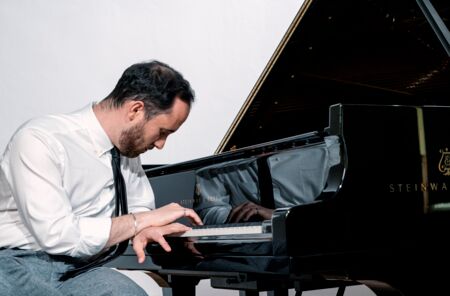
Attendance by invitation only
Information
"In times of crisis, we must all decide again and again whom we love."
- Frank O'Hara, Meditations in an Emergency
And so what now? In these times of crisis, who do we turn to, and what do we turn towards? Who do we love, who are still our friends?
In a wide-ranging conversation, punctuated by surprise musical interludes, Honorary Thomas Mann Fellow Igor Levit, prompted by Paul Holdengraber's questions and quotations, will discuss in what ways the world in disarray around us enters into the concert hall and on to the black and white keys of the piano.
Does a life devoted to art, the life of a world-famous pianist, shield or mitigate the crisis felt all around us? Does playing the piano offer solace, a refuge, a recalibration of the chaos outside? In these uncertain times, Levit brings his doubts, anxieties, broken ideals and desire for joy into play at the Thomas Mann House.
Participants

Paul Holdengräber is an interviewer, curator of public curiosity, and was the Founding Executive Director of Onassis Los Angeles (OLA). Prior he was Founder and Director of The New York Public Library’s LIVE from the NYPLcultural series where he interviewed and hosted over 600 events, including interviews with Patti Smith, Wes Anderson, Mike Tyson, Werner Herzog and many more. Before his tenure at the library, he was the Founder and Director of The Institute for Art & Cultures at the LACMA. He holds a Ph.D. in comparative literature from Princeton University. In 2003, the French Government named him Chevalier des Arts et des Lettres, and then promoted him in 2012 to the rank of Commandeur des Arts et des Lettres. In 2010, The President of Austria awarded him the Austrian Cross of Honor for Science and Art.
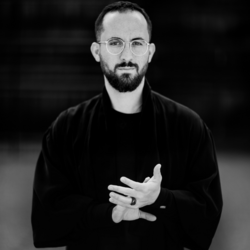
Igor Levit, born in Nizhny Novgorod, moved to Germany with his family at the age of eight. He completed his piano studies at the Hanover University of Music, Drama and Media. In the spring of 2019, he was appointed professor of piano at his alma mater. Since the spring of 2022, Igor Levit has been co-artistic director of the Heidelberger Frühling international music festival. The New York Times describes Igor Levit as one of the "most important artists of his generation," while the Süddeutsche Zeitung calls him a "stroke of luck" for today's concert scene. For his “house concerts” as a sign of hope and public spirit, as well as for his fight against anti-Semitism, Igor Levit was awarded the Order of Merit of the Federal Republic of Germany in the fall of 2020. Together with Georg Diez, Igor Levit is an Honorary Fellow of the Thomas Mann House.
How to Survive the 21st Century: An Explorative Discussion
Goethe-Institut Los Angeles (1901 W 7th St Suite A/B, Los Angeles, CA 90057)
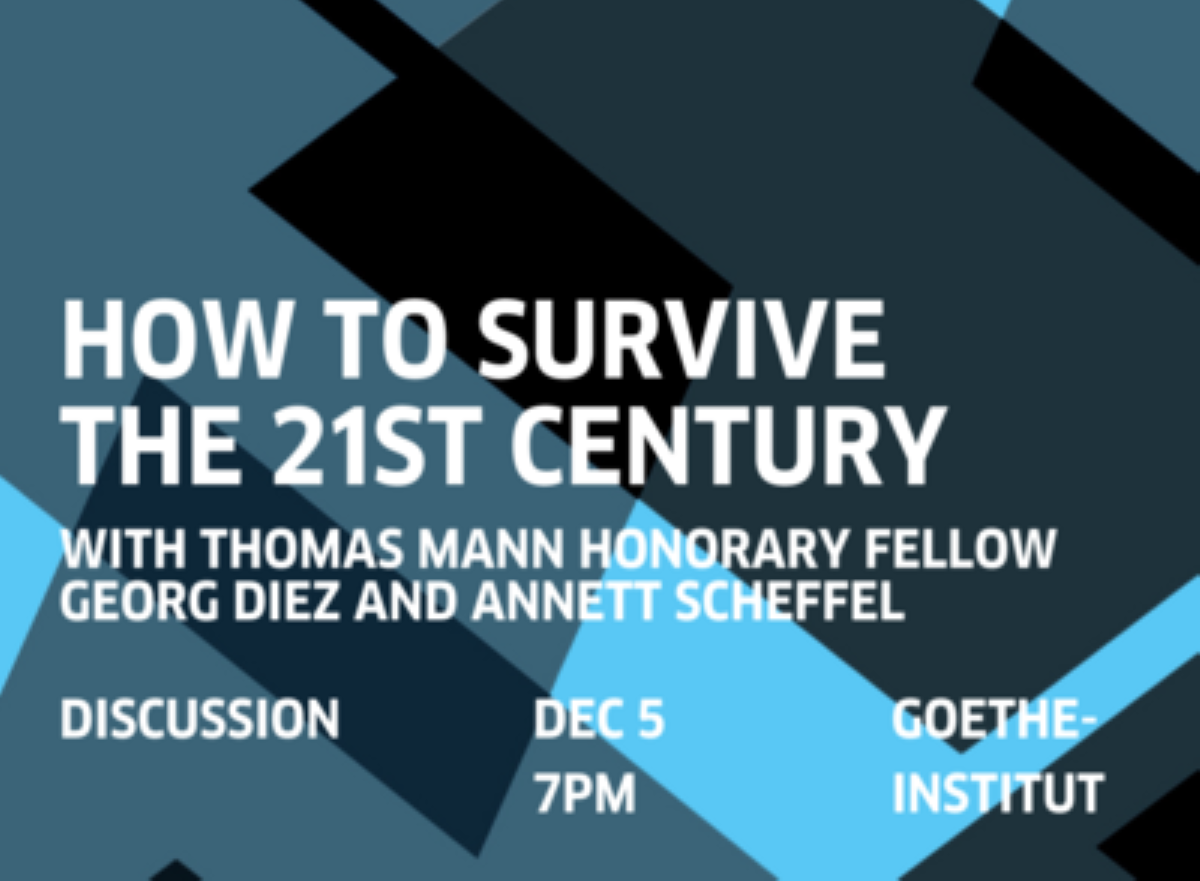
Information
Moderated by Annett Scheffel, this explorative discussion brings together a diverse group of stakeholders who lead transformative processes and bring their own experiences to the table. Together with you, the audience, we intend to explore a new vocabulary for democracy in the 21st century and find common understandings for the basics of our shared existence on planet Earth.
Join us for an open discussion, share your thoughts and let’s see where it takes us!
This event is part of the project Double Exposure, a series of talks and discussions that focuses on the question of what the idea of solidarity means in different contexts. What matters more: Community or society? Individual freedom or solidarity? These questions are of great urgency in our current times. Polarization and division seem to be the tried and tested means of political discussion. Global migration is intensifying the discussion about who has what duties toward whom, who should show solidarity toward whom, and who can be denied solidarity.
Participants
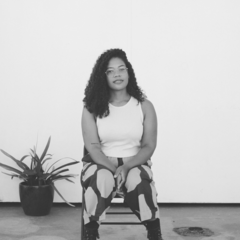
Ashley Blakeney is a Los-Angeles based arts healing facilitator and cultural leader with more than a decade of experience working in arts organizations and education. As the Executive Director at the Crenshaw Dairy Mart since 2021, Blakeney works to help communities of color imagine new systems for a more equitable world. Working at the intersection of abolition and healing, Blakeney’s professional and personal focus centers on cultivating safe spaces for creative expression.
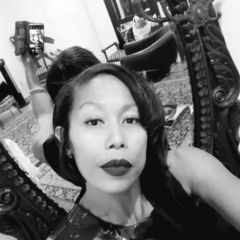
Pauletta Pierce is the founder of the all WOC bike collective “Date with the Night,” and the creator of “Vibing with Cultural Leafs” - a 10-week curriculum to cultivate critical thinkers within the youth of Los Angeles through educational workshops and the arts. Her current cultural activities also include working as Director of Creative Development with East Wind Foundation, a youth organization in L.A. Chinatown.
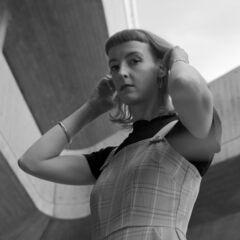
Annett Scheffel is a culture writer, editor, speaker, and presenter based in Los Angeles and Berlin. She thinks, writes, and talks about music, film, feminism, and contemporary culture for the Süddeutsche Zeitung, Spiegel Online, Zeit Online, Musikexpress, Dummy Magazin, and Deutschlandfunk — preferably at the intersection between identity, society, and politics.

Georg Diez is an author and journalist and currently a fellow at the Max Planck Institute in Göttingen and at ProjectTogether in Berlin, where he researches on democratic innovation. He previously worked as editor-in-chief of The New Institute, as a columnist for Spiegel Online, and for the feature sections of Die Zeit, Frankfurter Allgemeine Sonntagszeitung, and Süddeutsche Zeitung. For 2024, he is preparing an exhibition at Hamburg's Deichtorhallen entitled Survival in the 21st Century. Georg Diez lives in Berlin and Stockholm. Together with Igor Levit, Georg Diez is an Honorary Fellow of the Thomas Mann House.
Partners
The talk is hosted by the Goethe-Institut Los Angeles in Collaboration with the American Council on Germany

Are we still living in the nineties?!
Thomas Mann House (1550 N San Remo Drive, CA 90272)
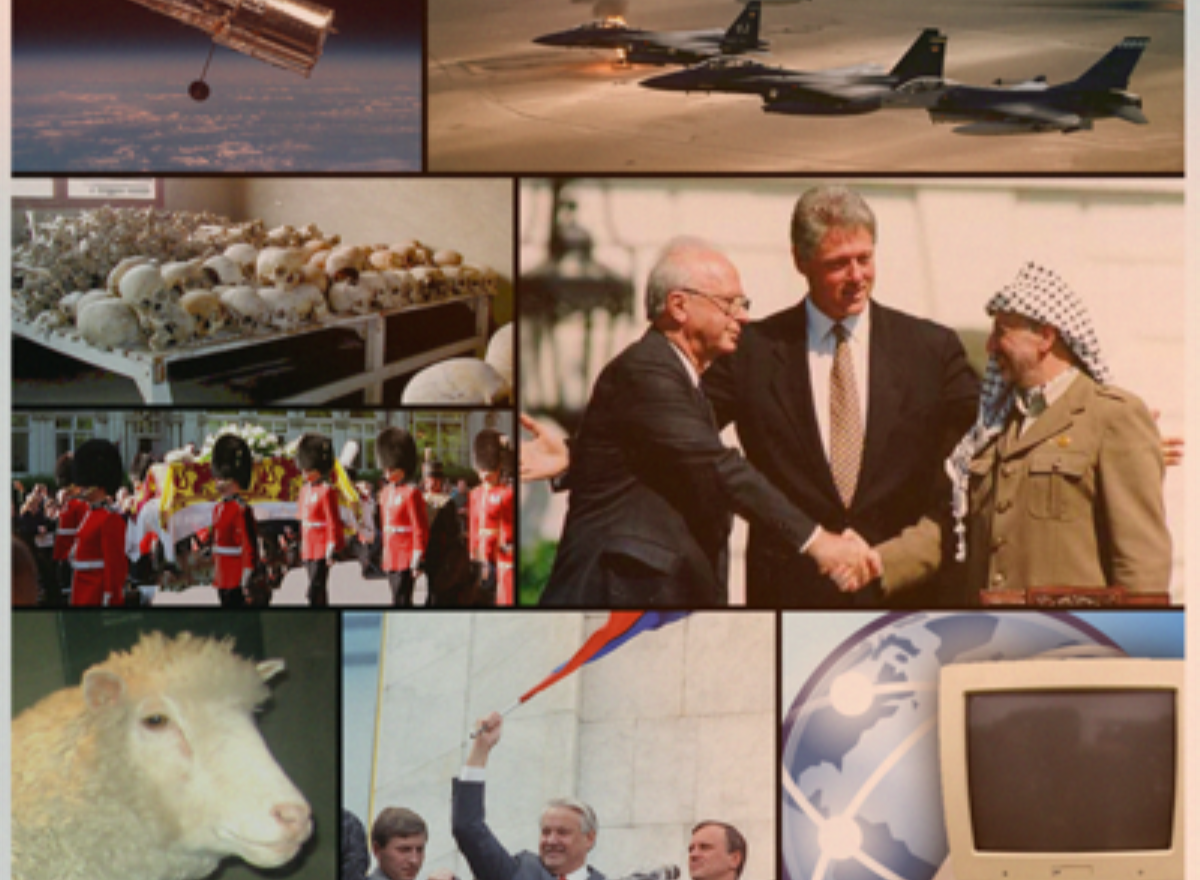
Information
The 1990s ended, some say, in 2016 with the first election of Donald Trump – which means that ever since, we have been living in an interregnum. In order to grasp the present rupture, we need to understand the forces that shaped the last political order, or, as the historian Gary Gerstle calls it, the “neoliberal order:” the 1990s with their combination of free trade, deregulation, a technological revolution, and the promise of “lifting all boats.”
The election results in 2024 can be read as an even more forceful pushback against this order. But what generated this pushback? What unleashed this illiberal energy and created the inequality at the core of so many political developments today? How exactly does this connect to the 1990s, this decade still perceived as a honeymoon with history, until something went terribly wrong? The story of the 1990s, as it turns out, rests on a lot of false assumptions, willful amnesia, and a strategic naiveté that is now collapsing in plain sight.
In a panel discussion hosted by Honorary Fellow Georg Diez, the guests will discuss the role and failed promises of the 1990s in shaping our political present, and how the central idea of the 90s – that markets come first and democracy comes second – would eventually lead to a democratic decline and a loss of a sense of agency among a populace which is ready to take it back. Or are they?
Participants

Georg Diez is an author and journalist and currently a fellow at the Max Planck Institute in Göttingen and at ProjectTogether in Berlin, where he researches on democratic innovation. He previously worked as editor-in-chief of The New Institute, as a columnist for Spiegel Online, and for the feature sections of Die Zeit, Frankfurter Allgemeine Sonntagszeitung, and Süddeutsche Zeitung. For 2024, he is preparing an exhibition at Hamburg's Deichtorhallen entitled Survival in the 21st Century. Georg Diez lives in Berlin and Stockholm.

Lily Geismer is Professor of History at Claremont McKenna College. Geismer’s research and teaching focuses on 20th century political and urban history in the United States, especially liberalism and the Democratic Party. She is the author of Left Behind: The Democrats’ Failed Attempt to Solve Inequality (PublicAffairs, 2022), and Don’t Blame Us: Suburban Liberals and the Transformation of the Democratic Party (Princeton University Press, 2015). She is also co-editor of Shaped by the State: Toward a New Political History of the Twentieth Century (University of Chicago Press, 2019) and her work has appeared in the Journal of American History, The New York Times, among others.
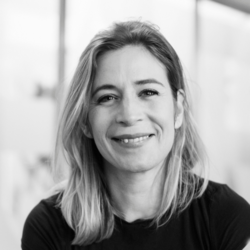
Karin Pettersson is the Culture Editor of Aftonbladet, Scandinavia's biggest daily newspaper, and one of Sweden's most well-known journalists. She has a long background in journalism and politics, having founded leading news magazine Fokus, as well as worked at the Ministry of Finance as a political advisor. She is an economist by training, with a MSc from Stockholm School of Economics, and a 2017 Nieman Fellow from Harvard University.
Student Council on "Democracy and Vulnerability"
Online

Information
How should a democracy deal with its vulnerabilities? How do democracies need to evolve to deal successfully with increasing global levels of ecological crisis, geopolitical tensions, economic disparities, and culture wars? How much vulnerability can a democracy endure?
The Student Council consists of a team of highly engaged, talented, and diverse undergraduate and graduate students who invite prominent guest speakers to discuss topics relating to society, politics, culture, and art. In conversation with academics, journalists, politicians, and artists, the students will explore the various threats to democratic institutions and principles worldwide, as well as strategies to potentially overcome these threats.
Participant
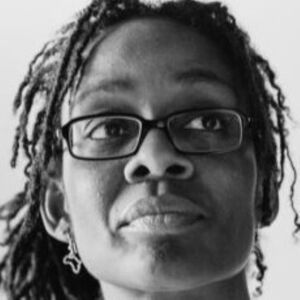
Sharon Dodua Otoo is a novelist and political activist. Otoo won the Ingeborg Bachmann Prize in 2016 with the text Herr Gröttrup setzt sich hin. Her first novel Adas Raum was published by S. Fischer Verlag in 2021 and has been translated into several languages, including two English language versions Ada's Realm (MacLehose Press, 2023) and Ada's Room (Riverhead Books, 2023). In collaboration with the Ruhrfestspiele, one of the oldest, largest, and most renowned theatre festivals in Europe, she curates the Black German-language literature festival "Resonanzen".
Previous Episodes
Find previous interviews on YouTube, as podcasts on dublab radio or written recaps by our students on the Thomas Mann House blog.
All members

Sara Abrahamsson is a fourth-year student at UCLA studying Art History and French. As a culmination of her artistic and academic interest in political graphics, Sara is currently writing her senior thesis paper on the internationalist poster art of post-revolutionary Cuba. Upon graduating, she plans to continue working in museums before pursuing graduate studies in Art History or Art Conservation.
Amy Cabrales is a First-Generation fourth-year undergraduate student at UCLA, studying Sociology and the Russian Language. She is a Mexican-American, Los Angeles native born in Lynwood, California. Her career interests include cross-cultural education via museum work or language instruction and immigrant resettlement, while her academic interests include immigrant integration and self-identity across immigrant generations. She is anticipating returning to Almaty, Kazakhstan for the 2024-25 academic year to inform these interests and advance her Russian proficiency.
Elsa Coony is a fourth-year student at the University of California, Los Angeles double majoring in Global Studies and German. She has previously worked at the United States Holocaust Memorial Museum as both a docent and translator and is excited to join this year's council. In the future, she hopes to pursue a career in international development.
Biruke Dix is currently a 2nd year student at UCLA studying Applied Mathematics. He joined the Wende Student Council in 2024 and is deeply invested in the ever-changing properties of art as well as social habits. He hopes that he can create language and conversation that promotes the spread of cultural shifts and social justice.
Matthew Jones is a third-year PhD student in Claremont Graduate University’s Cultural Studies and Museum Studies program. His research currently explores how sites connected to authoritarian regimes function as pilgrimage destinations and what strategies states and institutions employ to reduce extremist attachment at these sites. He is thrilled to continue his training with the Wende Museum through this collaboration with the Thomas Mann House.
Emma Larson is a master's student at Columbia University's Harriman Institute of Russian, Eurasian, and Eastern European Studies. There, she focuses on the gender, social, and political history of Central Asia. Before starting at Columbia, Emma taught English in Kazakhstan with the Fulbright Program. She graduated from Williams College with degrees in History and Russian in 2021.
Zora Nelson is a current undergraduate student at New York University, where she is studying Harp Performance and Media, Culture, and Communication. As an east coaster born and raised in Philadelphia, Pennsylvania, she discovered the Wende Museum in the summer of 2022 and is honored to be a part of the council. With a passion for writing, Zora sees a future in storytelling to promote social justice.
Lexi Tooley is a current sophomore at the University of Pennsylvania majoring in Political Science and Art History, minoring in Chinese Language and Culture. She is originally from Los Angeles, California, and attended the Archer School for Girls. Lexi has been working with the Wende Museum for the past 2 years. She looks forward to continuing the search for truth and examining the vulnerability of democracy through this program!




